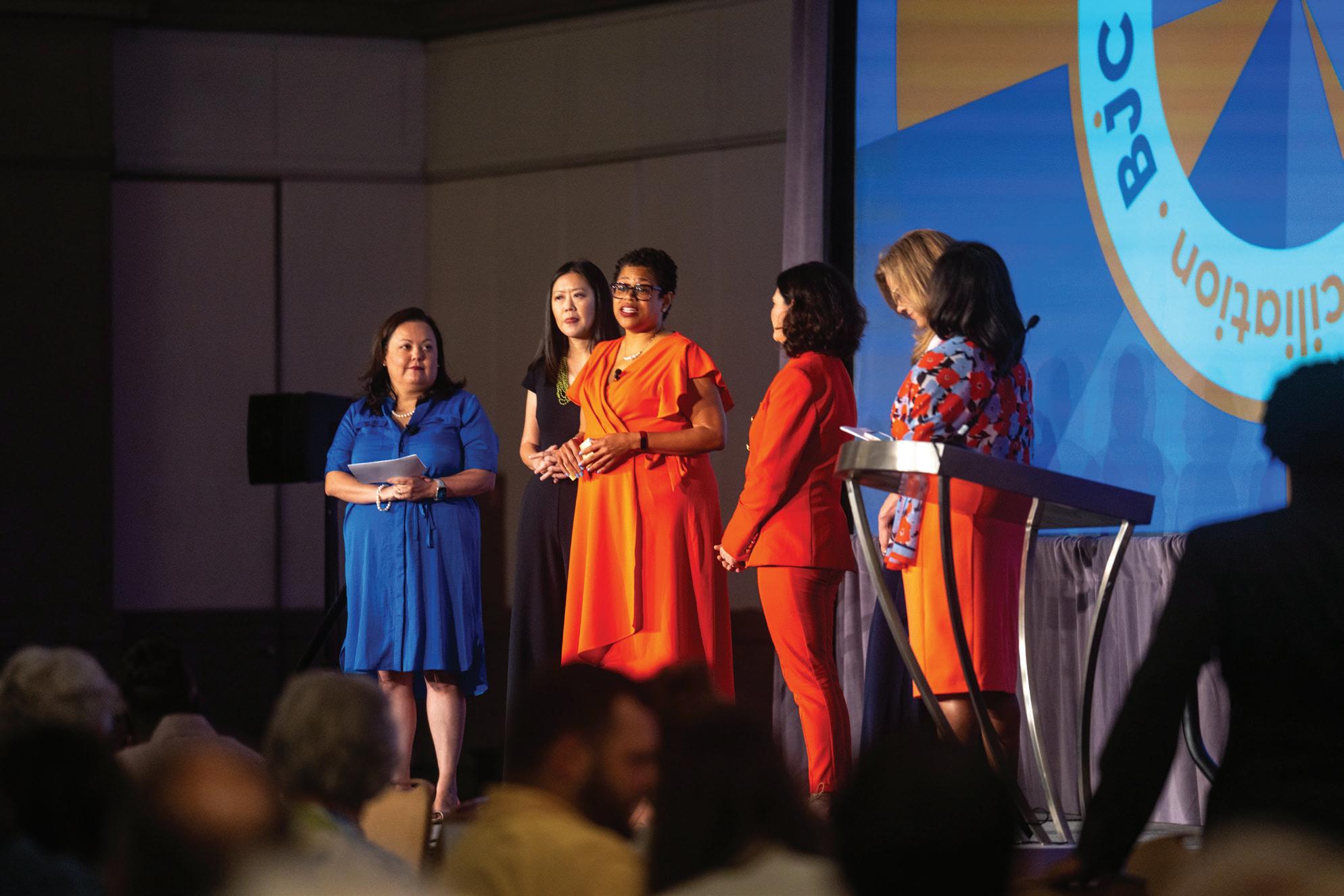AMANDA TYLER discusses organizing in Texas against Christian nationalism
HOLLY HOLLMAN analyzes the decision on workplace religious accommodations


AMANDA TYLER discusses organizing in Texas against Christian nationalism
HOLLY HOLLMAN analyzes the decision on workplace religious accommodations

The BJC CENTER FOR FAITH, JUSTICE AND RECONCILIATION is off to a strong start, launching during our BJC Luncheon. Read about the event on pages 6-9, and see how you can be part of its first program — the RELIGIOUS FREEDOM MOBILE INSTITUTE — on pages 12-13.
The Supreme Court ended its term with decisions that made headlines. Holly Hollman shares the good news in the GROFF v. DEJOY ruling on pages 4-5, and we share troubling decisions on pages 5 and 11, including 303 CREATIVE v. ELENIS and the decision striking down RACE-CONSCIOUS ADMISSIONS.
Amanda Tyler shares about a new phase of our work with her MOVE TO TEXAS on page 3, and chaplains are leading the charge in Texas to fight a troubling option to add “chaplains” to public schools. Check out the letter and ways you can MAKE AN IMPACT to stop this misguided idea on pages 20-21.
Our annual Walter B. and Kay W. Shurden Lecture went to Boston this year, exploring THE MYTH OF AMERICAN ‘CHOSENNESS’ with Dr. Catherine Brekus and a thoughtful panel. Read more on pages 22-25.
Our newest class of BJC FELLOWS spent time in Colonial Williamsburg, exploring various underpinnings of religious freedom and discerning whose stories have been excluded from the common narratives in our country. Meet these future leaders on pages 14-17.
This magazine also shares where BJC has been IN THE WORLD on pages 18-19, a perspective on how the RESPECT FOR MARRIAGE ACT de-escalated the culture wars on page 26, the winners of the 2023 RELIGIOUS LIBERTY ESSAY SCHOLARSHIP CONTEST on page 31, and excerpts from the most popular episodes of our RESPECTING RELIGION podcast in its record-breaking season on pages 28-29.

Throughout the summer, BJC celebrated the launch of the BJC Center for Faith, Justice and Reconciliation. It marked a new home for the Center, an organizational leader in advancing justice and building cultures for reconciliation. Leading this arm of BJC’s work is Dr. Sabrina E. Dent, a scholar and advocate working at the intersection of faith freedom for all and racial justice.
Our goal in June, July and August was to raise $50,000 in special gifts for the work of the BJC Center for Faith, Justice and Reconciliation. In June (our last full month before going to print), donors like you contributed more than $15,000 to this work. Thank you to all who gave!
If you haven’t already contributed to
this important cause, could you help us produce groundbreaking scholarship and convene important conversations through the work of the Center?
Please consider giving a special gift to BJC to help build a strong foundation
for the Center’s work. Your donation will support programs such as the Religious Freedom Mobile Institute (see pages 1213) and the Religious Freedom Immersion Experience. The Center offers educational programs for students, congregations, community leaders, faith leaders and public officials that expand and deepen understandings of religious freedom with a broader justice lens.
To support this work with a designated gift, look for the special link on BJConline.org/Center or send a check made out to BJC with “Center” in the memo line.
You can mail a check to BJC, 200 Maryland Ave. N.E., Suite 301, Washington, D.C. 20002.
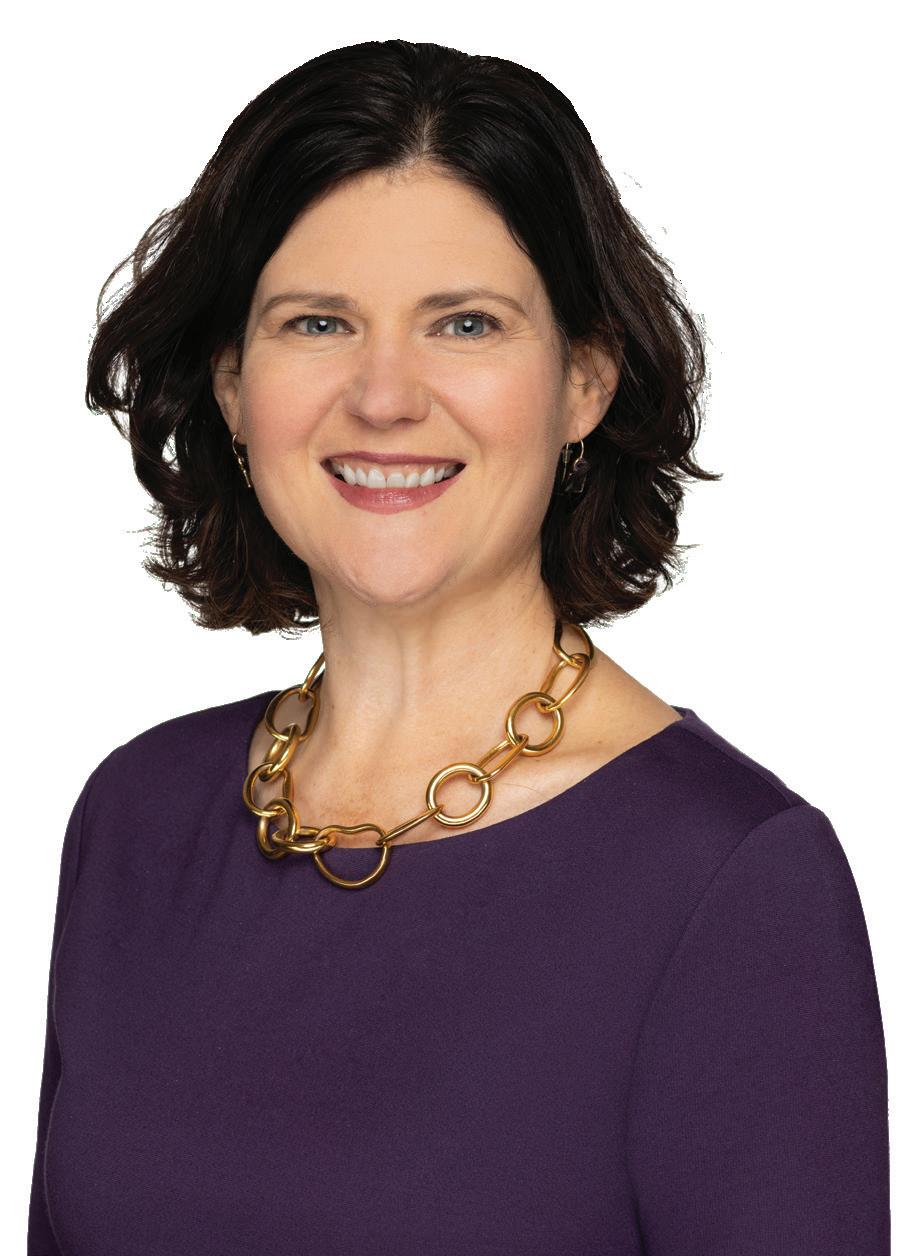
My column in this edition takes a more personal tone as I share with readers of this magazine a big move I made this summer. After more than a decade in Washington, D.C. — including the last six and a half years leading BJC — my husband, son and I have relocated to Dallas, Texas. It is a return home for us, since both my husband and I are Texas natives.
This move came first from a personal place. I shared with the BJC Executive Committee earlier this year that I was sensing a calling for my family to be closer to our extended family in Texas. I also told them that I felt a renewed sense of calling to my vocation of leading BJC, particularly during this critical time of welcoming the Center for Faith, Justice and Reconciliation and the expansion of our leadership of the Christians Against Christian Nationalism campaign. I am grateful that the leaders of the BJC Board celebrated and affirmed both callings.
From an operational standpoint, our experience has shown that our team can work remotely and effectively. One innovation from the difficult years of the COVID-19 pandemic was the creation of new work structures that allow us to work even when we can’t be in the same physical space. In fact, our team was fully remote for more than two years. Since staff returned to our BJC headquarters in March 2022, we have continued with hybrid work schedules that allow the team to spend some of their time working from home or other locations across the country. Most of our team will continue to work from our headquarters on Capitol Hill in D.C., and I will return as needed to work in Washington with them. The Rev. Dr. Dan Hamil, director of strategic partnerships, and the Rev. Janna Louie, chief of staff, both work and reside in California. We have other team members contributing from Tennessee and North Carolina, and we will conduct nationwide recruiting efforts to fill future staff openings.
Having a national team helps us fulfill our mission. BJC is a truly national organization, with our advocacy and education in support of faith freedom for all happening not only in the halls of power in Washington, but from coast to coast. Our Christians Against Chris-
tian Nationalism campaign counts supporters in every congressional district in the country. We’re increasingly working with local partners across the country as threats to religious freedom arise.
As I have shifted my home and work location, Texas has become a major flashpoint in the resurgence of Christian nationalism today. While the two events are not causally related (Christian nationalism hasn’t surged because I moved!), my location provides new opportunities for BJC to be more directly involved in education and advocacy in a state that is pushing legislation infused with Christian nationalism. Last year, the Texas Legislature forced public schools to display “In God We Trust” posters; this year, it is deciding whether to require the display of the Ten Commandments in every public school classroom. One focus of BJC’s advocacy work is currently lobbying the state’s many school districts to reject the option the Texas Legislature has granted them to start school chaplain programs (see how you can help on pages 20-21). I’ll get a firsthand look at how Texas’ public schools have become a religious freedom battleground, as I am now the parent of a third-grader in one.
My new home also allows me to be more directly involved in BJC’s first local organizing project for Christians Against Christian Nationalism in North Texas. I’m excited to work with our partners — including Faith Commons, Texas Impact, Convención Bautista Hispana de Texas (the Hispanic Baptist Convention of Texas), and many local churches — directly in on-the-ground community organizing.
In addition to the specific attacks on church-state separation in my home state, spending much more time outside the Beltway equips me to better understand religious freedom issues that play out in the lives of all Americans. The conversation in D.C. rarely reflects the reality of our diverse communities in the United States. More of our staff living and working across the country will strengthen our advocacy and education efforts.
With so much work to do in Washington and throughout the country, I am grateful for a team and BJC Board leadership that is working in new ways to achieve our mission.
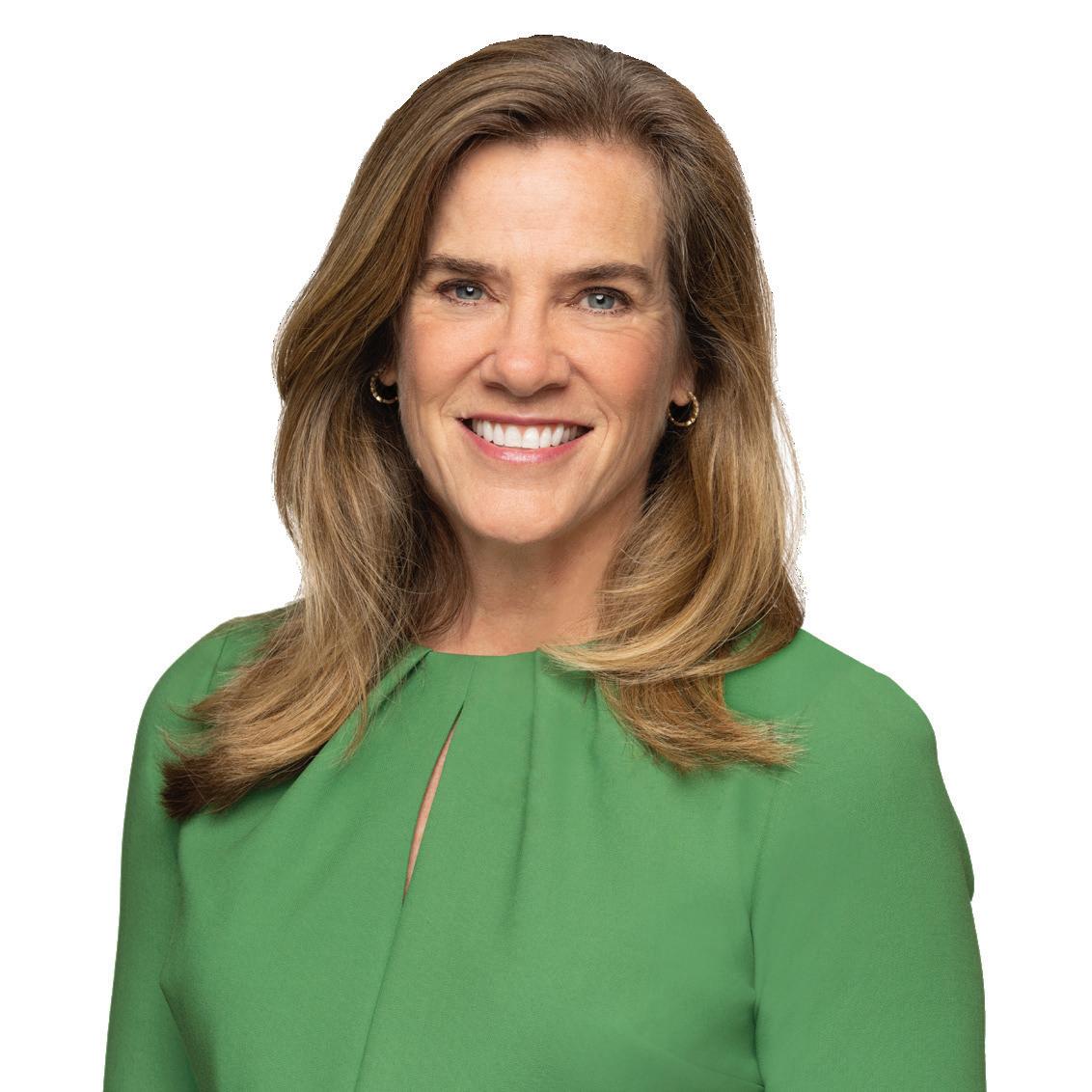
If you want to read one U.S. Supreme Court opinion from the past term that doesn’t risk raising your blood pressure, I suggest Groff v. DeJoy. Plenty of the Court’s decisions display deep divisions among the justices — divisions that both reflect and exacerbate America’s political problems. That holds true for several decisions that address religion in recent years. But not this one.
The Court’s decision on workplace religious accommodations is good news for understanding the place of religion in the law and in our diverse society.
Groff v. DeJoy is a unanimous decision, written by Justice Samuel Alito in a refreshingly matter-of-fact tone. It clarifies the obligation of employers to provide reasonable accommodations for religious needs in the workplace unless doing so would place an undue hardship on the business. The Court revisited Trans World Airlines, Inc. v. Hardison, a 1977 opinion applying a federal statute that prohibits employment discrimination: Title VII of the Civil Rights Act. In Groff, the Court explicitly disapproved part of the Hardison decision that had undercut the force of the statute’s employee protections for decades.
The decision was welcome news for Gerald Groff, the former part-time mail carrier who was unwilling to work on his Sabbath. He lost his job after the U.S. Postal Service began delivering packages for Amazon on Sundays. He sued and lost in the courts below. His case will now be reconsidered under the decision’s clarified standard for workplace religious accommodations.
BJC filed a friend-of-the-court brief on the side of Groff, joining the National Association of Evangelicals, the Ethics and Religious Liberty Commission of the Southern Baptist Convention, the U.S. Conference of Catholic Bishops, the Church of Jesus Christ of Latter-day Saints, and ADL on the brief.
The Groff decision bolsters an essential part of our country’s civil rights commitment. Title VII is intended to ensure equal opportunities for workers without regard to protected categories, such as sex (including sexual orientation and gender identity), national origin, race and religion. Its language recognizes that preventing discrimination based on religion sometimes requires
making accommodations for religious practices, such as wearing certain religious garb and taking time off for the recognition of holy days. It also takes into account that not all requests can or must be accommodated. But both courts and employers complying with court decisions often focused on the “de minimis” language in Hardison to avoid the plain legal obligation of the Title VII statute.
Hardison was particularly harmful for religious minorities, who disproportionately claim the need for workplace religious accommodations. The Groff decision corrects that problem, and it does so in a way that held the entire Court together and should improve the way we navigate religion in the workplace.
The Court did not overrule the Hardison decision in the Groff decision. Specifically, it did not overrule its central holding that Title VII’s protections for religion do not require an employer to deprive other employees of seniority rights under a collective bargaining agreement. But, after a thorough examination of the Hardison decision and the dissenting opinion of Justice Thurgood Marshall in that case, the Court rejected the idea that employers could escape the demands of the statute by showing that an accommodation simply had more than a de minimis cost on the employer. Instead, this Court reaffirmed that the statutory language of “undue hardship” means what it says. Other parts of the Hardison opinion suggest that as well. It’s the kind of burden that is “substantial in the overall context of an employer’s business.”
The Groff decision clarifies that employers must interpret “undue hardship” in the context of the particular accommodations at issue and the practical impact, which includes size and operating cost of the employer. It’s crafted to provide a fairer reading of the Title VII statute, while trying not to disrupt too much existing case law and guidance from the Equal Employment Opportunity Commission.
“ The Groff decision explains in clear terms how religion is privileged under the statute but not necessarily to the detriment of others.”
Because of the trajectory of the Court’s conservative majority on church-state issues, some religious freedom advocates worry that the Groff decision means greater opportunities for some employees to impose their religion on others in the workplace. Of course, we can’t predict all future cases or bad decisions, but we should not fail to applaud a good one. The fact that an employee may claim the need to share faith in ways that are unwanted and disruptive in the workplace can arise with or without this decision. That doesn’t mean an employee will win or that the Hardison standard should not have been reviewed.
The Groff decision explains in clear terms how religion is privileged under the statute but not necessarily to the detriment of others. As both parties in the case agreed, and the Court recognizes, defining “undue hardship” includes consideration of impacts on coworkers that affect the “conduct of the business.”
To be clear, “a coworker’s dislike of ‘religious practice and expres-
sion in the workplace’ or ‘the mere fact [of] an accommodation’ is not ‘cognizable to factor in the undue hardship inquiry.’” Bias or hostility doesn’t count. Employers must reasonably accommodate an employee’s practice of religion, not just assume that it is too difficult.
Protecting religious freedom for all has long been a strength of our nation, though it requires each generation to renew the commitment and continue working to uphold the core values in that constitutional promise. Worries abound about the current Court’s focus on the free exercise of religion while disregarding principles that protect against any establishment of religion by the government — another way our Constitution protects religious freedom. But with Groff, it’s heartening to see all nine of the Supreme Court justices come together across ideological differences to clarify the proper reading of a statute that sensibly protects religion in the workplace.
In addition to Groff v. DeJoy, the final days of the 2022-2023 U.S. Supreme Court term saw the release of several high-profile decisions. Here is a brief look at three other decisions that drew comment from BJC:
On June 30, the U.S. Supreme Court issued a 6-3 decision in 303 Creative LLC v. Elenis, ruling that the First Amendment’s Free Speech Clause prohibits Colorado from enforcing its nondiscrimination law in relation to a website designer who refuses to create wedding websites for same-sex couples.
“While the prohibition on government-compelled speech is an essential part of the First Amendment’s protections, it should not provide an end run around valid nondiscrimination laws that apply to businesses open to the public,” said BJC General Counsel Holly Hollman.
“Colorado’s statute serves an important public interest in ensuring equal access to the commercial marketplace without regard to race, religion, sex, sexual orientation, national origin and other protected categories. BJC affirms the significance of laws like Colorado’s and rejects any attempt to portray them as an infringement on religious liberty.”
For more on this case, check out the season 4 finale of the Respecting Religion podcast, and read an excerpt from that episode on page 29 of this magazine.
On June 29, the Supreme Court ruled that race-conscious college admissions policies are unconstitutional.
“The Court’s decision undermines centuries’ worth of advocacy that pointed to the liberation and advancement of all people,” according to a statement released by the BJC Center for Faith, Justice and Reconciliation. Read more about this decision and reactions on page 11 of this magazine.
On June 15, the Supreme Court upheld the Indian Child Welfare Act in a 7-2 decision. The first section of Justice Neil Gorsuch’s concurrence, joined by Justices Ketanji Brown Jackson and Sonia Sotomayor, tells the horrific history of crimes against Indigenous Americans in this country.
“It is vital that we tell this candid history as we fight for justice today,” BJC Executive Director Amanda Tyler said in a post on social media.
2023 BJC Luncheon introduces the work of the BJC Center for Faith, Justice and Reconciliation and a new chapter for BJC
BJC and the BJC Center for Faith, Justice and Reconciliation are urgently needed to counter the white supremacy menacing religious liberty for all in the United States, said the Rev. Dr. Adam Bond, a scholar and Baptist minister.
They are needed “to develop definitions and strategies around religious freedom that will unmask and combat the racism, sexism and homophobia that inform Christian nationalism and that inform anti-democratic rhetoric and practices in the mainstream of our nation,” said Dr. Bond, who joined the Baylor University religion faculty in August after serving as pastor of the historic Ebenezer Baptist Church in Richmond, Va.
Dr. Bond delivered the keynote address at the BJC Luncheon on June 30, held during the Cooperative Baptist Fellowship’s General Assembly in Atlanta.
The program highlighted the history of the Center for Faith, Justice, and Reconciliation, which was created with assets from the 2019 closure of Baptist Theological Seminary at Richmond. The Center joined with BJC earlier this year to become the BJC Center for Faith, Justice and Reconciliation, and the luncheon program focused on its vision and goals.
BJC Executive Director Amanda Tyler explained that the Center will “help us expand the conversations about what religious freedom really means” in an era marked by a right-leaning Supreme Court and the expanding influence of Christian nationalism.
The coming together of the Center and BJC also dovetails with
for us. Religious freedom has been white too long, and we repent for the ways our organization contributed to the problem.”
Dr. Bond said he was especially taken by BJC’s description of the traditional inequity of religious liberty advocacy and by the organization’s commitment, through the Center, to tap into the wisdom of Black people, Indigenous people and people of color going forward.
“What a provocative and informative way to introduce the work of the Center: Public discourse about religious freedom has been white too long. Let that sink in for a moment,” Dr. Bond said.
Historically, demands for religious liberty have been unevenly made and applied, and usually in favor of the majority and at the expense of those on the margins, Dr. Bond noted. “When is it appropriate to invoke religious freedom? Whose religious freedom has been privileged in the prior iterations of its use?”
An example he gave would be Christians in the South, who during the 19th century claimed slavery as a religious right and denounced abolition as a threat to the Christian way of life.
Matters of race continue to skew the debate about religious freedom, Dr. Bond said. “Racism makes ‘real Christianity’ suppress its liberating elements while embracing a nationalism that often asks all non-white persons to lose their ethnic and cultural inheritances in a melting pot of American identity.”
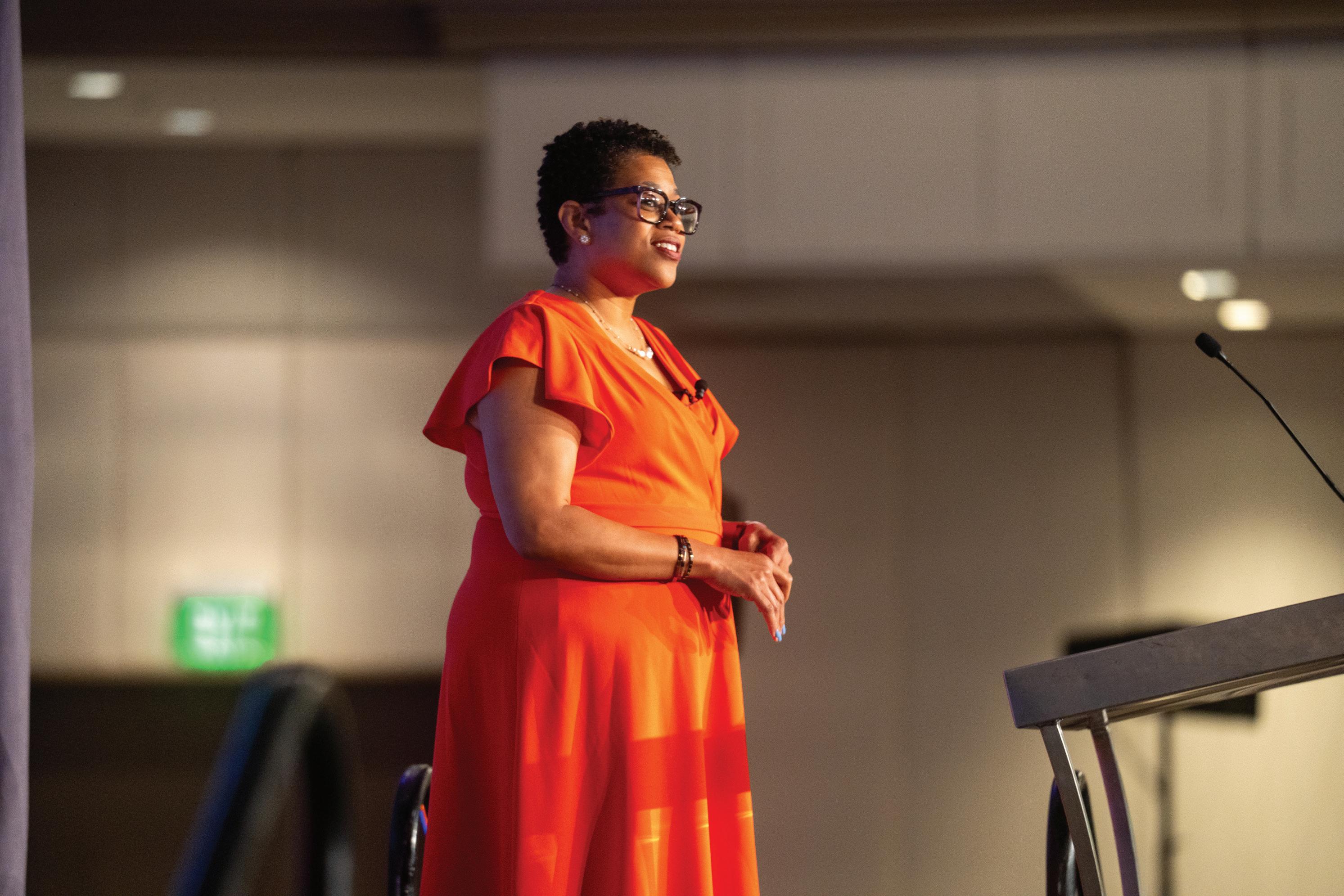
While the Center is an invitation to dream of a new world, its leaders must develop new definitions and strategies based on the inherent dignity of all people and grounded on the teaching of Jesus to treat others with compassion, Dr. Bond said.
“What kinds of instruction and practice will interrupt ... the
“ I made a personal commitment to really disrupt the narratives of the ways in which religious freedom has been talked about in this country without including the experiences of African Americans.”
Dr. Sabrina E. DentLecture story by Jeff Brumley, Baptist News Global Presentation story by Devin Withrow, summer BJC intern
“The religion that baptizes God in the American flag and makes Jesus a proponent of gun rights is much more pervasive and visible in the public domain than the ideas that the BJC promotes for us to be informed and educated,” said the Rev. Dr. Adam Bond during the 2023 BJC Luncheon. He asked guests gathered in Atlanta, “What is your countermove?”
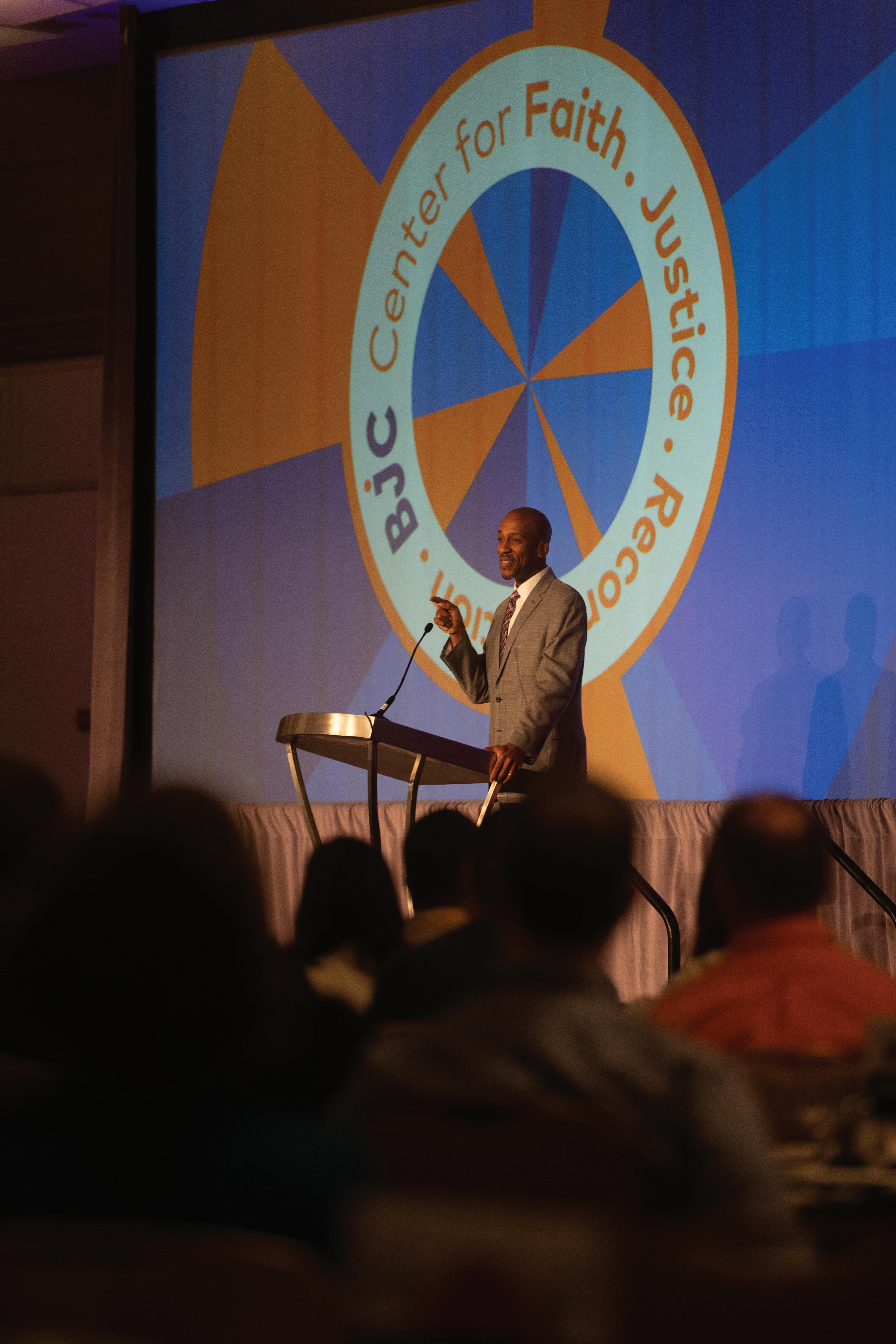
discourse and give us the permission to explore and embrace faith freedom from the margins instead of the mainstream?”
Finding those strategies is crucial because people embracing Christian nationalism have found theirs, Dr. Bond added. “Did you know that there are working groups who have leveraged the backlash in this post-George Floyd, Black Lives Matter moment? Did you know that there are groups feeding talking points and strategies to governors who have waged war against AP classes in high schools?”
Dr. Bond cited Virginia Gov. Glenn Youngkin’s 2022 executive order banning the teaching of “divisive” concepts in public school, including critical race theory. The Republican later established a hotline to report on teachers who violate the order.
Dr. Bond warned that, while there are many who wouldn’t recognize critical race theory if they saw it, they are nevertheless
of the ways in which religious freedom has been talked about in this country without including the experiences of African Americans,” said Dr. Sabrina E. Dent, Director of the BJC Center for Faith, Justice and Reconciliation. Dr. Dent continues this commitment in her role, guiding BJC into the future with a more inclusive vision of faith freedom for all.
To this end, Dr. Dent invited the audience to consider this question: “How do you imagine, and what would you like to see, as we expand our work on religious freedom through a broader justice lens?”
The Rev. Janna Louie, BJC’s chief of staff, identified herself as a daughter of immigrants. Going to school in the United States, she said, “I didn’t see my community’s stories told,” as stories like her family’s were excluded from U.S. history.
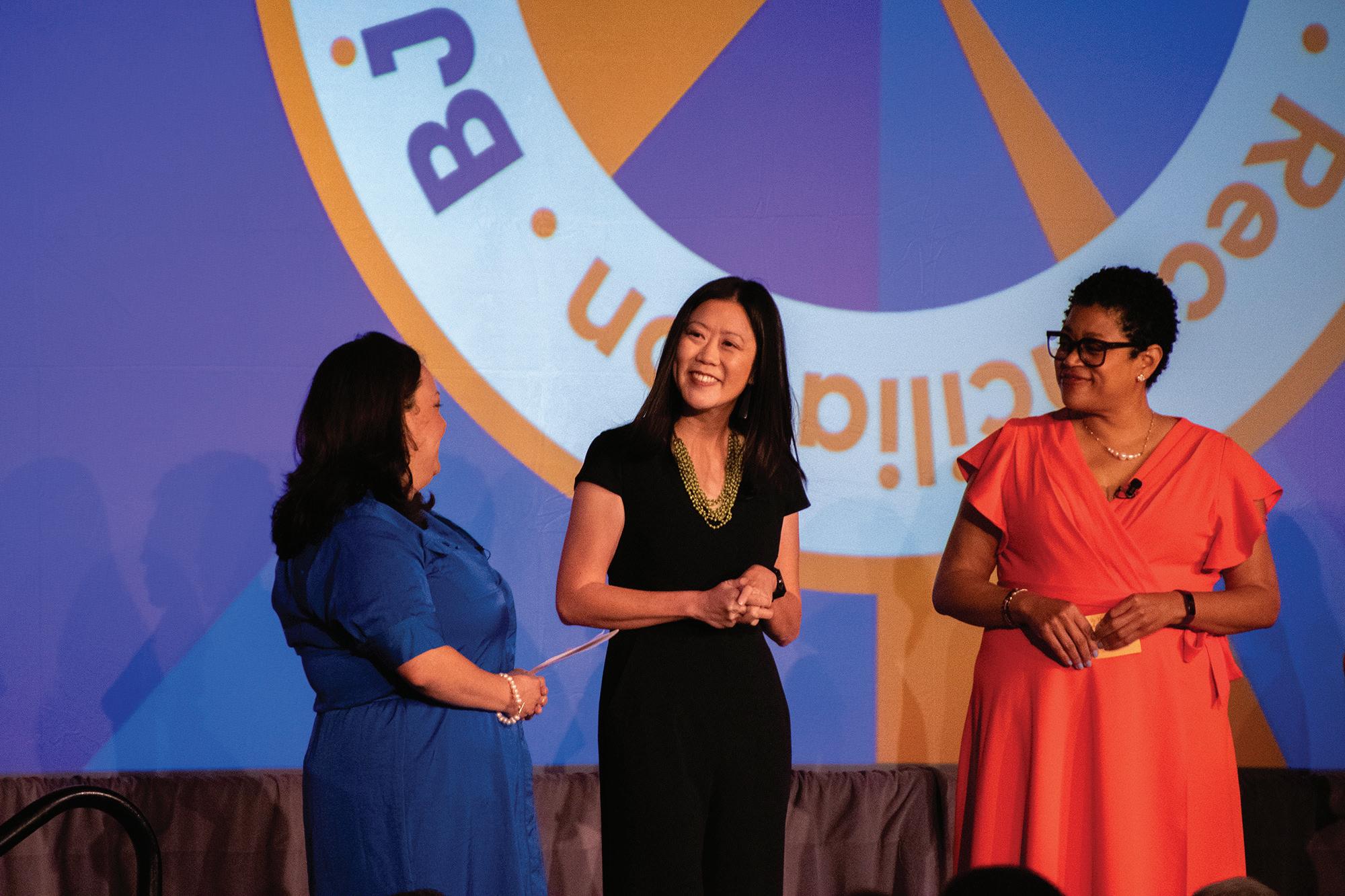
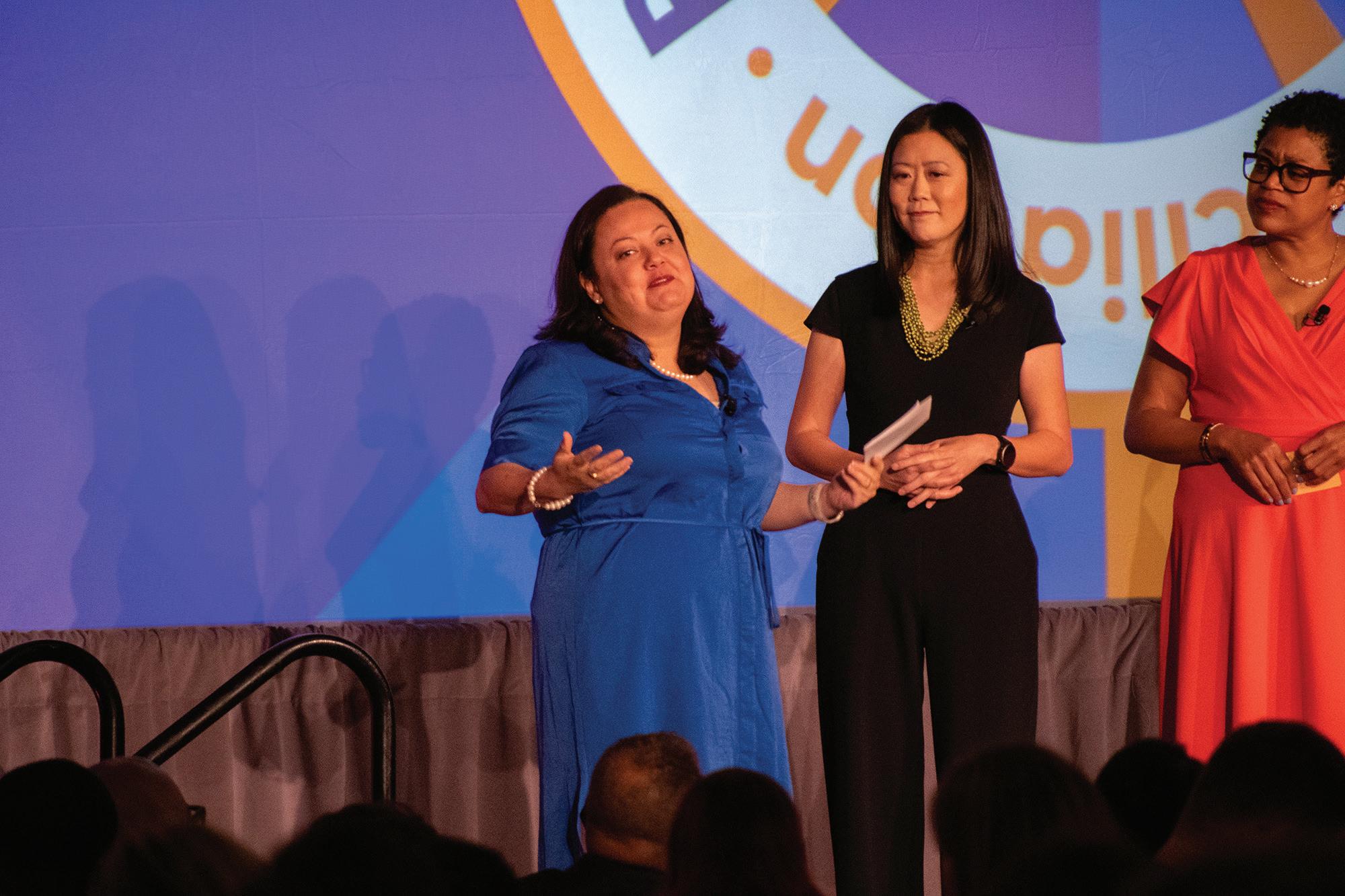
The Rev. Louie asserted that those who have formal power aren’t the ones that should be leading. Instead, she suggested that those in formal leadership follow the lead of those who have been marginalized and oppressed by society. “While I believe that power needs to be engaged on all levels, I do think that this movement forward in justice will be led by the way of those who experience
The Rev. Anyra Cano, vice chair of the BJC Board, spoke of caring for the needs of immigrants to this country. In a reading of Jesus’ words from Matthew 25, the Rev. Cano shared Scripture
“I was hungry, but you were obligated to ask if I was ‘illegal.’ I was thirsty, but you might get audited. I was sick, but you had to report my status. I needed clothing, but I wasn’t the right color immigrant. I was in prison, and you could not visit me. I was a stranger, but you

“I was hungry, but you were obligated to ask if I was ‘illegal.’ I was thirsty, but you might get audited. I was sick, but you had to report my status. ... I hope you thought to yourself, ‘That is not my Jesus.’”
Rev. Anyra Cano
“While I believe that power needs to be engaged on all levels, I do think that this movement forward in justice will be led by the way of those who experience and live in the underside of this empire.”
Rev. Janna Louie
were afraid of being criminalized as a smuggler.” She continued, “I hope you thought to yourself, ‘That is not my Jesus.’ I hope you know that’s not what Scripture says.”
The Rev. Cano, who also serves as the director of programs for
us,” she said. “But as we are saying here, we know that freedom doesn’t look or sound or feel the same for all of us.”
The chair of the BJC Board, the Rev. Dr. C. Lynn Brinkley, spoke to the recent actions of the Southern Baptist Convention disfellowshipping churches because they had women in pastoral roles. Dr. Brinkley, who also serves as associate executive director of Baptist Women in Ministry, offered a word of hope. “In this world that we are living in right now, I’m convinced that neither lists, nor conventions, nor things present, nor things to come, nor hierarchies, nor glass ceilings, nor patriarchy, nor misogyny, nor anything in all creation will be able to separate us from being created in the Imago Dei
Dr. Dent invited the audience into the work. “You’ve heard our stories, so I hope something that was said sparks interest in you and a commitment in you,” she said, inviting everyone to join the journey.
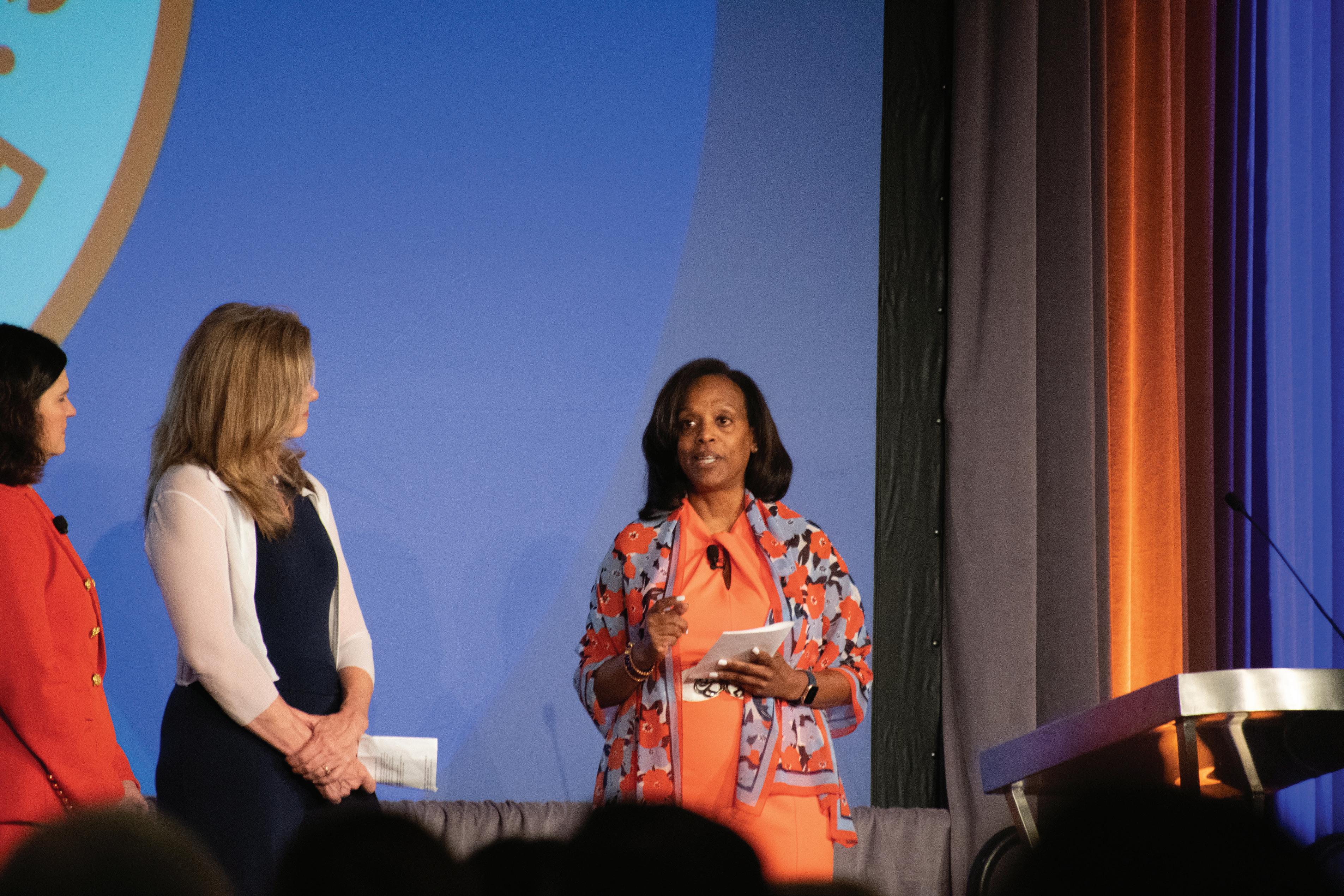
“As we say in the Center: Faith is our foundation, justice is our calling, and reconciliation is our goal. And we are committed to doing that every step of the way as we continue to advance and
to watch the presentations from

“ I’m convinced that neither lists, nor conventions, nor things present, nor things to come, nor hierarchies, nor glass ceilings, nor patriarchy, nor misogyny, nor anything in all creation will be able to separate us from being created in the Imago Dei and equally called to serve.”
Rev. Dr. Lynn Brinkley
Presenting Sponsor
Church Sponsors
Alfred Street Baptist Church Social Justice Ministry, Alexandria, Virginia
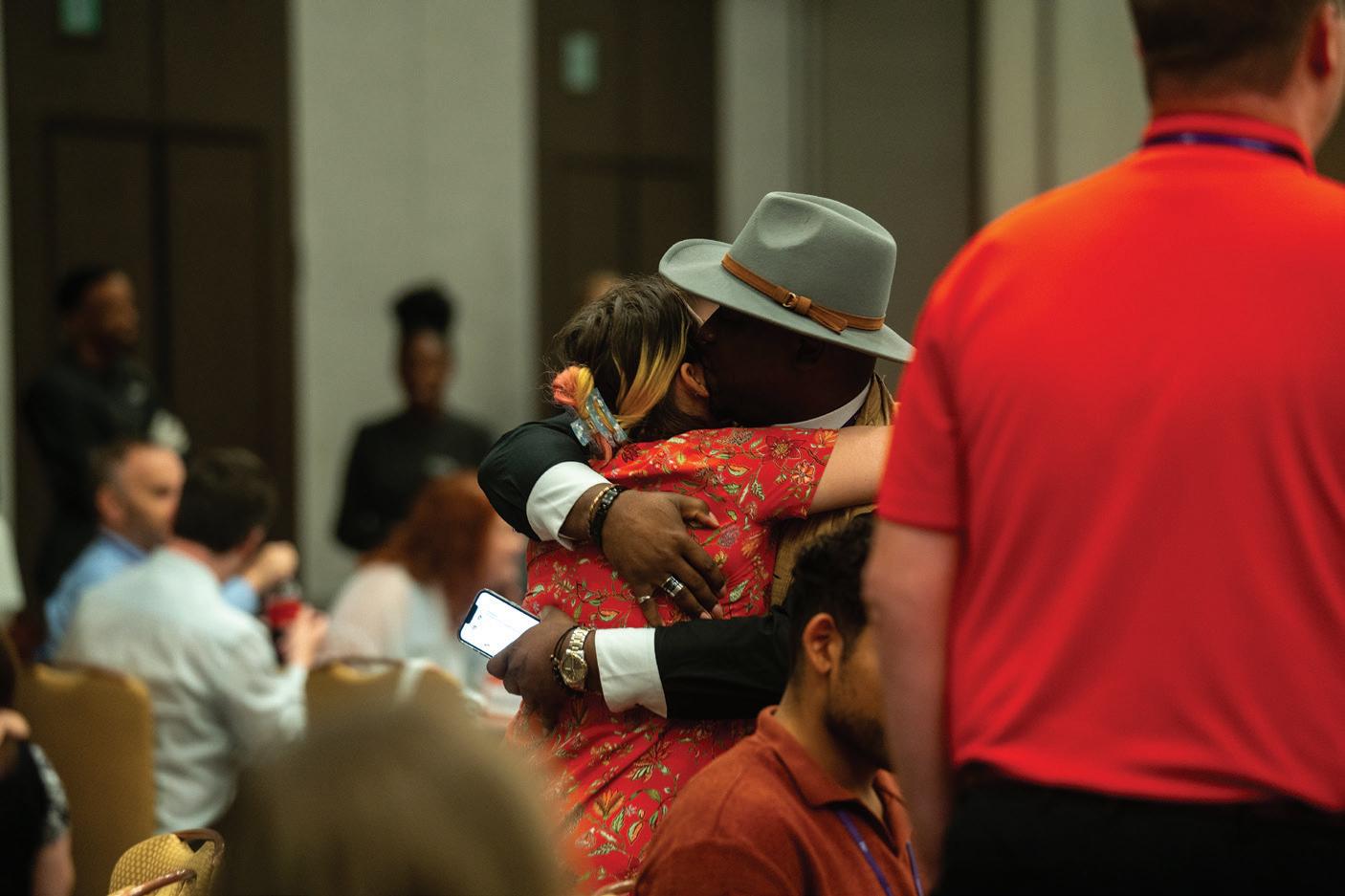
Bayshore Baptist Church, Tampa, Florida
First Baptist Church, Greensboro, North Carolina
First Baptist Church of the City of Washington, District of Columbia
First Baptist Church on Fifth, Winston-Salem, North Carolina
Lakeshore Avenue Baptist Church, Oakland, California
Northside Baptist Church, Clinton, Mississippi
North Shore Baptist, Chicago, Illinois
Second Baptist Church, Liberty, Missouri
Wilshire Baptist Church, Dallas, Texas
Seminary and University Sponsors
J.M. Dawson Institute of Church-State Studies at Baylor University Mercer University
Wake Forest University School of Divinity
Individual Sponsors
Hal and Mitzi Bass
Sabrina E. Dent
Guthrie Graves-Fitzsimmons and John Russell Stanger
Dan and Rhonda Hamil
Jim Holladay
Cynthia Holmes
David Jordan
Kenton and Mary Keller
Holly Hollman and Jay Smith
Oliver “Buzz” and Lisa Thomas
W.B. and Ruth Tichenor
Amanda Tyler and Robert Behrendt
Brent and Nancy Walker
the Caribbean Islands
Cooperative Baptist Fellowship of Georgia
Cooperative Baptist Fellowship of North Carolina
Cooperative Baptist Fellowship West
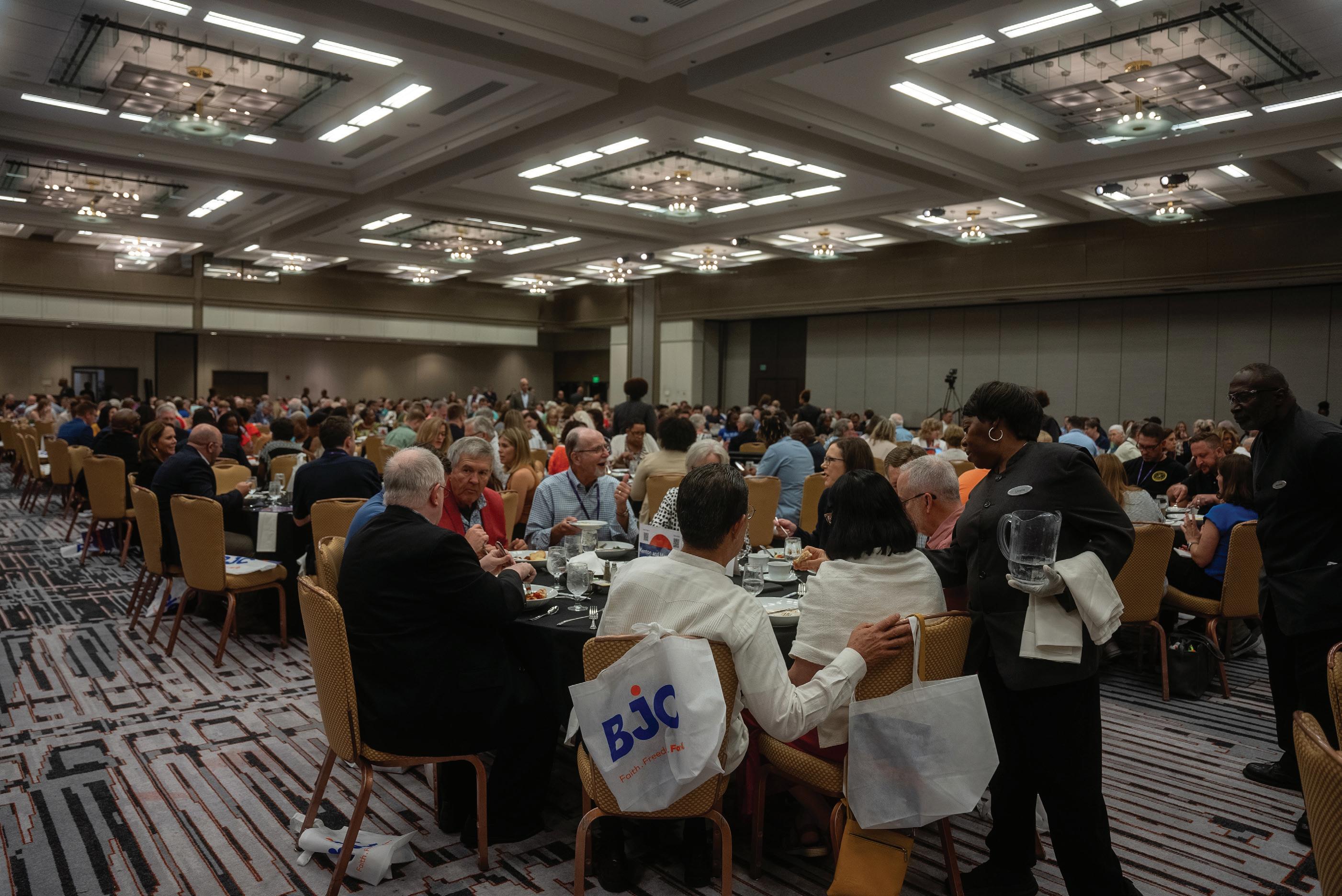
Fellowship Southwest
Great Rivers Fellowship
Mid-Atlantic Cooperative Baptist Fellowship
Organization Sponsors
Baptist News Global Baptist Women in Ministry
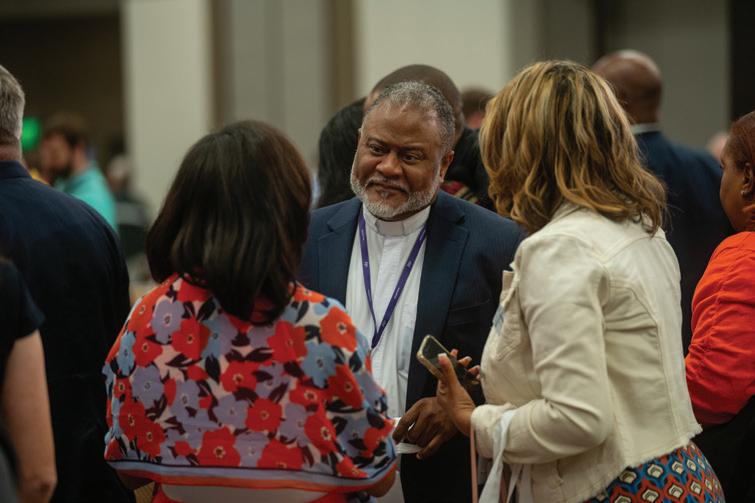
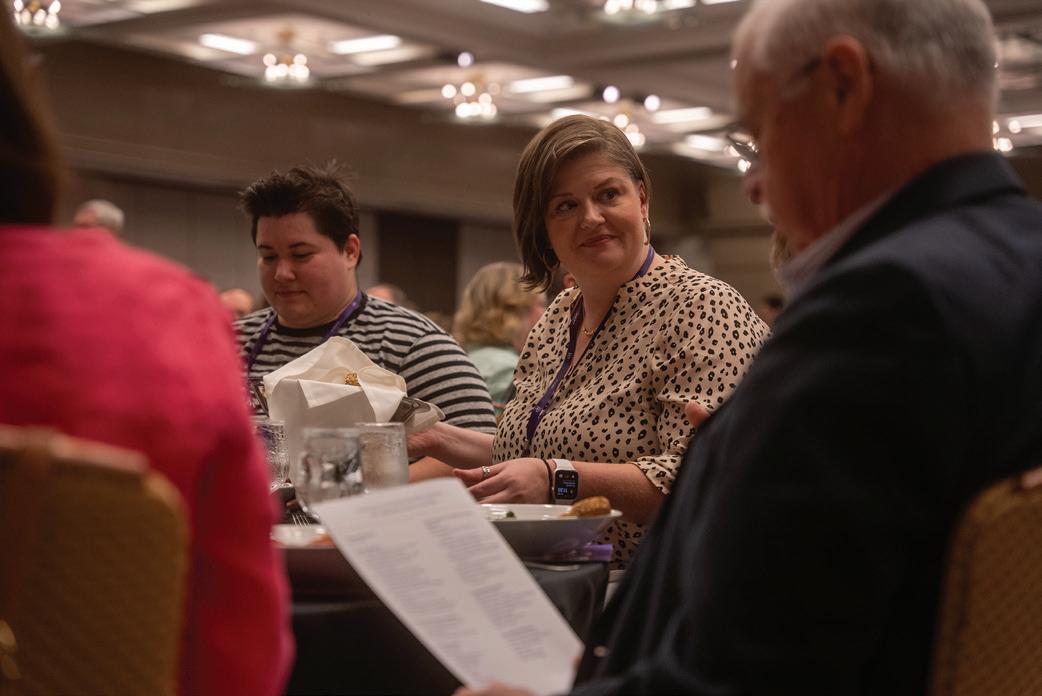
Center for Faith, Justice, and Reconciliation
Devine Talent Management LLC
Eula Mae & John Baugh Foundation
Good Faith Media
MMBB Financial Services
Passport Camps
Board Member Sponsors
David and Rebecca Cooke
Jaimie Crumley and Luke Hardman
Daniel and Andrea Glaze
Jenny Hodge
Madison McClendon
Keisha Patrick Wilson
Several Baptist-affiliated groups decried the Supreme Court’s June 29 ruling declaring that race-conscious college admissions policies are unconstitutional.
The ruling in the Students for Fair Admissions, Inc. v. President and Fellows of Harvard College and Students for Fair Admissions, Inc. v. University of North Carolina, et al. cases overturned race-conscious affirmative action policies for college admissions. The Supreme Court has previously upheld similar policies multiple times, including as recently as 2016. This decision prohibits colleges and universities from considering an applicant’s race during the admissions process, thus curtailing admission officers’ ability to consider the impact that systemic racism may have had on an applicant’s life and educational journey.
“This decision points back to the deep-rooted issues of white supremacy in our country by limiting access to education for students of color,” the BJC Center for Faith, Justice and Reconciliation said in a statement following the decision. According to the Center, the Court’s decision “recalls the disembodiment of communities of color in the United States, where people are valued for the work their bodies can produce rather than the whole of their humanity.”
The Progressive National Baptist Convention (PNBC) categorically rejected the ruling, calling it “[u]tterly reprehensible and harmful to the future of American economics and democracy” in a statement. To suggest otherwise, PNBC said, is denying the lingering dangers of the legacy of racebased slavery.
“Affirmative action gives nonwhite students the pathways they deserve and racism structurally denied their intelligent ancestors,” PNBC continued, noting that Black students and families still face race-conscious discrimination.
“As dangerous as White Christian Nationalism and interpersonal racism prove to be, today strips us of the illusion that our government possesses a thoroughgoing
devotion to racial justice,” PNBC continued. As the denominational home of the Rev. Dr. Martin Luther King Jr., PNBC noted that “this decision shreds one of the few extant, hard-fought achievements of the Civil Rights Era, a moment in American history PNBC members worked to realize.”
The Alliance of Baptists also condemned the decision. The Rev. Dr. Elijah Zehyoue, co-director of the Alliance of Baptists, named it as part of a trend of Supreme Court decisions that negatively affect the marginalized and vulnerable.
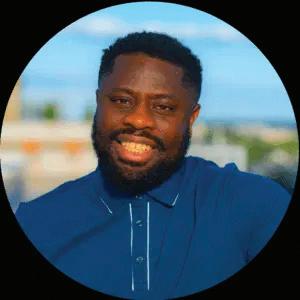
“As an antiracist, LGBTQ+ affirming organization that is theologically conscious of God’s preferential option for the poor, we are aware that we are called to continue to raise our voice in solidarity with all people affected by these decisions,” Dr. Zehyoue said.
matter of law, it is also a matter of values,” said the Rev. Dr. Corey D.B. Walker, interim dean of the school. He noted that, in an age of white Christian nationalism and attacks against gender, ethnic and religious minorities’ rights, “today’s ruling reminds us that matters of law cannot be separated from matters of values. And not just the values of individuals, but of a nation.”
Dr. Walker emphasized that diversity is not just a conceptual matter, but a principle. “God creates in diversity and not in sameness,” he said. “As a theological community grounded in ‘justice, reconciliation, and compassion’ we are called to affirm the gift of diversity in humanity and in all of God’s creation.”
Chief Justice John Roberts wrote the opinion for the 6-3 Supreme Court majority. Many universities, Roberts held, “con-
The Center, PNBC, and Alliance of Baptists all shared their commitment to action. PNBC said it will continue to partner with the nation’s Black churches and Historically Black Colleges and Universities “to ensure the growth of the Black middle class.” The BJC Center said it plans to mobilize faith communities to action. The Alliance of Baptists similarly expressed its commitment to remain faithful to the work, calling on all to support movements that work to liberate society from “fundamentalism, exclusion, and racism.”
Academic institutions also decried the Court’s ruling. The Wake Forest University School of Divinity, a school that partners with the BJC Center for Faith, Justice and Reconciliation, released a statement lamenting the Supreme Court’s decision. “The issue of affirmative action is not just a
cluded, wrongly, that the touchstone of an individual’s identity is not challenges bested, skills built, or lessons learned but the color of their skin.”
Other justices disagreed. In separate dissents, Justices Sonia Sotomayor and Ketanji Brown Jackson expressed disagreement with the majority’s assertion that America is colorblind. Justice Sotomayor wrote that the majority opinion “cements a superficial rule of colorblindness as a constitutional principle in an endemically segregated society where race has always mattered and continues to matter.”
“With let-them-eat-cake obliviousness, today, the majority pulls the ripcord and announces ‘colorblindness for all’ by legal fiat,” Justice Jackson lamented in her dissent. “But deeming race irrelevant in law does not make it so in life.”
Rev. Dr. Elijah Zehyoue Alliance of Baptists
“[W]e are aware that we are called to continue to raise our voice in solidarity with all people affected by these decisions ”
Join us October 26-27 for (Dis)Belief: Reimagining the Religious Landscape of Black America
Engage with new and needed dialogue as Black nontheists and Black Church leaders come together for a pivotal conversation during the Religious Freedom Mobile Institute.
You’re invited to be part of the learning and listening during this twoday online event October 26-27, joining advocates, clergy, seekers, leaders and laypeople engaging together in a personal and public discussion titled (Dis)Belief: Reimagining the Religious Landscape of Black America. The event is free to all, and the four sessions will explore a wide range of topics. Presentation titles include “African American Secular Humanists: What We Believe,” “It’s Tricky: Christian Identity and the Black Church,” and “Truce! Bridging Secular and Religious Communities to Address Black Mental Health,” just to name a few.
The event also includes one of the first virtual screenings of the movie gOD-Talk, exploring the lives of seven Black Millennials and their challenges and discoveries with faith in the 21st century. It’s the first feature film of the Smithsonian’s National Museum of African American History and Culture, produced in association with the Pew Research Center.
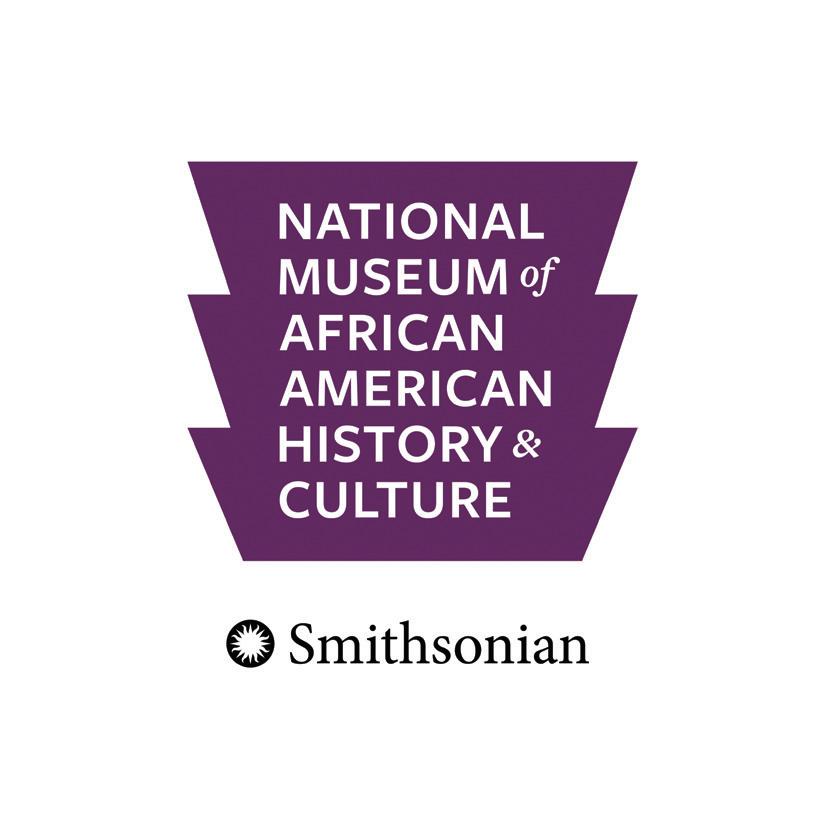
Registration for the Religious Freedom Mobile Institute is free to all. Visit BJConline.org/Center to sign up, and share it with others!
October 26
10:30 a.m.: Opening remarks from Dr. Sabrina E. Dent and Dr. Anthony Pinn
11 a.m.: Session #1 with Dr. Christopher Cameron, Rev. Dr. Brianna Parker, and Dr. Teddy Reeves
2 p.m.: Session #2 with Candace Gorham, Dr. Sikivu Hutchinson, and Rev. William H. Lamar IV
6 p.m.: Screening of gOd-Talk documentary
October 27
11 a.m.: Session #3 with Dr. Terrence Johnson, Rev. Dr. Eboni Marshall Turman, and Rev. Naomi Washington-Leapheart
2 p.m.: Session #4 with Dr. Kevin Cosby and Dr. Yolanda Pierce
Registration is open and free to all! Go to BJConline.org/Center or scan the QR code
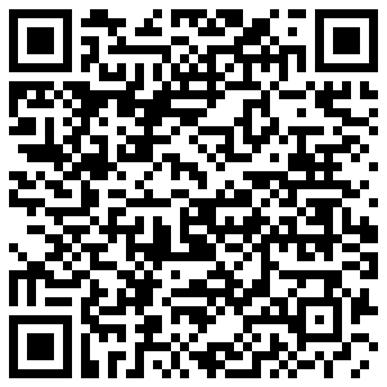
October 26-27 online
From issues pertaining to gender and sexuality, abuse and trauma, hip-hop culture and music, gentrifi cation, race and racism, patriarchy, and more, gOD-Talk explores a rising phenomenon of religious and spiritual shifts among the most religious demographic in the U.S.: Black Americans. Be one of the first people to see this documentary exploring the lives of seven Black Millennials: Candice M. Benbow multi-genre theologian; Rashid Hughes, a yoga and mindfulness teacher; Tre’vell Anderson, a journalist; Chavonni Taylor, a host and producer; Diamond Stylz, a nonprofit leader; Makkah Ali, an educator; and Michael Wortham, an educator.
The film is the culmination project of the five-year study on Black Millennials and faith undertaken by the Smithsonian’s National Museum of African American History and Culture’s Center for the Study of African American Religious Life. The Religious Freedom Mobile Institute is grateful for the partnership of the National Museum of African American History and Culture (NMAAHC) for this year’s event, which includes this virtual screening and a presentation from Dr. Teddy Reeves, a curator of religion at NMAAHC.
The Religious Freedom Mobile Institute features a variety of perspectives and people with backgrounds in academia, religion, the arts and more, including:
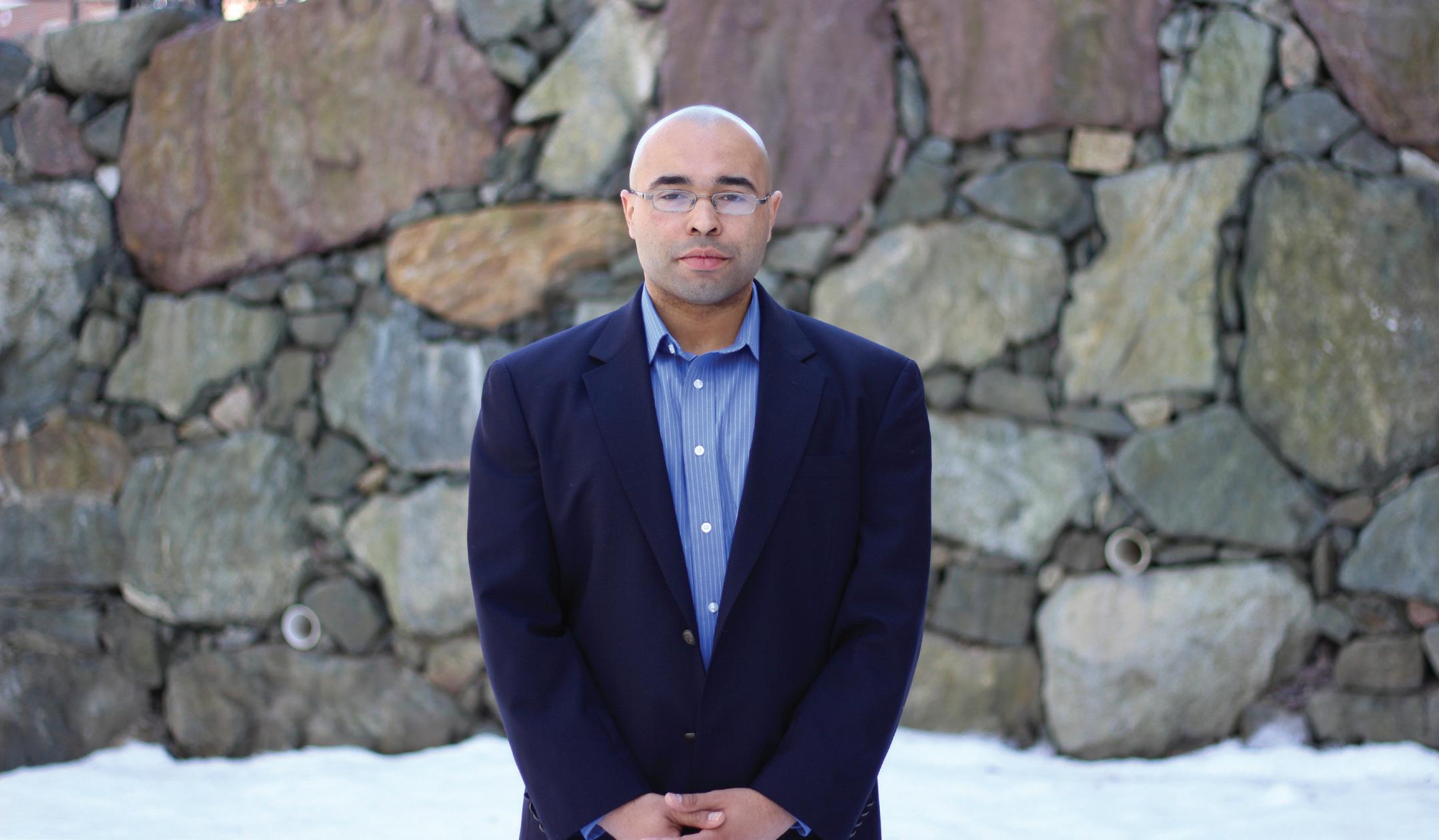
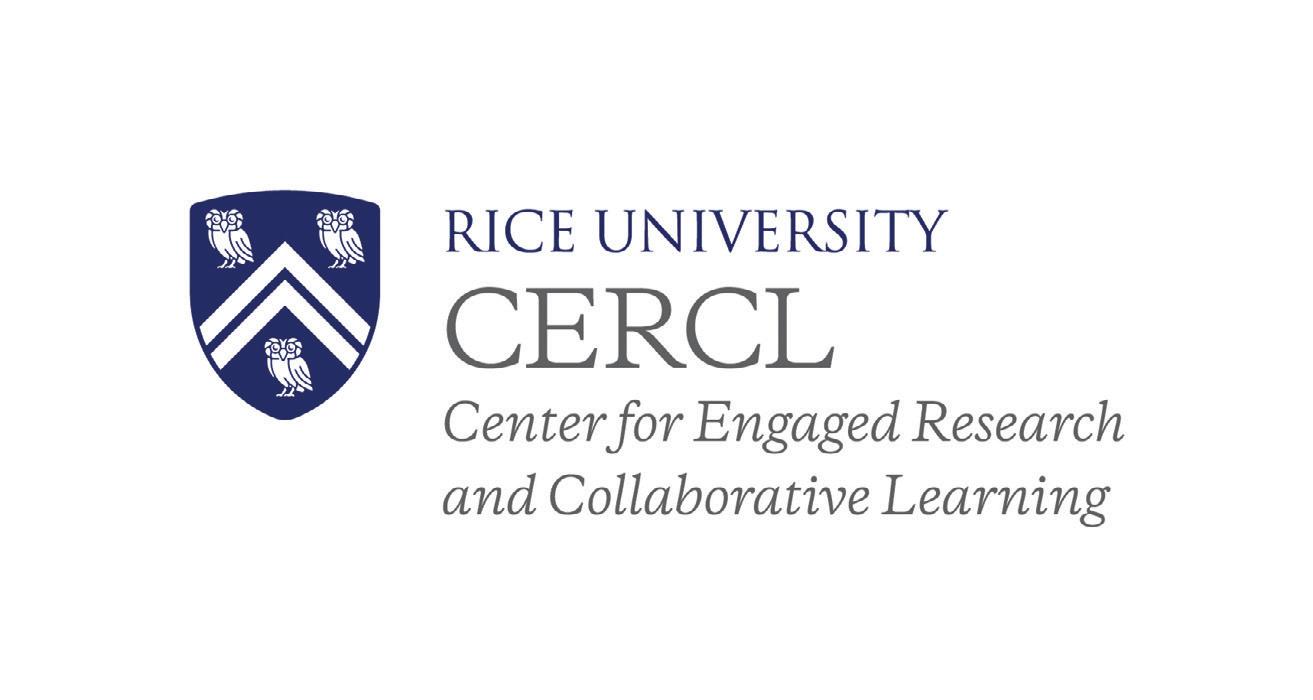
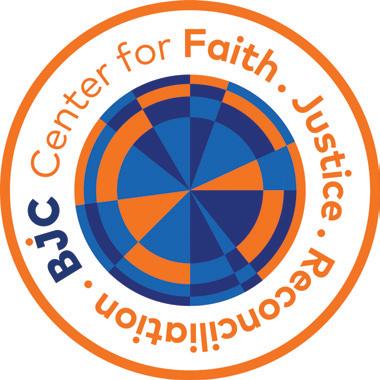
A professor of history at the University of North Carolina at Charlotte, Dr. Cameron’s research and teaching interests include early American history, the history of slavery and abolition, and African American religious and intellectual history. The founding president of the African American Intellectual History Society, he is the author of Black Freethinkers: A History of African American Secularism and the co-editor of Race, Religion, and Black Lives Matter: Essays on a Moment
A licensed professional mental health counselor, Gorham is a former ordained minister turned atheisthumanist activist, researcher and writer on issues related to race, religion and mental health. A member of the African American Humanist advisory board, the Secular Therapist Project and The Clergy Project, she is the author of The Ebony Exodus Project: Why Some Black Women Are Walking Out on Religion—and Others Should Too and On Death, Dying, and Disbelief
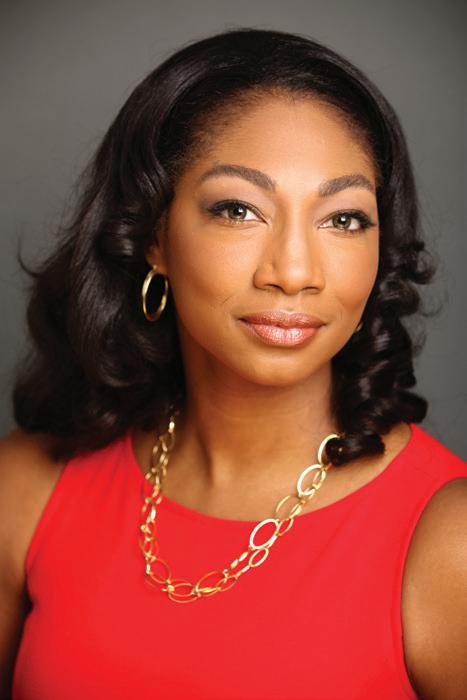
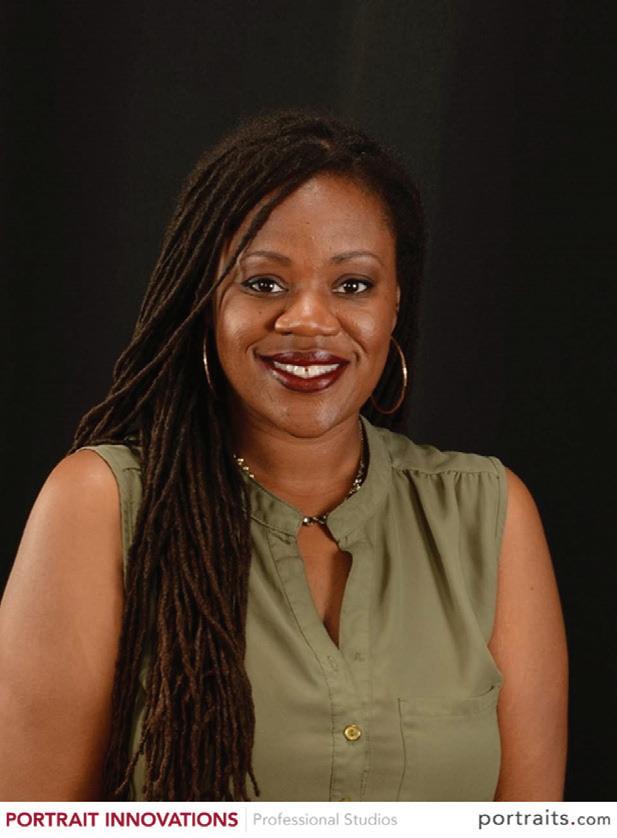
A multifaceted, award-winning producer and curator, Dr. Reeves uses his strengths to capture and curate cultural moments. As a curator of religion at the Smithsonian National Museum of African American History and Culture, he has created innovative projects that highlighted the influence of digital technologies in capturing and preserving Black spiritual and religious life in the Americas. Some of these influential projects include the “Black Religion in the Age of Covid-19 Collections Project,” capturing Black religious and spiritual communities’ digital response to COVID-19, and producing the documentary film gOD-Talk
An author, preacher, professor, pastor and public theologian, the Rev. Dr. Turman is associate professor of theology, African American religion, and African American studies at Yale University Divinity School. Her research interests span the varieties of 20th and 21st century U.S. theological liberalisms, most especially Black and womanist theological, social ethical and theo-aesthetic traditions. She is the author of Toward a Womanist Ethic of Incarnation: Black Bodies, the Black Church and the Council of Chalcedon, the first womanist book-length treatment of conciliar tradition in relationship to Black Christian life.
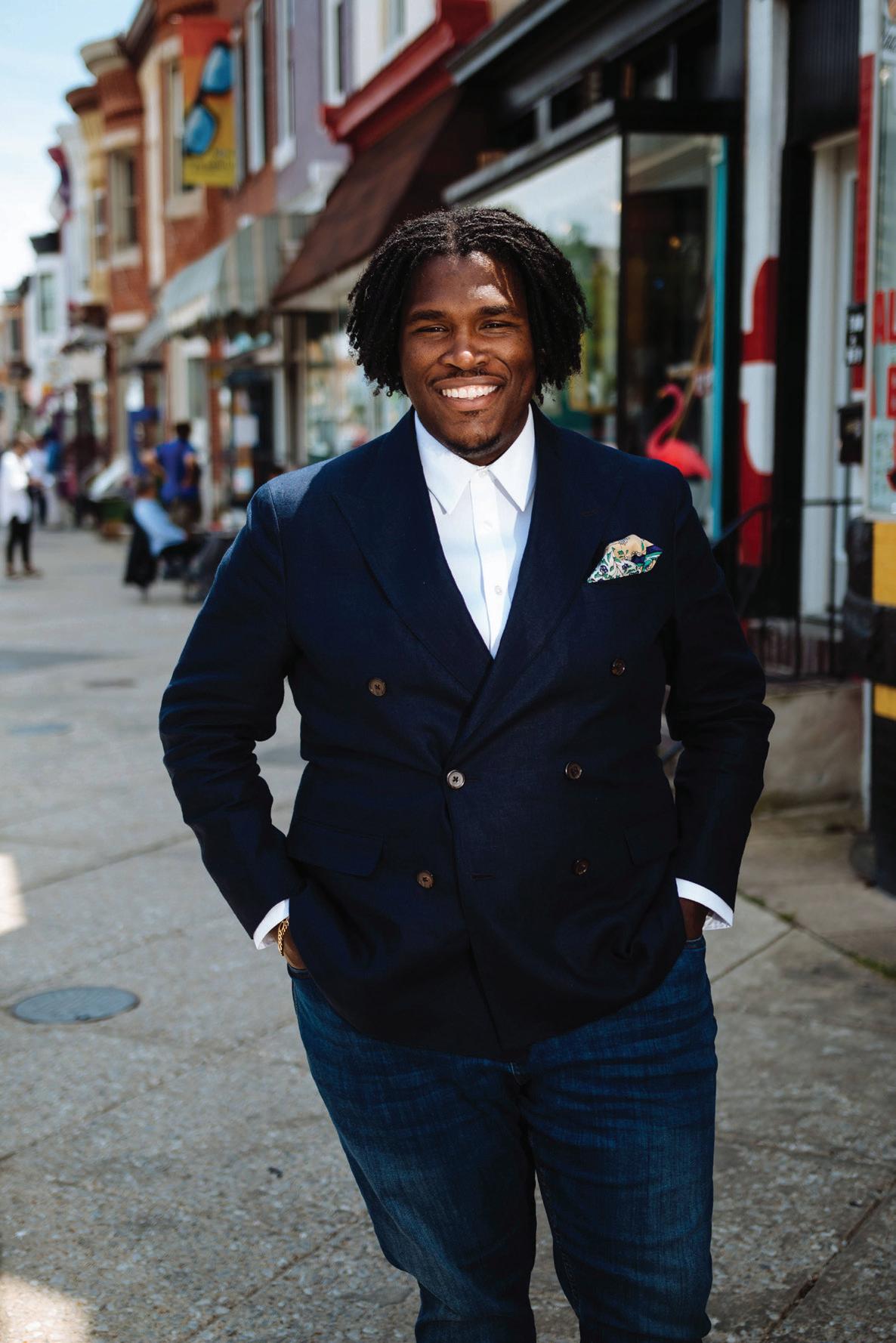
Ten young professionals descended on Colonial Williamsburg in August to learn more about the historical, legal and theological underpinnings of religious liberty, kicking off their experience as BJC Fellows. Our 2023 class comes from diverse theological, educational and geographic backgrounds, and they are united in their call to defend religious freedom.
“This year’s class of BJC Fellows cultivated a deeper understanding of the challenges and opportunities that exist in the religious freedom legal landscape, all through a social justice lens,” said Dr. Sabrina E. Dent, director of the BJC Center for Faith, Justice and Reconciliation, which serves as the home of the BJC Fellows Program. “We have an incredible and energetic group of leaders in this year’s class, and we are looking forward to seeing the great and critical work they will continue to do in their own communities across the country to advance faith freedom for all.”
During the BJC Fellows Seminar, BJC staff and other experts shared their expertise and engaged the group in interactive exercises. Plus, the BJC Fellows heard from historical interpreters portraying the Rev. Gowan Pamphlet, an enslaved tavern worker and preacher who founded Williamsburg’s First Baptist Church, and George Wythe, a delegate to the Constitutional Convention and teacher of many Founders. In exploring the various underpinnings of religious freedom, the BJC Fellows also discerned whose stories have been excluded from the common narratives.
This is the eighth class of BJC Fellows since the program began in 2015, and the total number of faith freedom leaders named as BJC Fellows now stands at 78. For more information, visit BJConline.org/Fellows
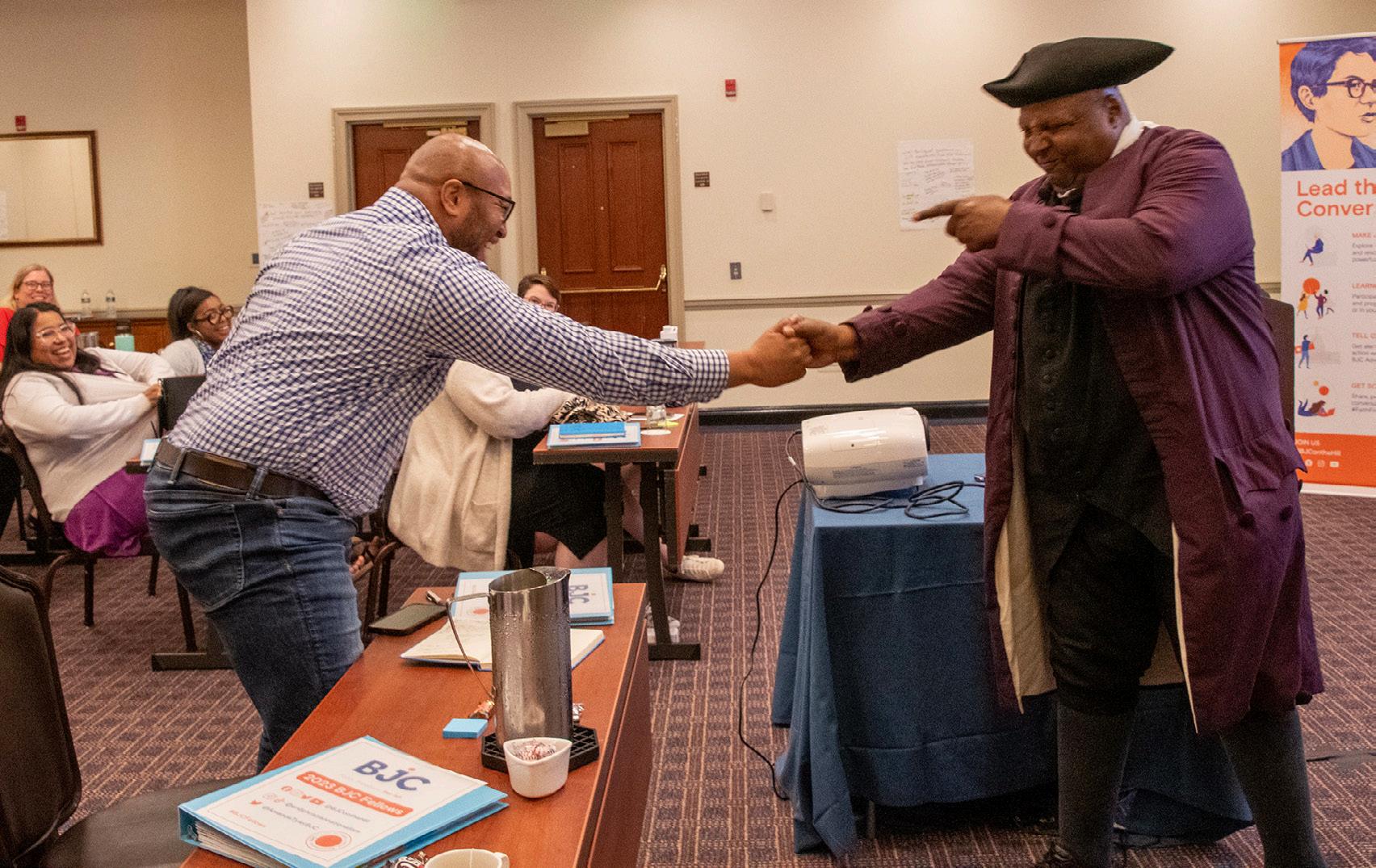
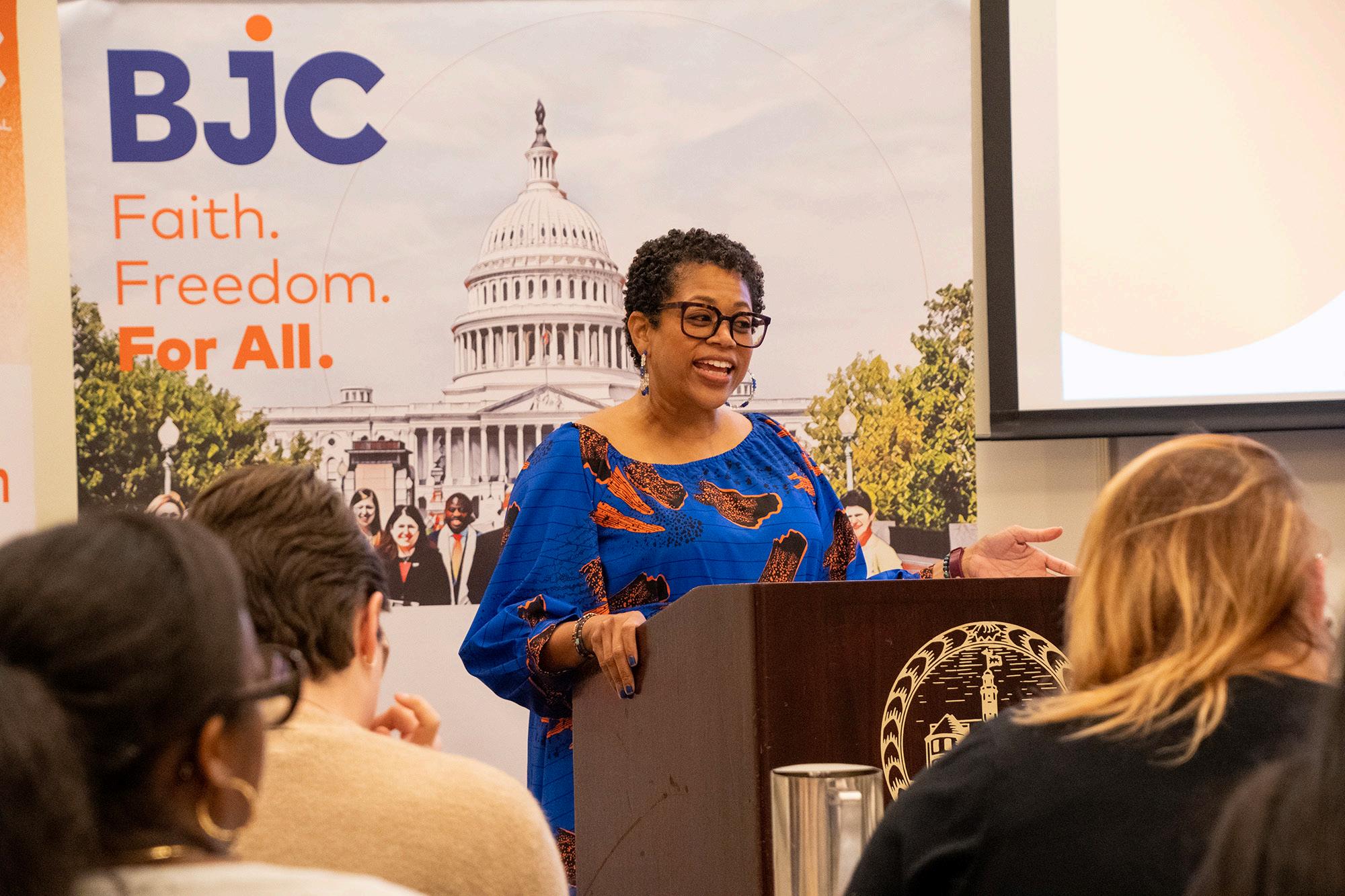
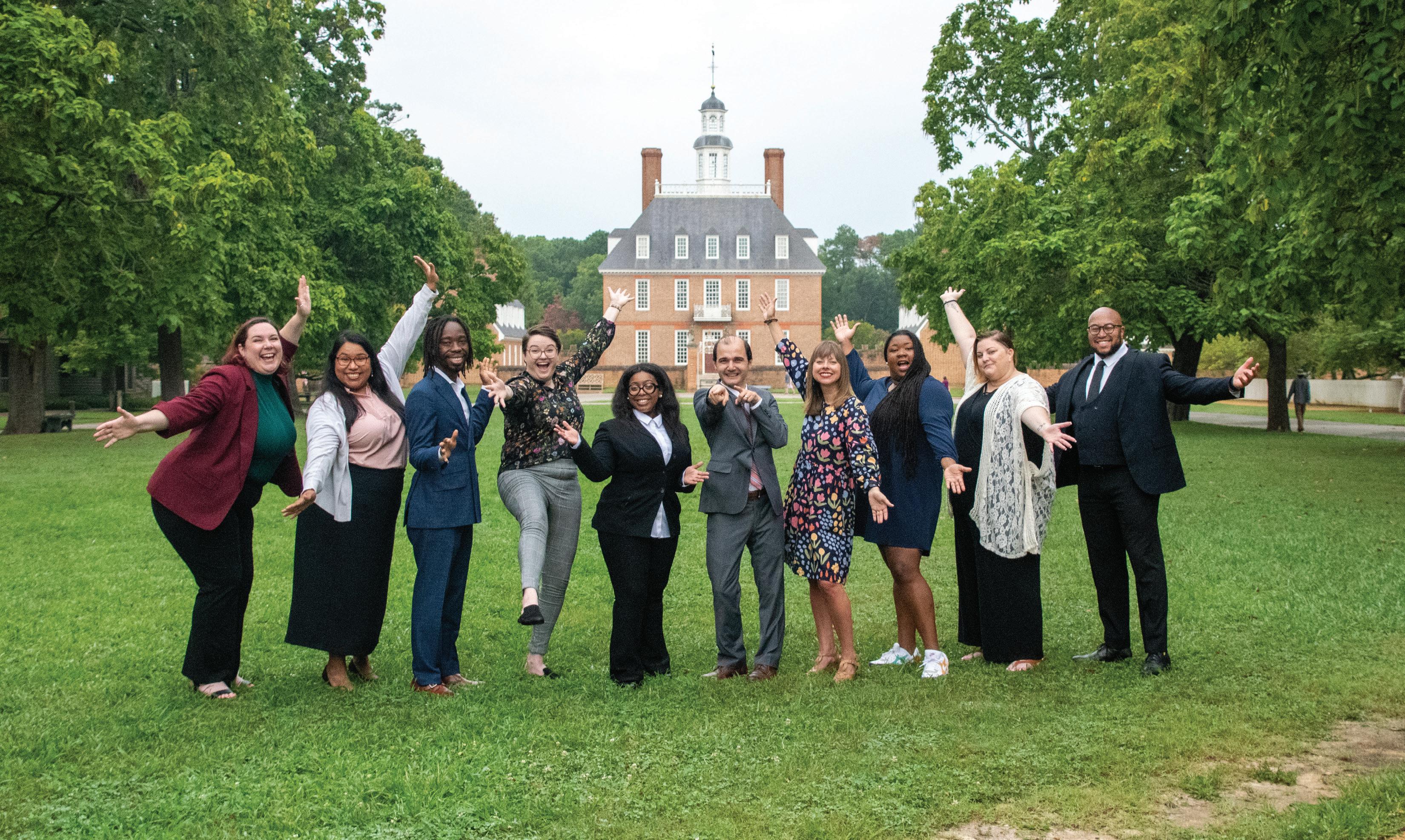
“As I laid eyes on the site of the historic First Baptist Church of Williamsburg — one of the oldest Black churches founded by African Americans in the nation — and walked through the meeting house across the street, I kept thinking about how much courage it took for these ancestors to practice their faith and rituals in the face of unimaginable oppression. I thought about the Indigenous faith traditions the enslaved carried with them that sustained them before they were transported to the shores of Virginia and after they were sold into slavery. I thought about the Christianity of the enslavers that would justify human bondage and the inhumanity embedded within the institution as well as the Christian tradition of free and enslaved Black people that would reinforce the truth of their humanity: that physical and spiritual liberation was possible.”
Amethyst Holmes Washington, D.C.“For me, it has been a struggle to have conversations with people who believe that the Framers had the intention to include the Christian ideology in our founding documents. Throughout the BJC Fellows Seminar, we talked about that and how that myth has been debunked — there was a group of Framers who wanted to include it, but they lost.
Being a BJC Fellow means I am able to gain resources and knowledge to take with me to my particular contexts and share the message of what religious freedom is and how it affects other things happening in our world.”
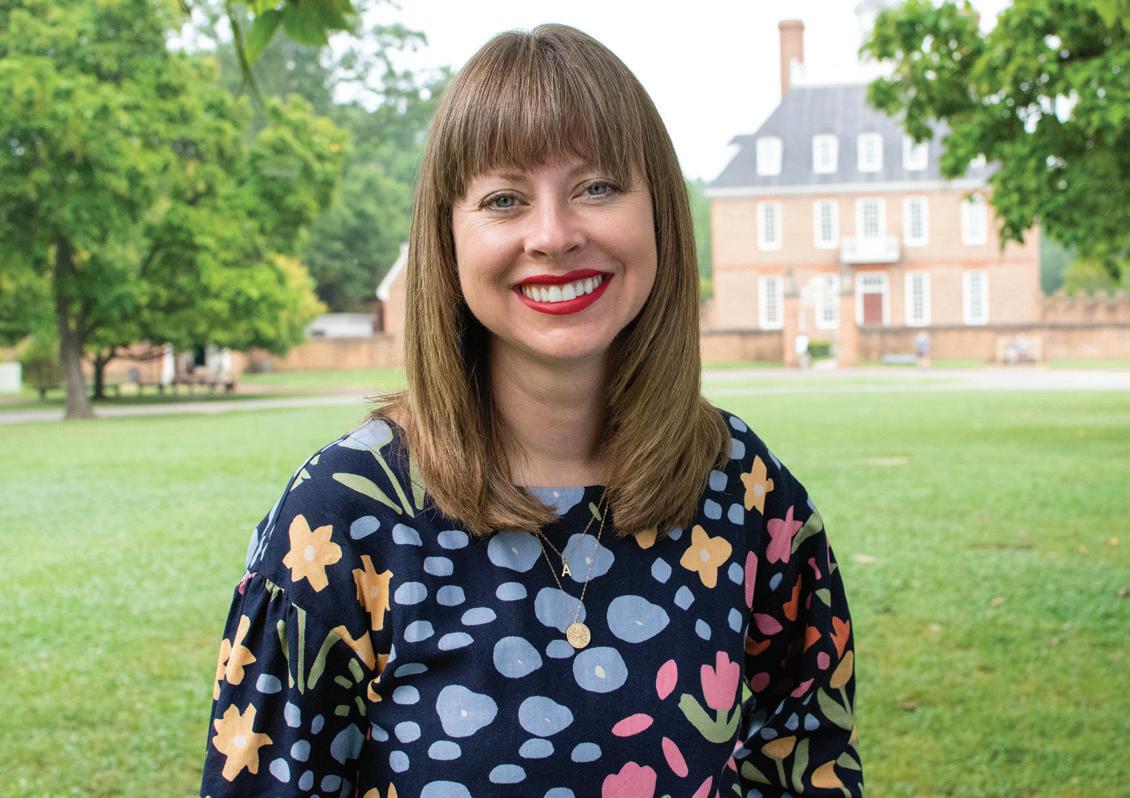
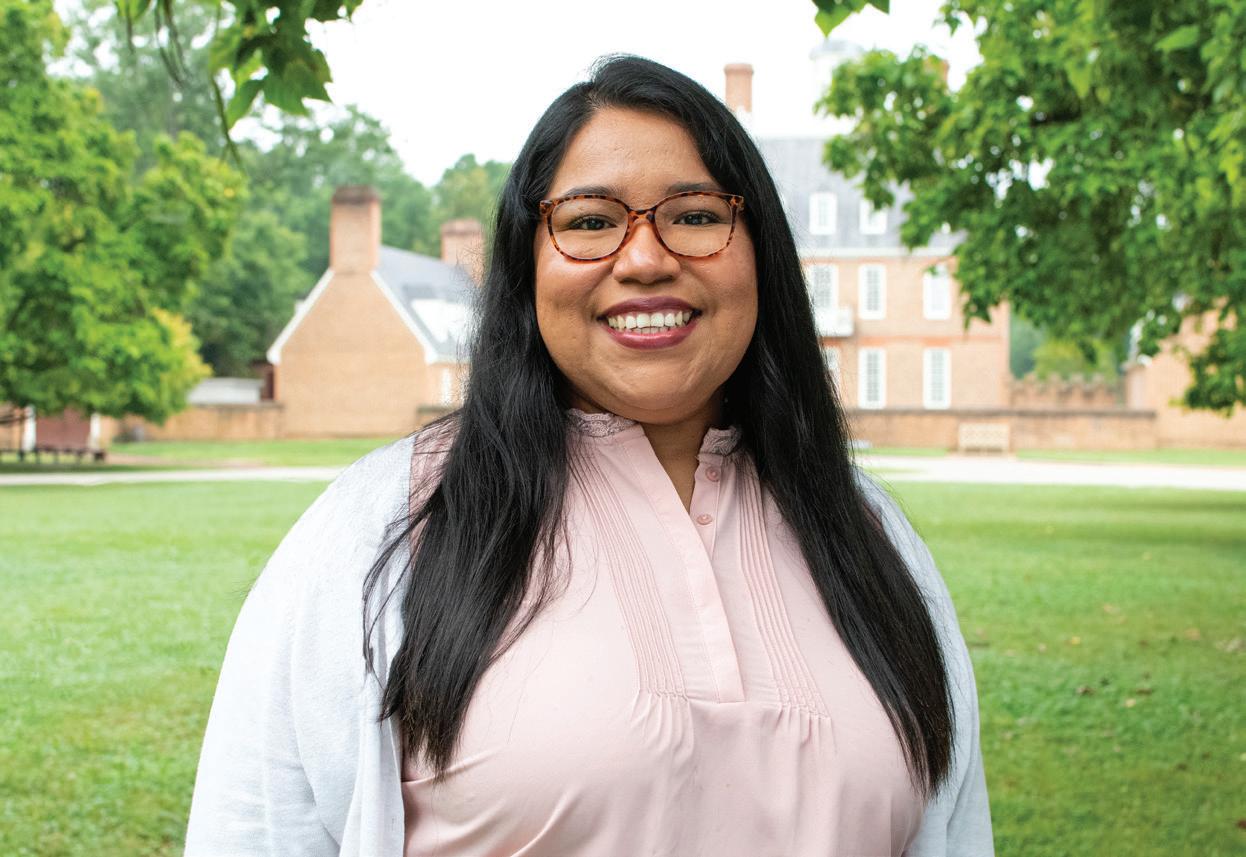

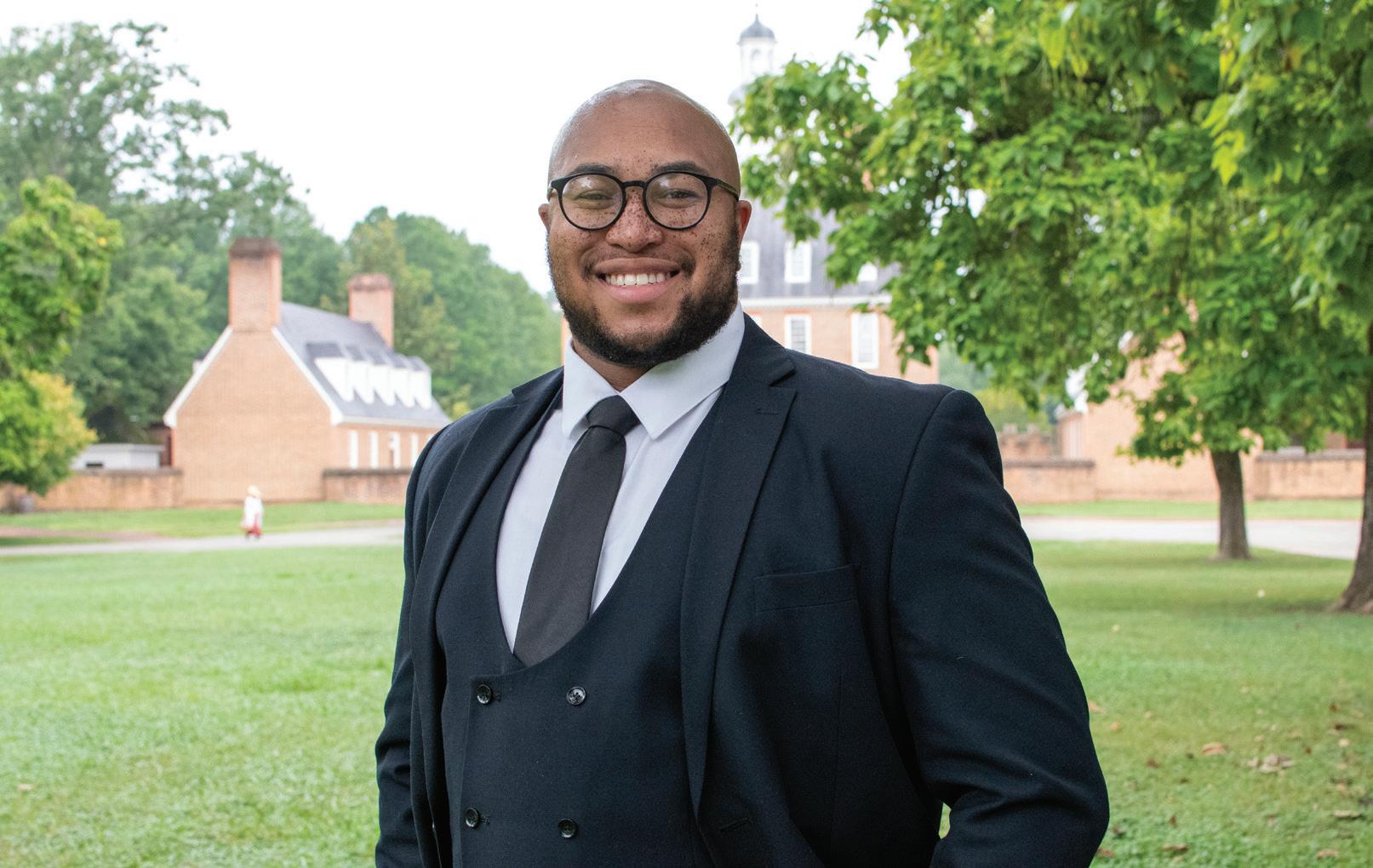
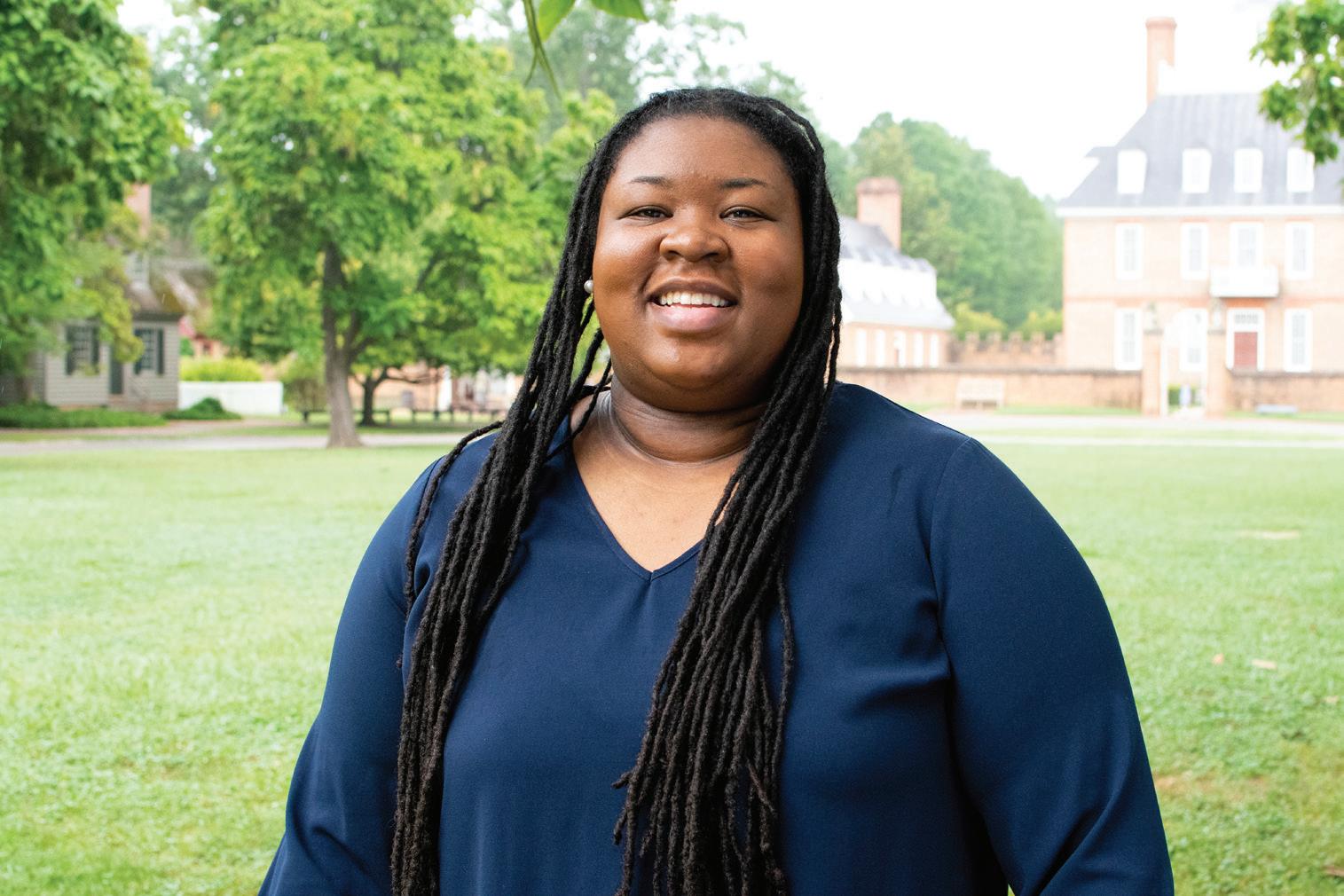 Abigail Villagrana Waco, Texas
Abigail Villagrana Waco, Texas
“I had the opportunity to spend five days in Colonial Williamsburg with nine other BJC Fellows of varying races and backgrounds, some in ministry, some in nonprofit work, some Christian, one Muslim, some straight, and some LGBTQ. While we came from different backgrounds, we were all focused for five days on one topic: religious liberty in America.
Religious liberty can be a weighted and complicated term. For many, the idea of Baptists in America fighting for religious liberty for everyone might be surprising. True religious freedom is going to allow all of us the freedom to live as we are created, in the image of God.”
Rev. Kari Baumann Greensboro, North Carolina“A society that respects religious freedom is a society that values diversity, encourages dialogue, and promotes understanding between individuals of different faiths and perspectives. This diversity is what enriches our cultural tapestry and fuels innovation and progress.
As we navigate the complexities of our interconnected world, the call to action for safeguarding religious freedom becomes even more urgent. By championing this cause, we send a resounding message that we refuse to accept a world where prejudice and discrimination define our interactions.”
Minister Bobbie Newell Jr. Richmond, Virginia“The founding fathers, inspired by the Enlightenment philosophies of individual rights and freedoms, recognized the inherent dangers of intertwining religion and governance. ... This intellectual underpinning not only informed the framing of the Constitution but also found its expression in the First Amendment — a testament to their resolute commitment to safeguarding the diverse tapestry of beliefs that would come to define the American experience. In my time as a BJC Fellow, the ways in which the founding fathers pursued this ideal and remained steadfast to espousing it in theory was clear.
However, as a queer son of the Black church, it was also crystallized that the practice of the theory of religious liberty did not extend to enslaved communities. Even as the founding fathers articulated their convictions with fervor and conviction, their inability to see enslaved people as fully human served as a blockade to the full realization of this ideal.”
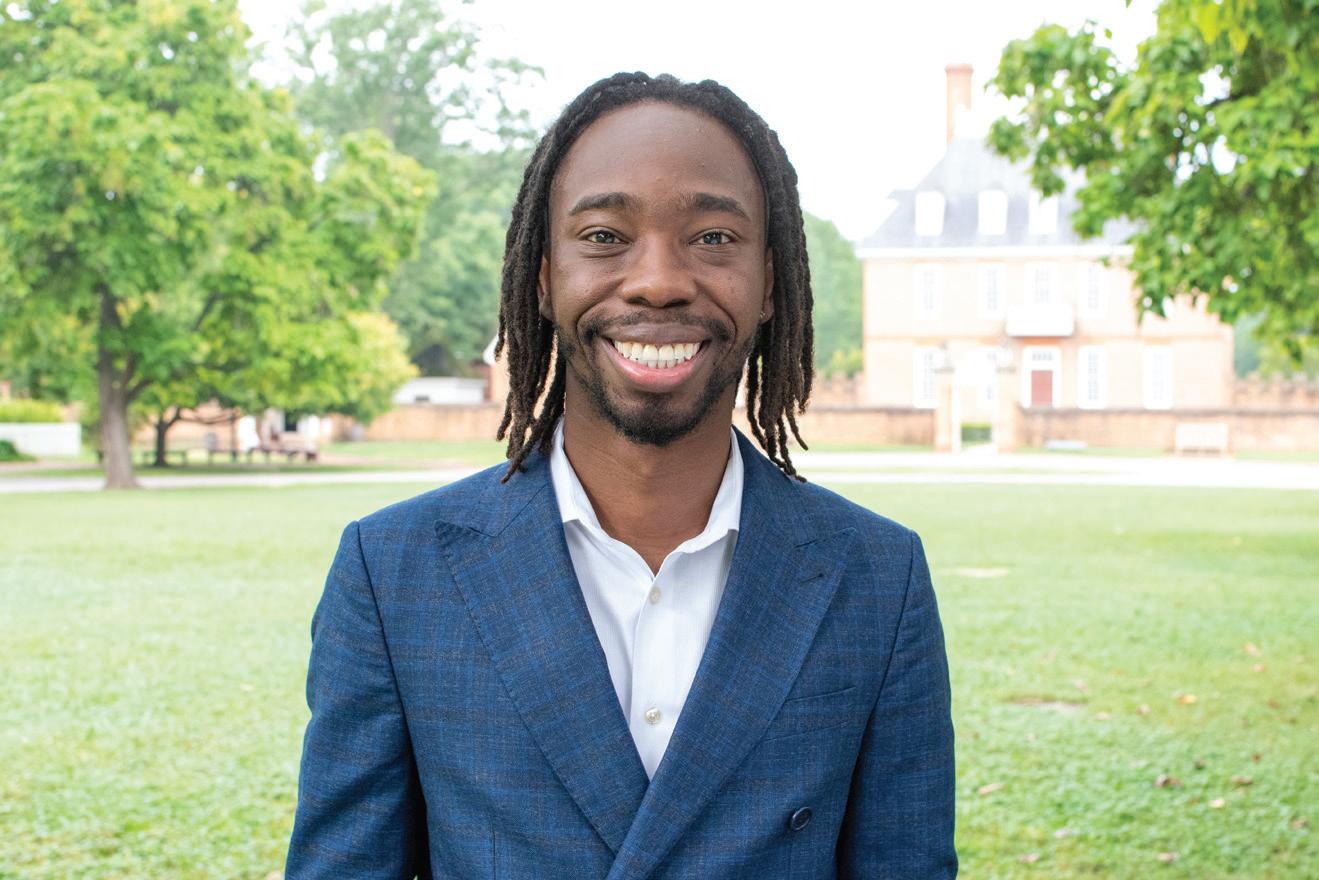 Rev. Don Abram Chicago, Illinois
Rev. Don Abram Chicago, Illinois
“I think that we need to approach faith freedom for all from a ‘one for all and all for one’ point of view. With this understanding, I believe that we can collectively inform, partner and advocate for religious freedom on behalf of all who are challenged and mistreated because of their sincerely held religious beliefs and backgrounds. ...
This experience will be an incredible addition to my religious freedom toolkit and will help me move forward in my journey towards becoming an accepting and inclusive partner of all faiths and be a voice on their behalf.”
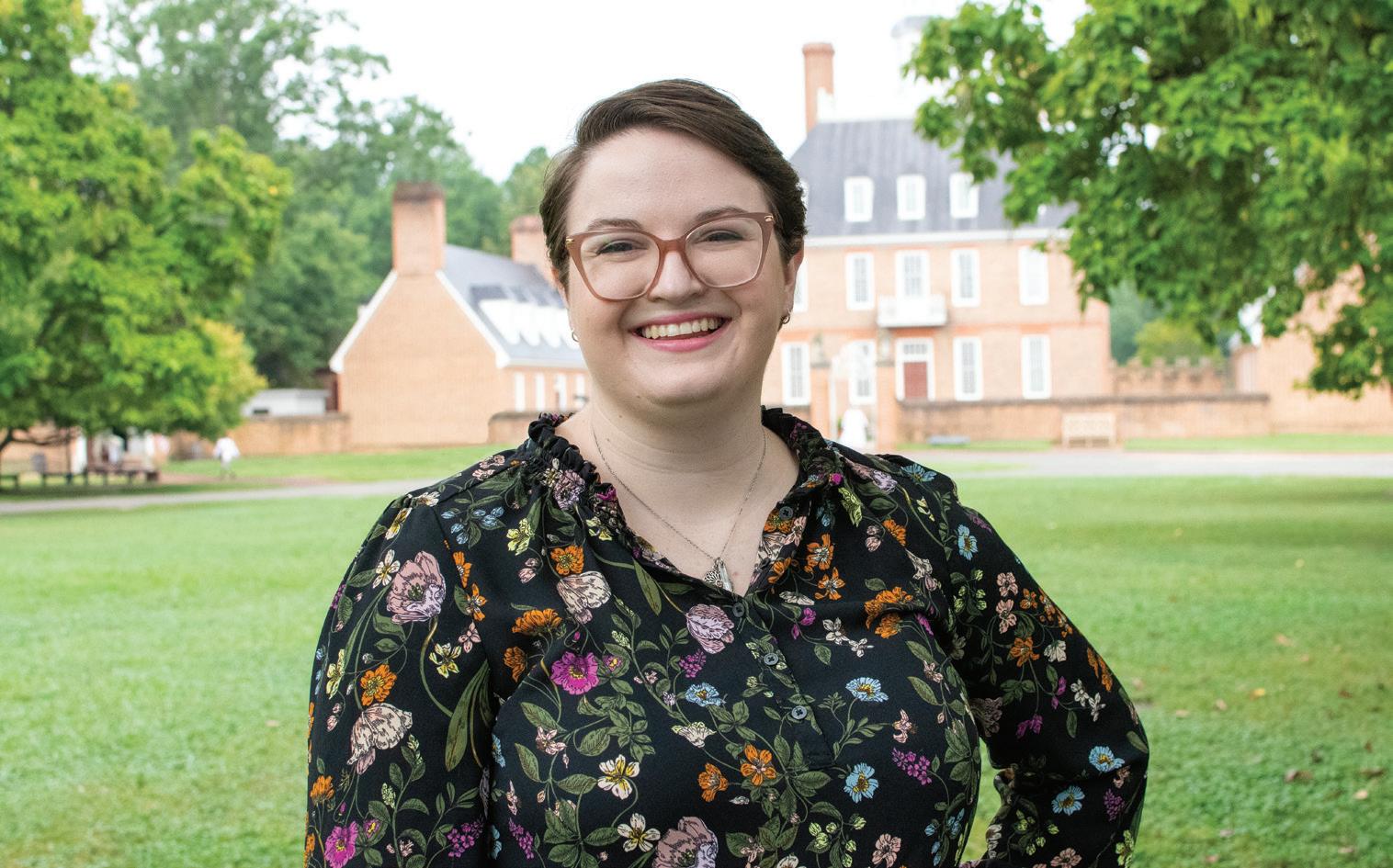
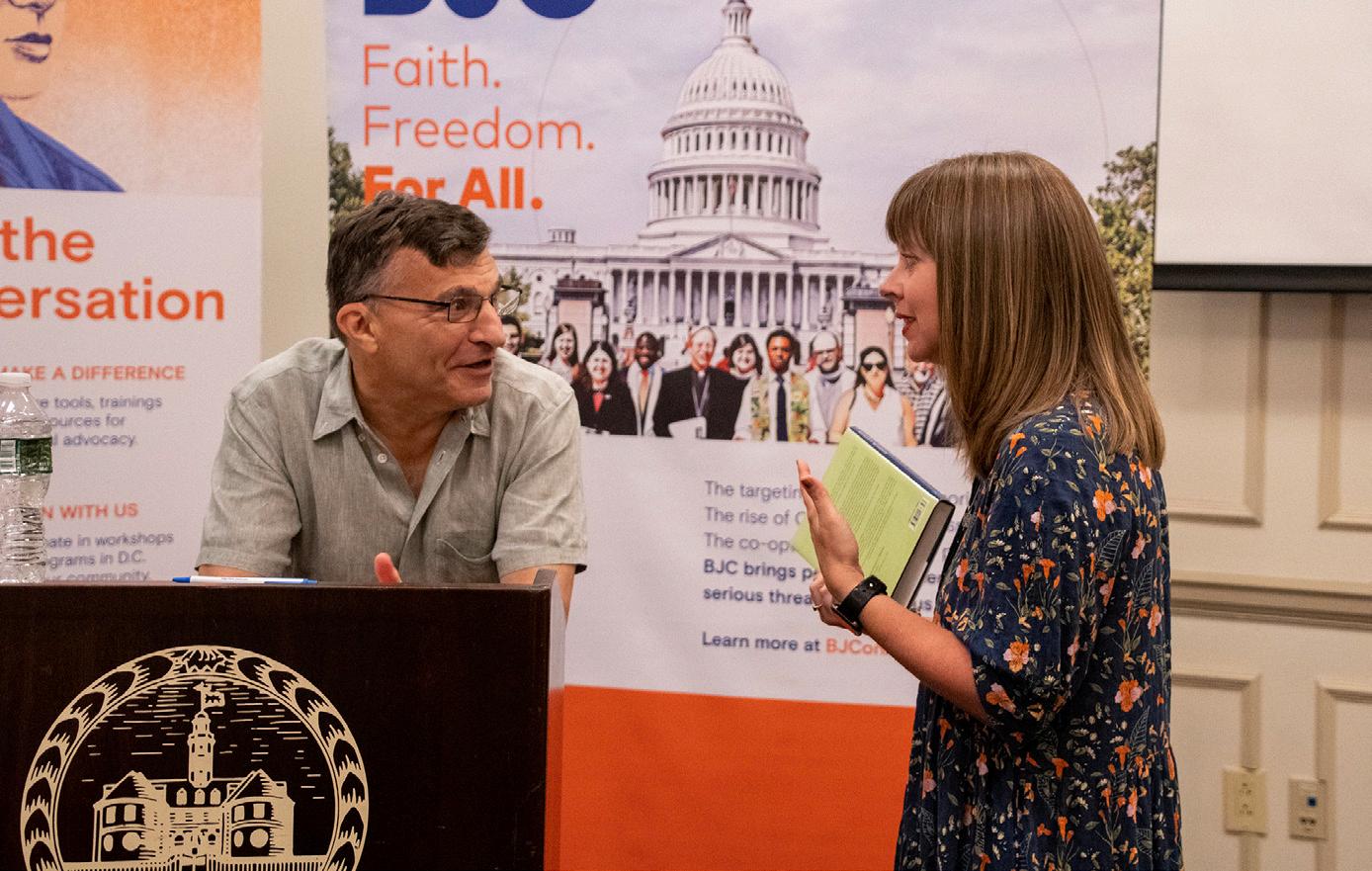 Dr. Mehmet Saracoglu Fairfax, Virginia
Dr. Mehmet Saracoglu Fairfax, Virginia
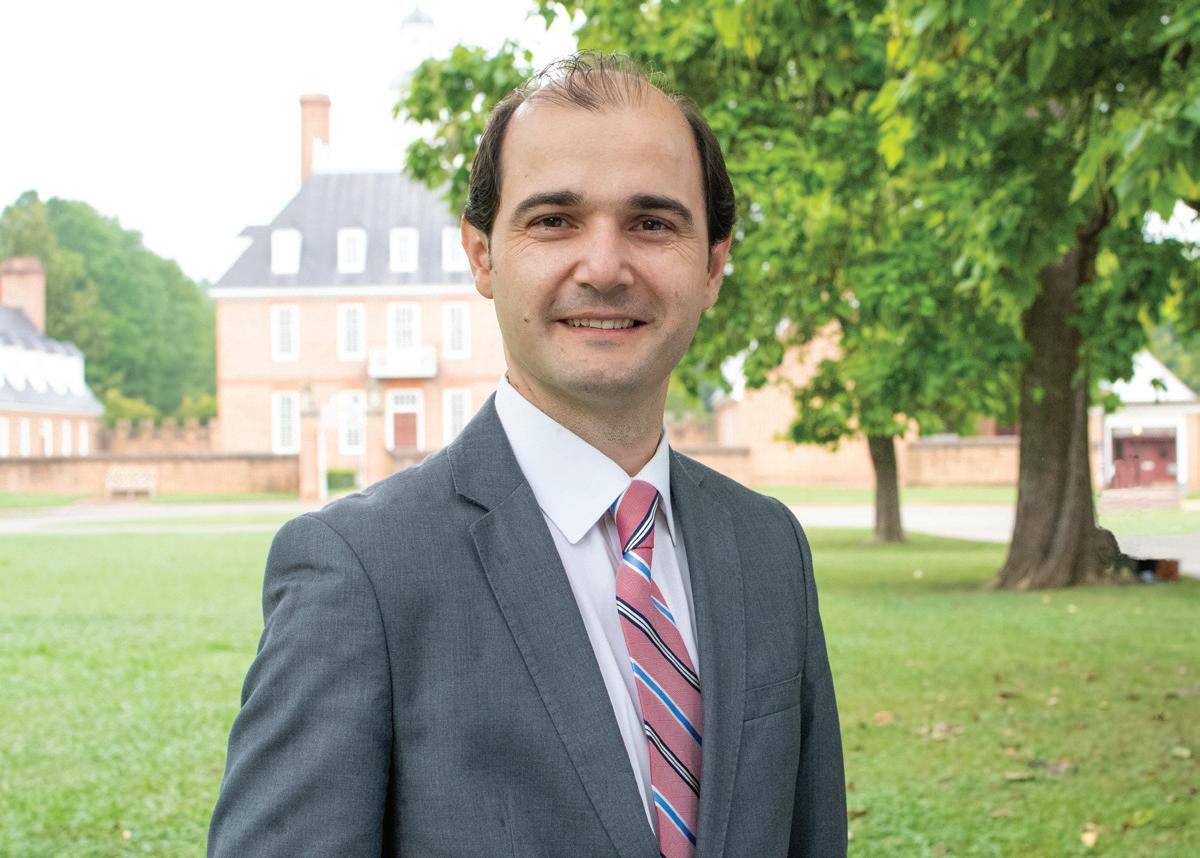
“Christian nationalism is a huge issue. It’s not just the incidents that we’ve seen, such as January 6, but it’s also everything undergirding them, such as Christian hegemony and Christian privilege. It was great to get to dive in a little deeper into those issues during the BJC Fellows Seminar.
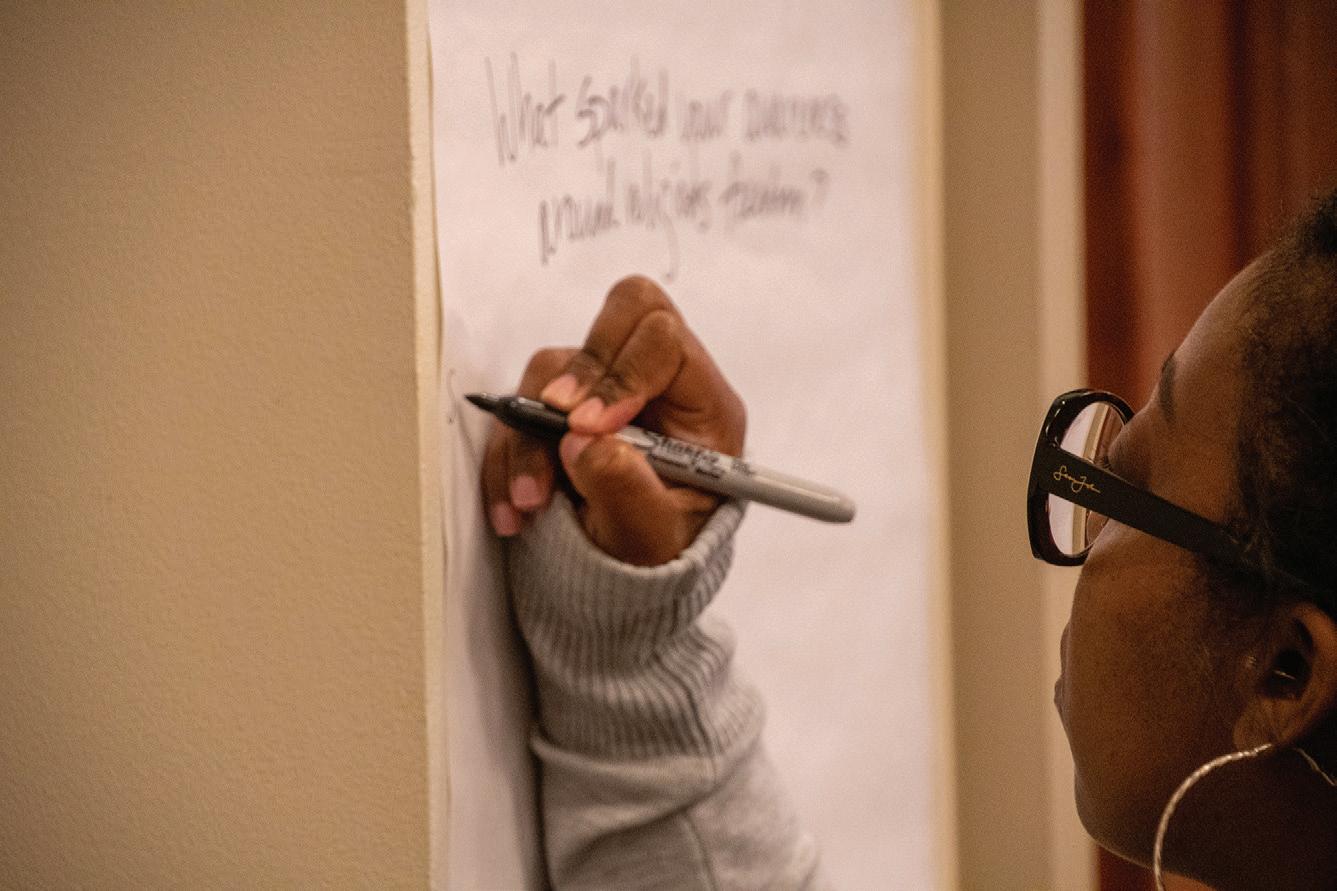

Sometimes you find out about an issue and feel that it is a big problem, but you don’t know what to do. Thanks to the Christians Against Christian Nationalism campaign, you know there is someone doing something about it. There’s a network already in place, building this incredible grassroots movement with people from all over the country and from many different denominations.”
Rev. Hannah Phillips Mollenkamp Evanston, Illinois“As I reflect on my transformative experience as a 2023 BJC Fellow, I am compelled to share how this program reignited my fervor for public education and the imperative of ensuring that history and social studies curriculum convey an unbiased historical narrative. Throughout the Seminar, I had the privilege of delving into the heart of our nation’s history, engaging with remarkable interpreters, and uncovering hidden stories that challenged the conventional narrative. ...
Armed with this newfound knowledge, I am determined to contribute to a more accurate and inclusive telling of our nation’s history.”
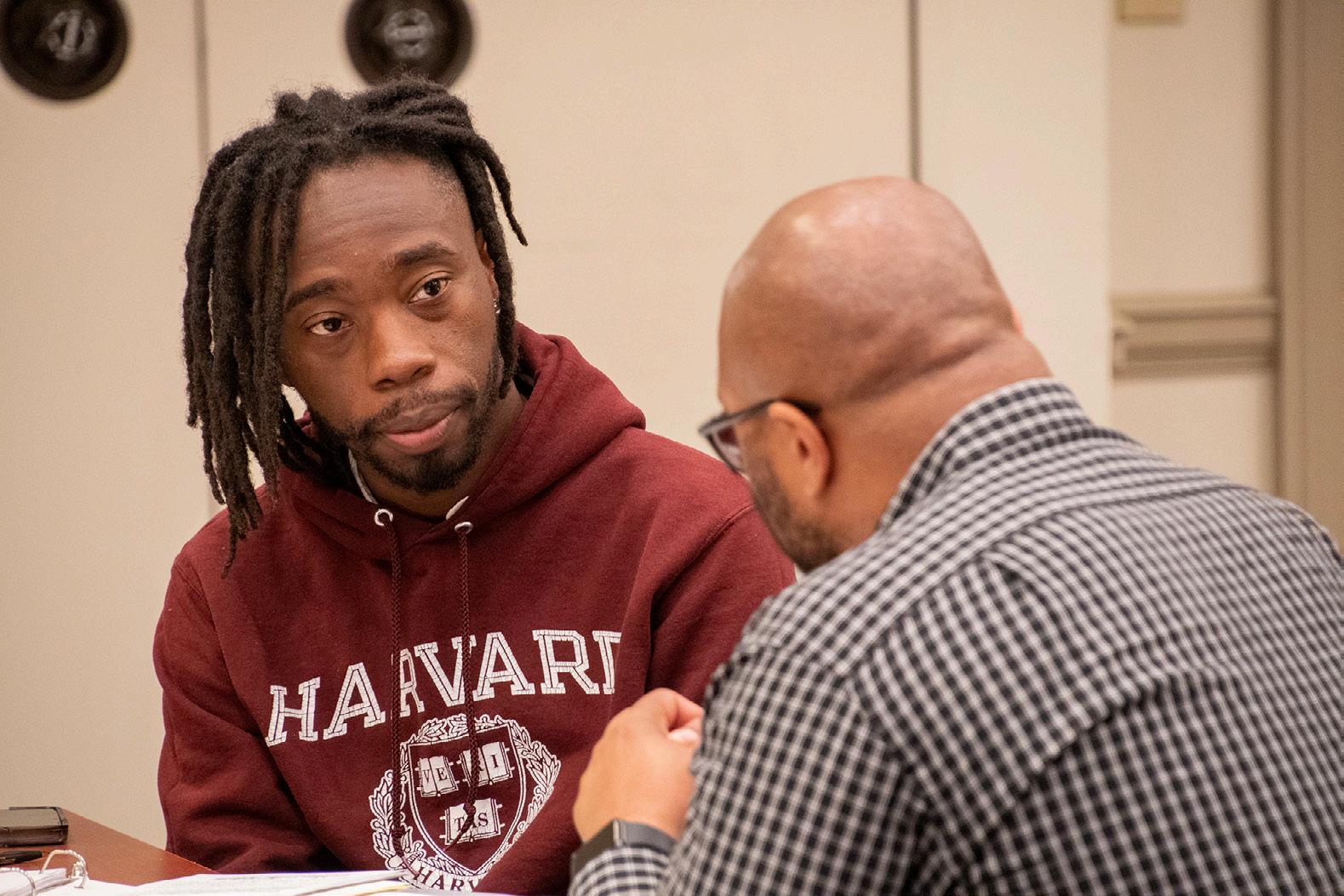 Maggie Clark Winston-Salem, North Carolina
Maggie Clark Winston-Salem, North Carolina
“George Wythe, known as Thomas Jefferson’s second father, reminded so many in the leadership structure of his time that ‘virtue is the care for your neighbors above yourself.’ This is what stuck with me after attending the 2023 BJC Fellows Seminar. Everything I learned was summed up in this statement.

I have an utter responsibility to care for my neighbors above myself, even when it seems as though the victor has already won. I have a burdensome duty to fight for those that are being silenced, disenfranchised, and marginalized. I am a global missionary, having had the opportunity to spread the good news on two continents — being an advocate for all is what I was born to do. Being a BJC Fellow has afforded me to be a greater equipped ambassador for religious freedom for those here and around the globe.”
Rev. Rachel Baltimore Lorton, Virginia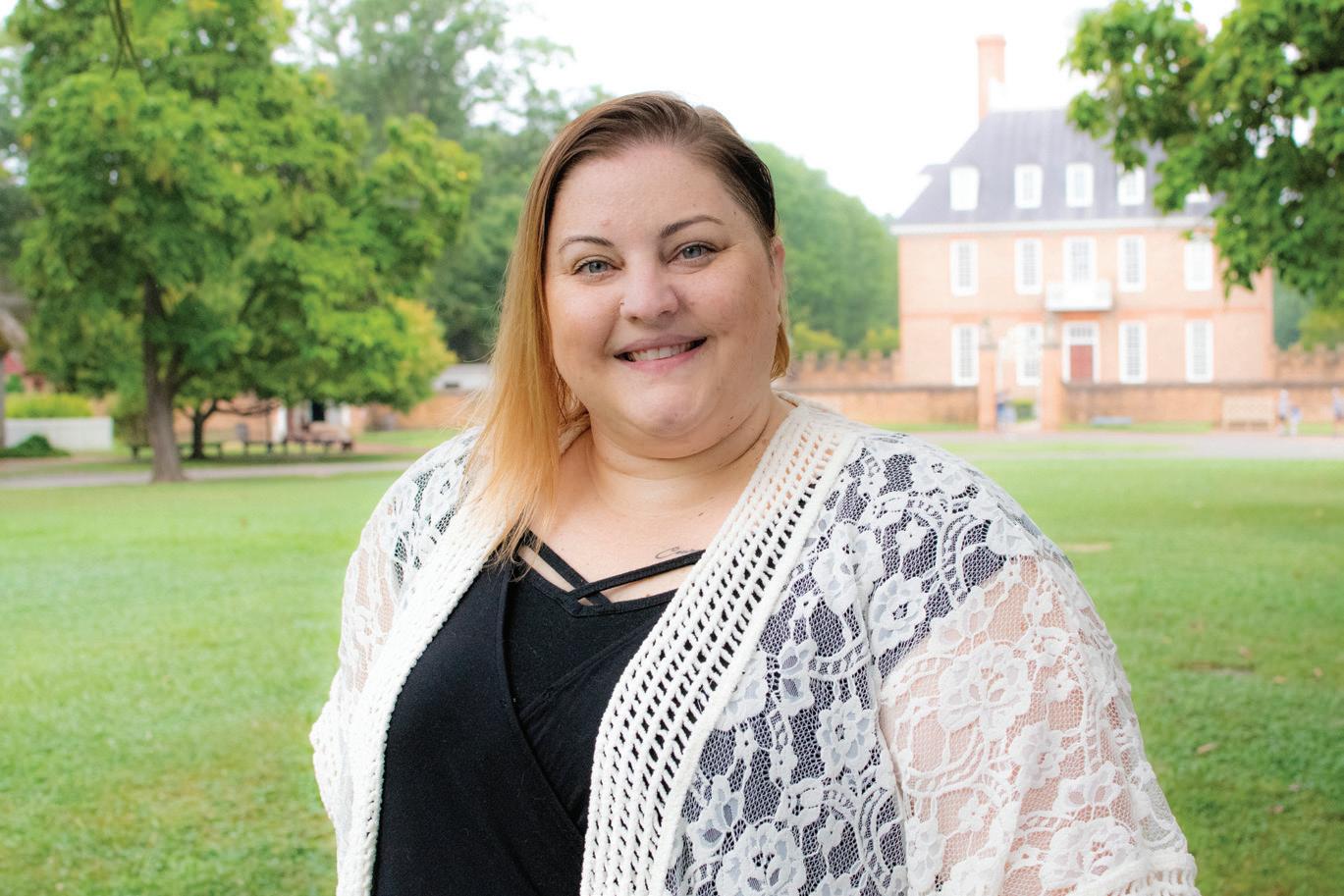
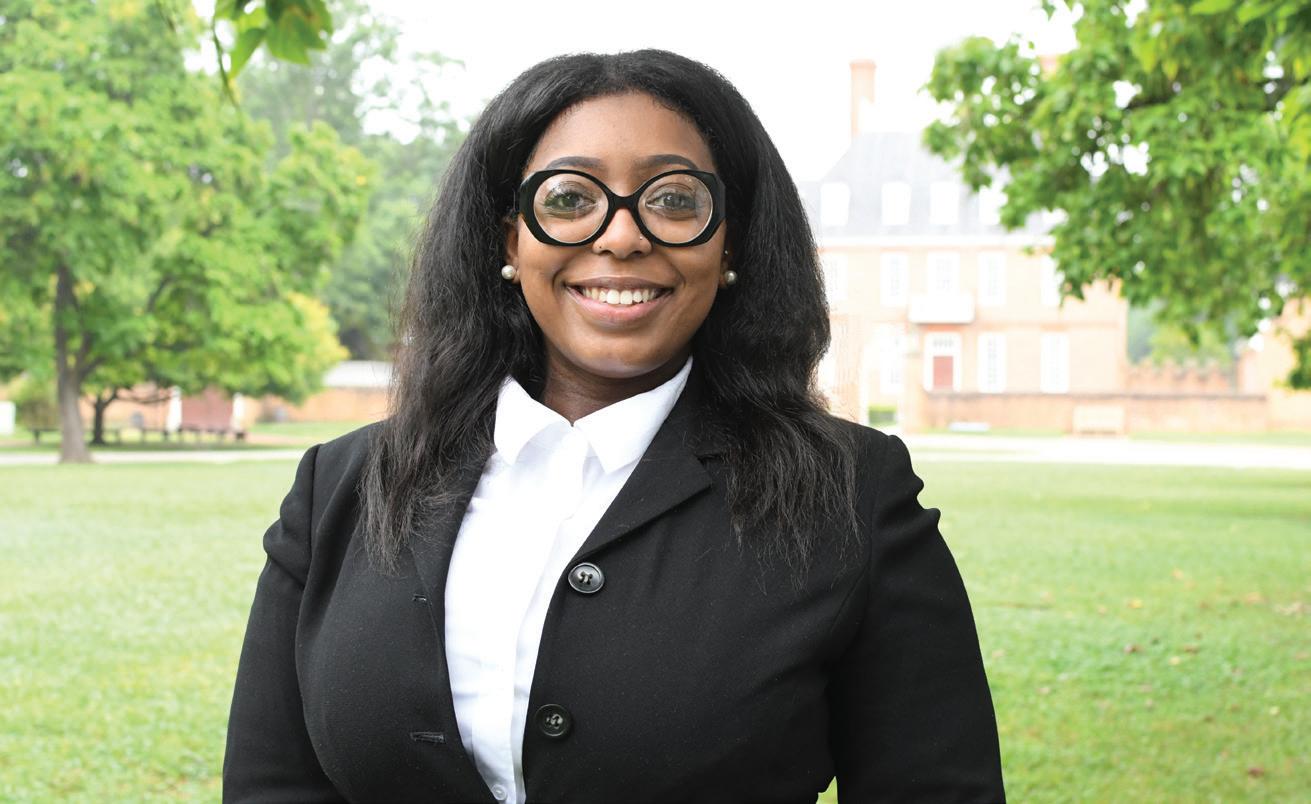
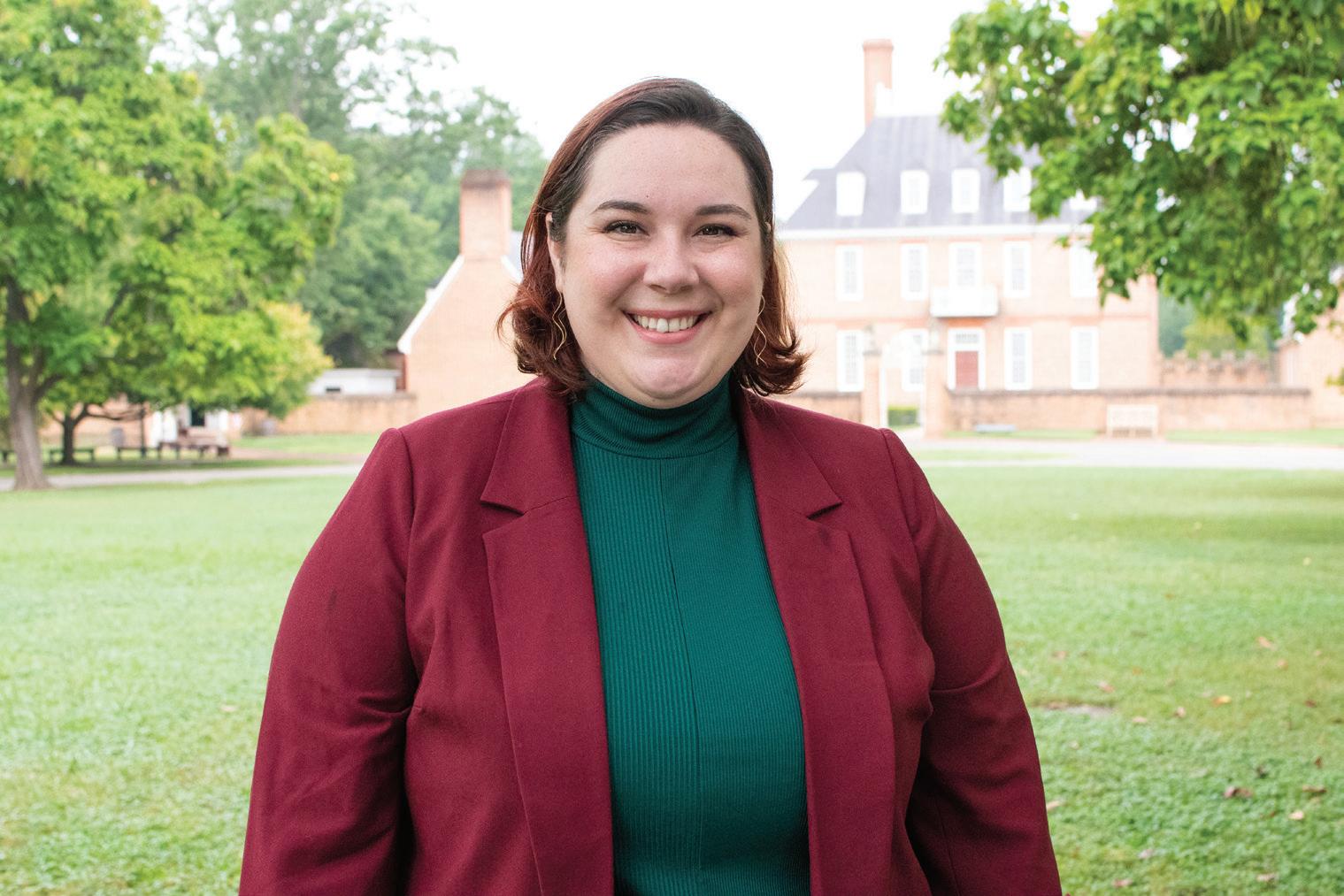
“I carried my full self into the space where I met nine other BJC Fellows and the beautiful, kind-hearted, nurturing staff at BJC. My full self includes mostly questions and a desire to not make my life about the answers. There was a time in my life where I had certainty — I knew who was right and who was wrong when it came to religion. I don’t have that certainty anymore, and I don’t need it.
Whether I label myself as Humanist, a Red-Letter Christian (see the work of Shane Claiborne), or just plain Agnostic (or maybe a mixture of all three?), I am welcome in the fight for religious liberty. Even more surprisingly — ALL are welcome — from any faith or no faith at all. We can all fight for and with each other instead of fighting against each other.”
Natalie Copeland St. Cloud, MinnesotaBJC welcomes student groups to our offices in Washington, D.C., throughout the year, and we also travel the country to share about our work defending and extending religious freedom for all. Here are a few recent visits — invite us to come to your town, or visit us!

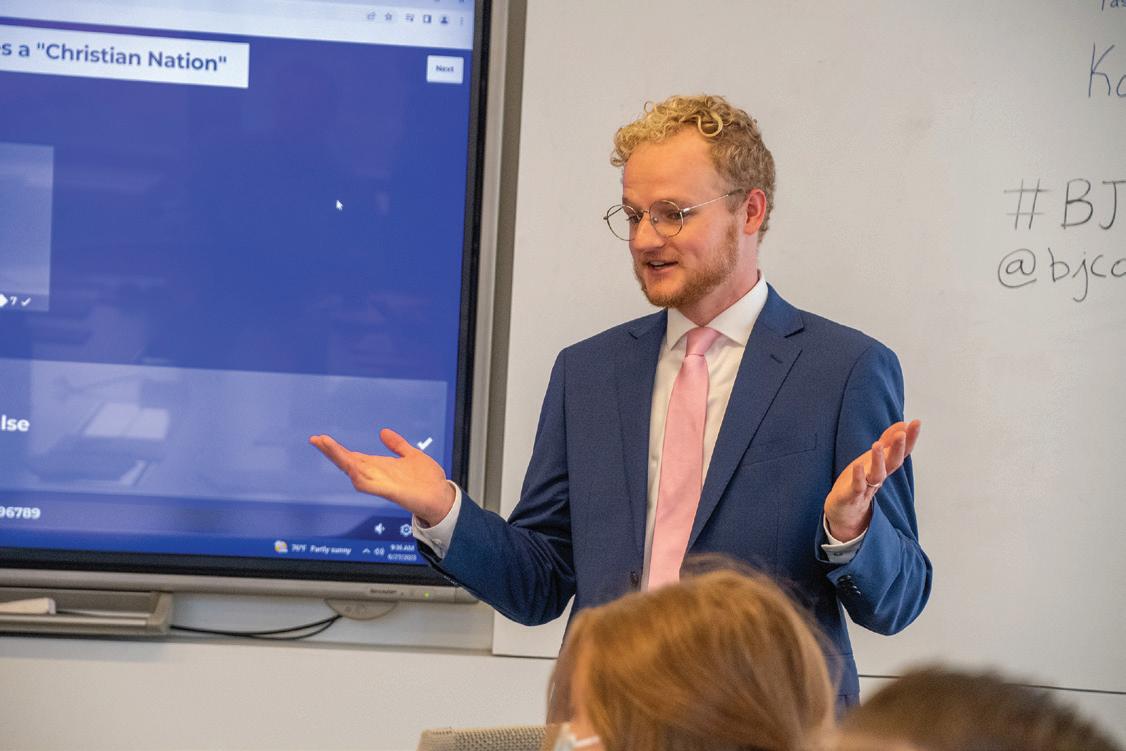
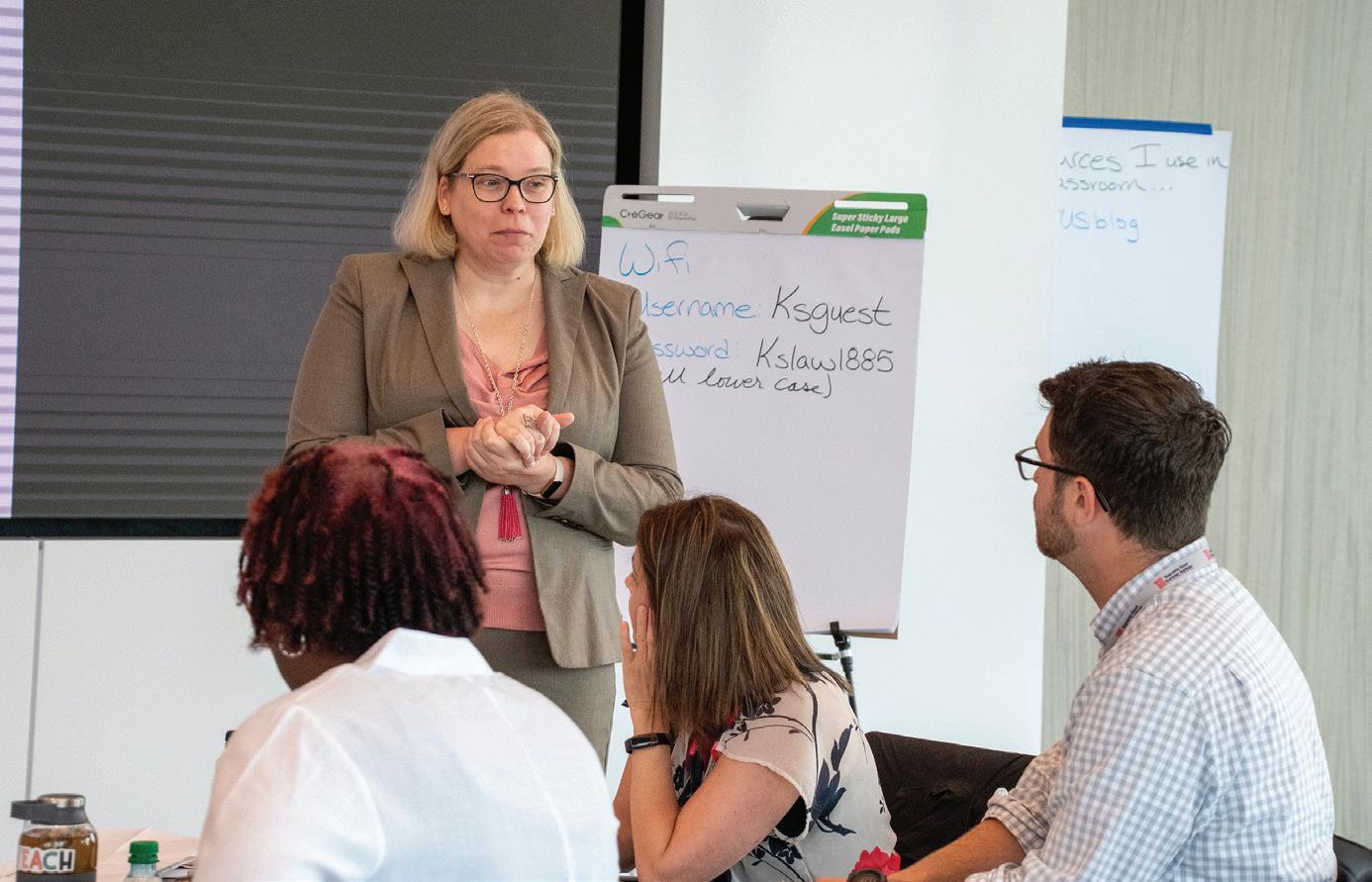
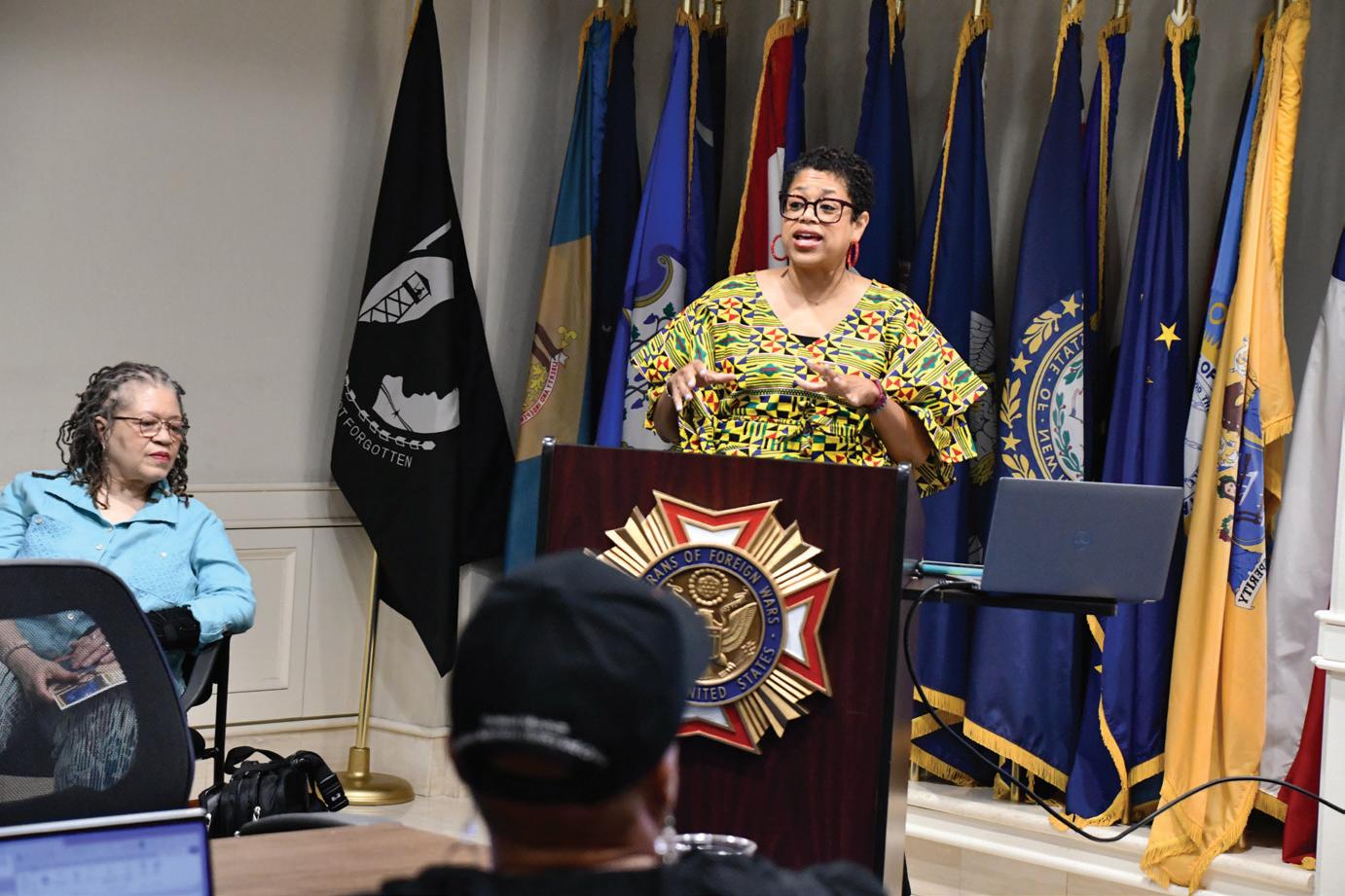
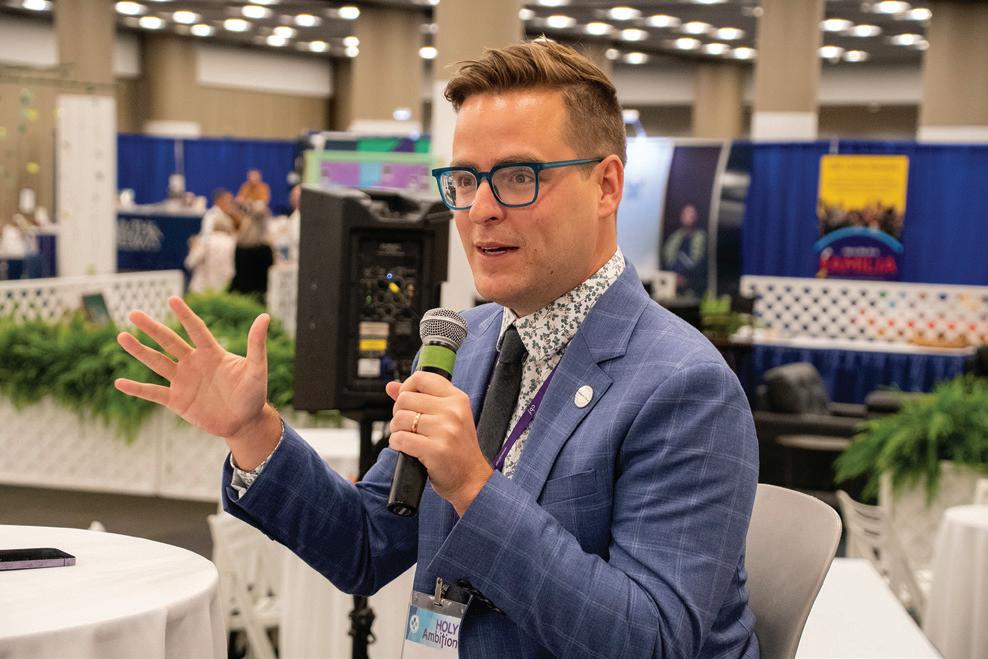
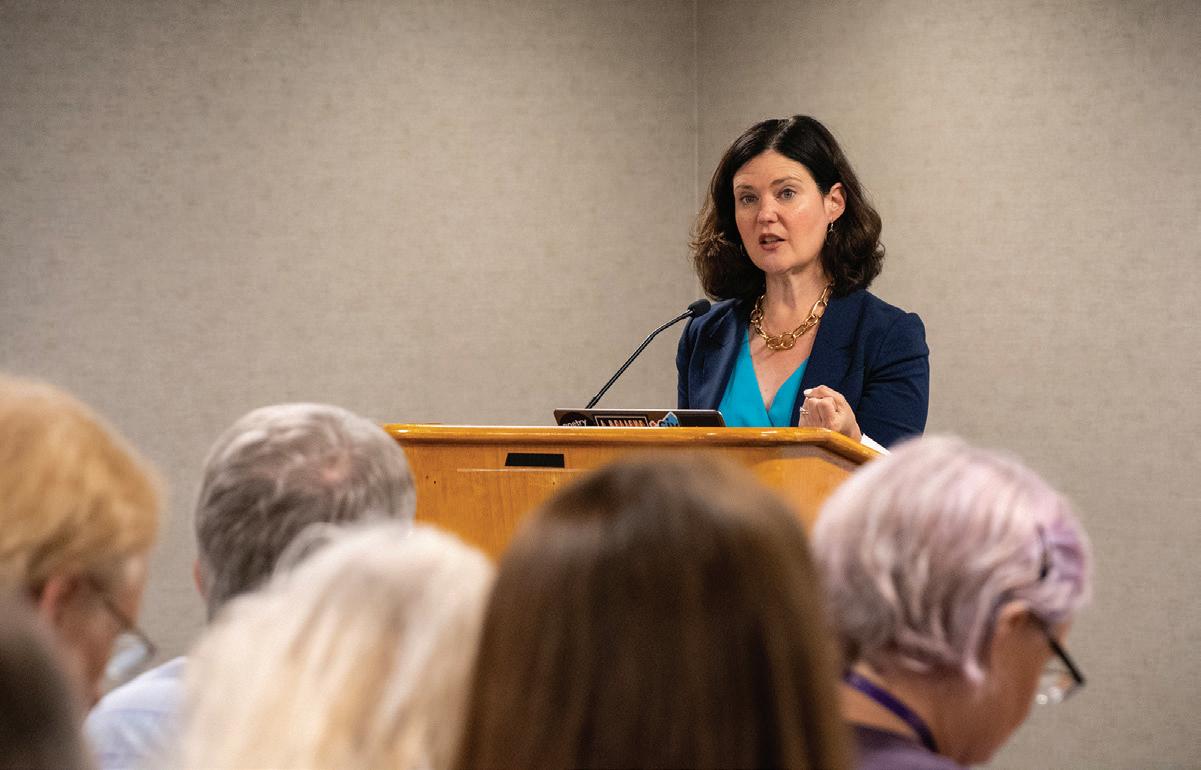
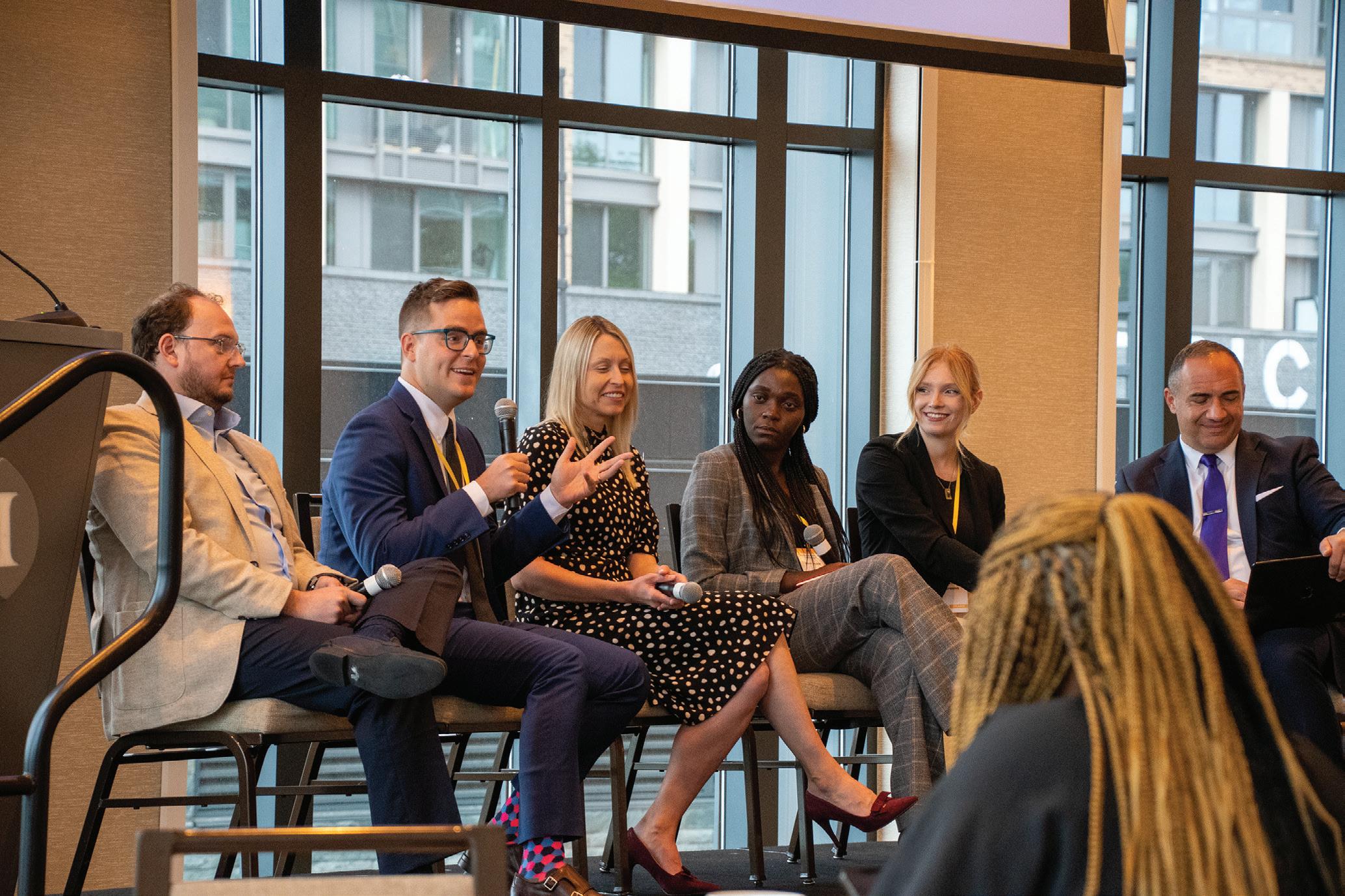
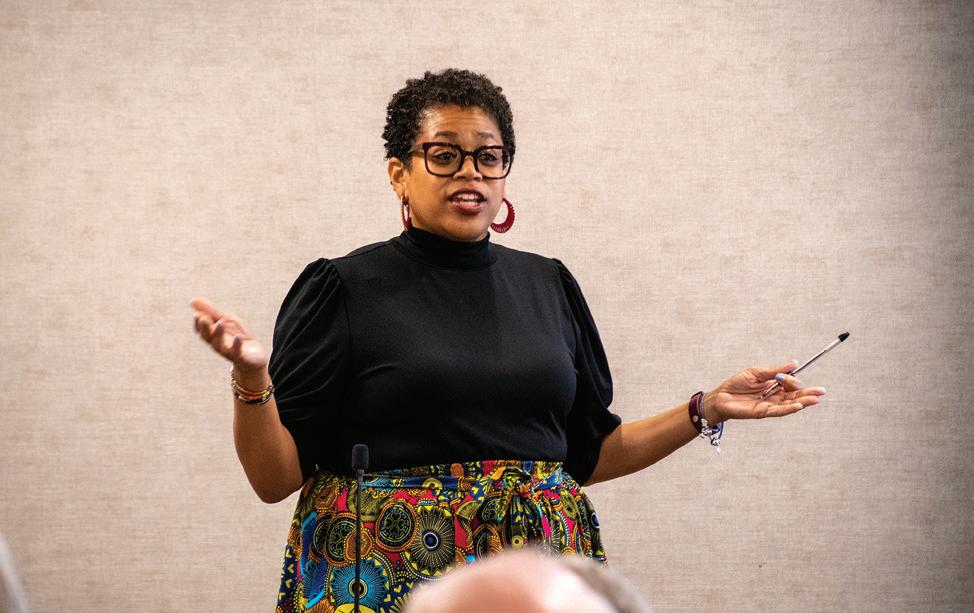
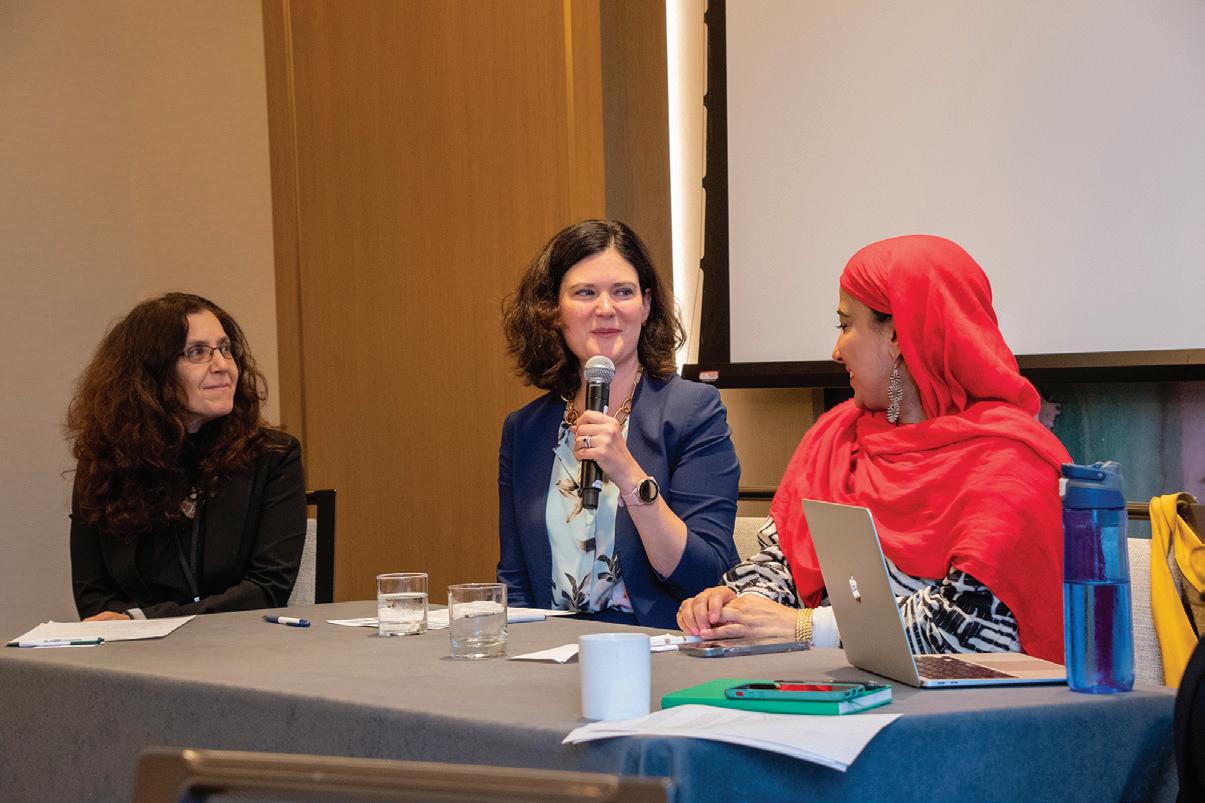
BJConline.org/invite-bjc-to-your-community
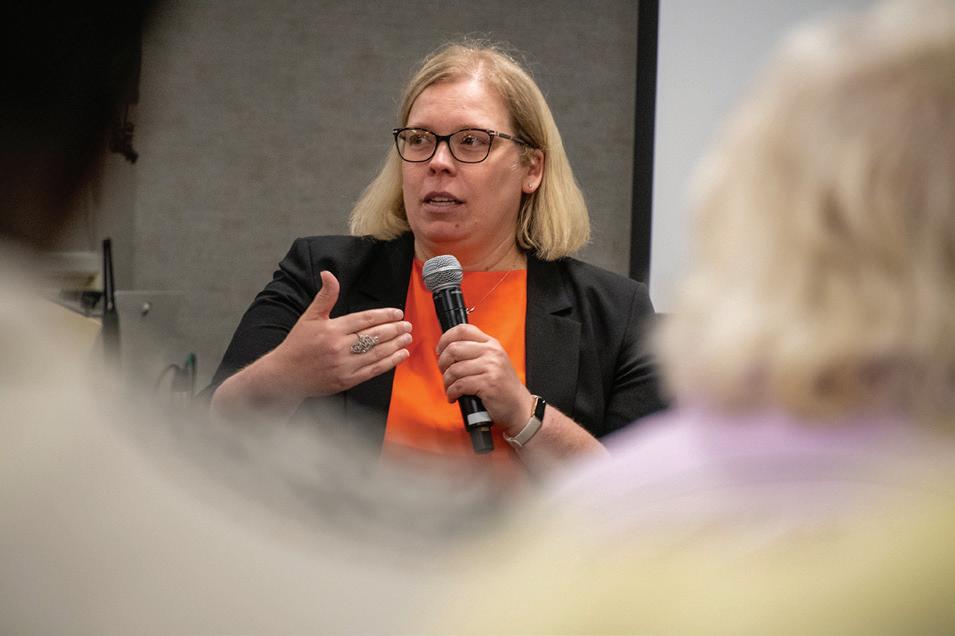
During the Progressive National Baptist Convention’s Annual Session in St. Louis, the denomination announced programs, partnerships and initiatives as it continues its work for social justice.
“We’ve come here 58 years after the Voting Rights bill was passed to say we’re going to revive it, and then nine years after the slaying of Mike Brown to say there’s another resurrection that’s about to take place,” said the Rev. Dr. Frederick Haynes III, according to reporting from Word&Way. “We’re determined to make America great — finally.” Dr. Haynes is a member of PNBC’s social justice committee and was recently named the successor to the Rev. Jesse Jackson to lead the Rainbow PUSH Coalition.
PNBC’s partnership wtih the AFL-CIO on voter mobilization continues, and it announced plans to work with Amnesty International USA to provide training and resources on gun violence and plans to partner with the Faith Leaders of Color Coalition to seek an end to the death penalty.
BJC’s Amanda Tyler attended the Annual Session and thanked PNBC for its continued leadership on social justice issues.
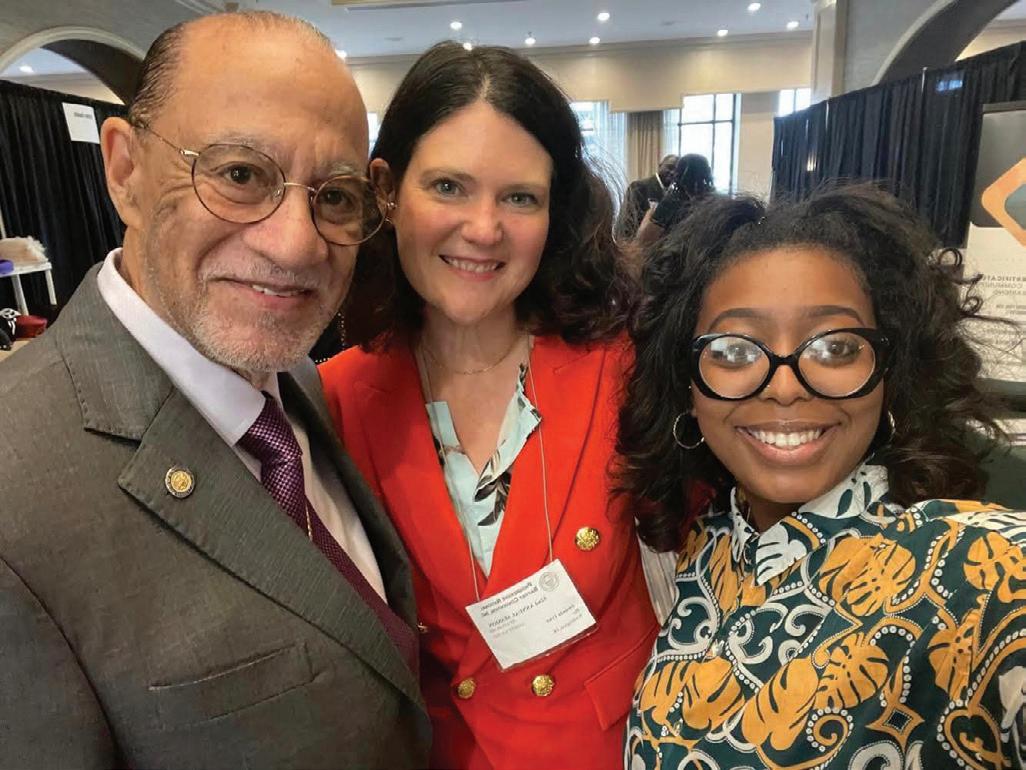
Life is a journey filled with remarkable milestones and unexpected turns. Major life changes — getting married or divorced, having children, facing illness or injury — remind us that creating a will is a crucial step to ensure that your final financial desires are honored as intended.
Surprisingly, only a third of Americans have a legally documented will. Many people don’t have a will because they haven’t prioritized the invaluable task of creating one, despite intending to do so.
Creating a will is a vital part of a comprehensive planned giving process, where you deliberately designate charitable donations in your estate or financial plans to support organizations you care about, such
as BJC. Planned giving can also involve setting up insurance distributions, trusts, charitable gift annuities or charitable remainder trusts.
If you’d like to get started with including BJC in your estate plan, we’re happy to walk you through the process. Contact Danielle Tyler, BJC’s associate director of development, at dtyler@BJConline.org to get started.
We also encourage you to let us know if you have already included a gift for BJC in your will, estate, trust or insurance documents. We would be honored to celebrate you and welcome you as a valued member of the James Dunn Legacy Circle.
We named our planned giving program after the Rev. Dr. James M. Dunn to recognize his important role
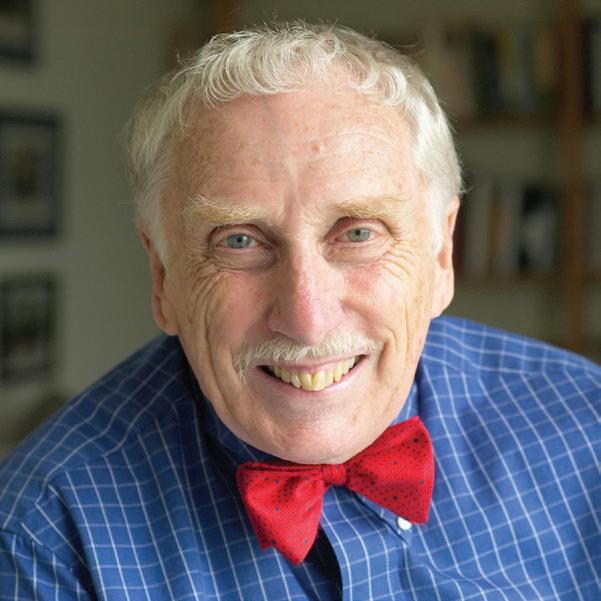
in our history. Dr. Dunn was the executive director of BJC from 1981-1999, remaining steadfast in his defense of religious liberty while leading the organization through a crucial period in Baptist life. Among many things, he’s known for his colorful turns of phrase, ubiquitous bow tie, and his steadfast dedication to ensuring faith freedom for all is protected for generations to come.
This summer, we released a new logo for the James Dunn Legacy Circle. The design embraces brightness and fluidity, symbolizing the enduring life that planned givers breathe into the work of BJC.

The Texas Legislature attacked faith freedom by letting anyone who can pass a background check be called a “chaplain” and have access to children in the state’s public schools. But, it’s not too late to stop this government overreach into spiritual matters!
Texas chaplains are leading the opposition to this misguided push for school “chaplains,” and you can help. Texas school boards now have six months to vote on whether to create a public school chaplain program.
Check out the letter on the next page — it’s an effort by chap lains to stop these programs in their tracks. If you’re a chaplain living in or educated in Texas, sign the letter. If not, share it with your friends who are. We also need people willing to show up at their local school board meetings in Texas to counter this effort and show support for faith freedom for all students.
“Public schools are not the place for religious instruction — that is best left to houses of worship, religious institutions and families,” said BJC Executive Director Amanda Tyler, who also is the parent of a third grader in a Dallas public school. “School districts must reject the misguided choice granted to them by the Texas Legislature to inject more religion and division in our schools by enlisting school chaplains.”
“Misusing the title of ‘chaplain’ to shortcut standards for public school counselors undermines religious freedom in public schools,” said the Rev. Jennifer Hawks, BJC’s associate general counsel, when this was first proposed in April. “If more counselors are needed, then the Texas Legislature should give public schools the resources to hire more counselors.”
Frequently asked questions about this work:
Can I sign? All current or former Texas chaplains may sign this letter. A “Texas chaplain” is any chaplain who is currently living in Texas or previously graduated from a Texas college or university.
Do I have to list my employer when I sign? No. We will ask for the type of chaplain work you do (military, hospital, hospice, university, etc.), but we will not ask for the name of your employer.
What will you do with the letter? The letter with the list of signers will be posted on BJC’s website and emailed to all Texas school boards. We also will encourage all signers to personally send the letter to their school board members ahead of their local school board meeting where a school chaplain program is on the agenda.
If I’m not a chaplain, what can I do to oppose this bad policy proposal? There are many ways you can be part of this effort. For example, we need people in Texas who will attend their local school board meetings and work in their community. Visit BJConline.org/publicschoolchaplains for additional resources, and you can contact our North Texas organizing team to volunteer or learn more at Texas@BJConline.org.
What if I don’t live in Texas? You can contact friends and acquaintances in Texas, sharing this with your networks. Plus, we need you to watch out for similar efforts in your state — this idea is spreading, and we need your help to stop it.

We, the undersigned chaplains, write in response to the Texas Legislature’s recent passage of SB 763, requiring school districts to vote on whether to create a paid or volunteer chaplain program to “provide support, services, and programs for students.”
Because of our training and experience, we know that chaplains are not a replacement for school counselors or safety measures in our public schools, and we urge you to reject this flawed policy option: It is harmful to our public schools and the students and families they serve.
There is no requirement in this law that the chaplains refrain from proselytizing while at schools or that they serve students from different religious backgrounds.
The law provides for chaplain salaries to be drawn from funds designated “to improve school safety and security.” Those funds are directed at – but not limited to – the roles of restorative discipline and justice practices, mental and behavioral health support, and suicide prevention, intervention, and postvention. We are deeply concerned about using chaplains in these roles to provide those services, particularly as the law does not require any specific training or qualifications.
SB 763 allows a school district to give any employee or volunteer who can pass a background check the title of “chaplain.” This is simply not enough. Professional chaplains have specific education and expertise to fulfill our role in helping others engage their own religious practices and traditions. Typically, we are required to have a graduate theological degree and be supported by an approved organization connected to our spiritual tradition. In some settings, chaplains also must have one to two years of full-time experience as a religious or spiritual leader. Many of us are ordained in our faith tradition. Additionally, board certified chaplains in health care go through a rigorous certification process, pursuing hundreds of hours of extensive training and hands-on experience.

Our extensive training empowers us to follow the lead of the individuals seeking our spiritual care without imposing our own faith tradition upon them. For example, a Jewish military chaplain will advocate that a Muslim service member be able to pray the five daily prayers while deployed. A Christian hospital chaplain will help an atheist patient explain to her family her peace of mind that there is no afterlife.
As trained chaplains, we are not qualified for the duties envisioned by SB 763. We cooperate with mental health counselors — we do not compete with them. Further, professions which help children with sensitive matters, such as therapists and police investigators, typically require special training on how to interview and treat juveniles. Few chaplains have this expertise. Finally, using the school safety allotment to pay for chaplains is wholly inappropriate. Chaplaincy programs do not train chaplains on active shooter situations or to be public safety professionals.
As trained chaplains, we strongly caution against the government assertion of authority for the spiritual development and formation of our public school children. We would never provide spiritual care to someone without their consent. And when children are involved, parental consent is necessary. Not only are chaplains serving in public schools likely to bring about conflict with the religious beliefs of parents, but chaplains serving in public schools would also amount to spiritual malpractice by the chaplains.
Government-sanctioned chaplains make sense in some settings, but not in our public schools. Many of us serve in contexts in which individuals cannot access their religious services — such as the military, a prison, or hospital — which is hardly the case for children in public school. Military members may have security or language barriers in finding a house of worship while on deployment. Incarcerated individuals are not given a “religious hall pass” to leave prison and attend the corporate worship service of their own choosing. Hospitalized patients may be too sick or far away from their congregations to engage in meaningful religious exercise.
Public school children simply do not face the barriers to religious exercise that service members, prisoners, and patients face. Parents or guardians must have the right to choose the religious leaders who will influence their children’s spiritual journey. Public schools should not interfere or alter parental decisions in the realm of religious exercise or spiritual care.
We are chaplains from a diversity of faith or ethical traditions living in or educated in Texas. We proudly serve(d) in various capacities, including as hospice, hospital, military, prison, or university chaplains.
We urge you to support religious freedom and parental rights by rejecting this harmful program to have government-approved chaplains in our public schools. We believe that a strong public school system is one in which the limited funding for safety and security of students is used to hire the most skilled professionals for those roles. We believe that families, not the government, are entrusted with their children’s spiritual development.
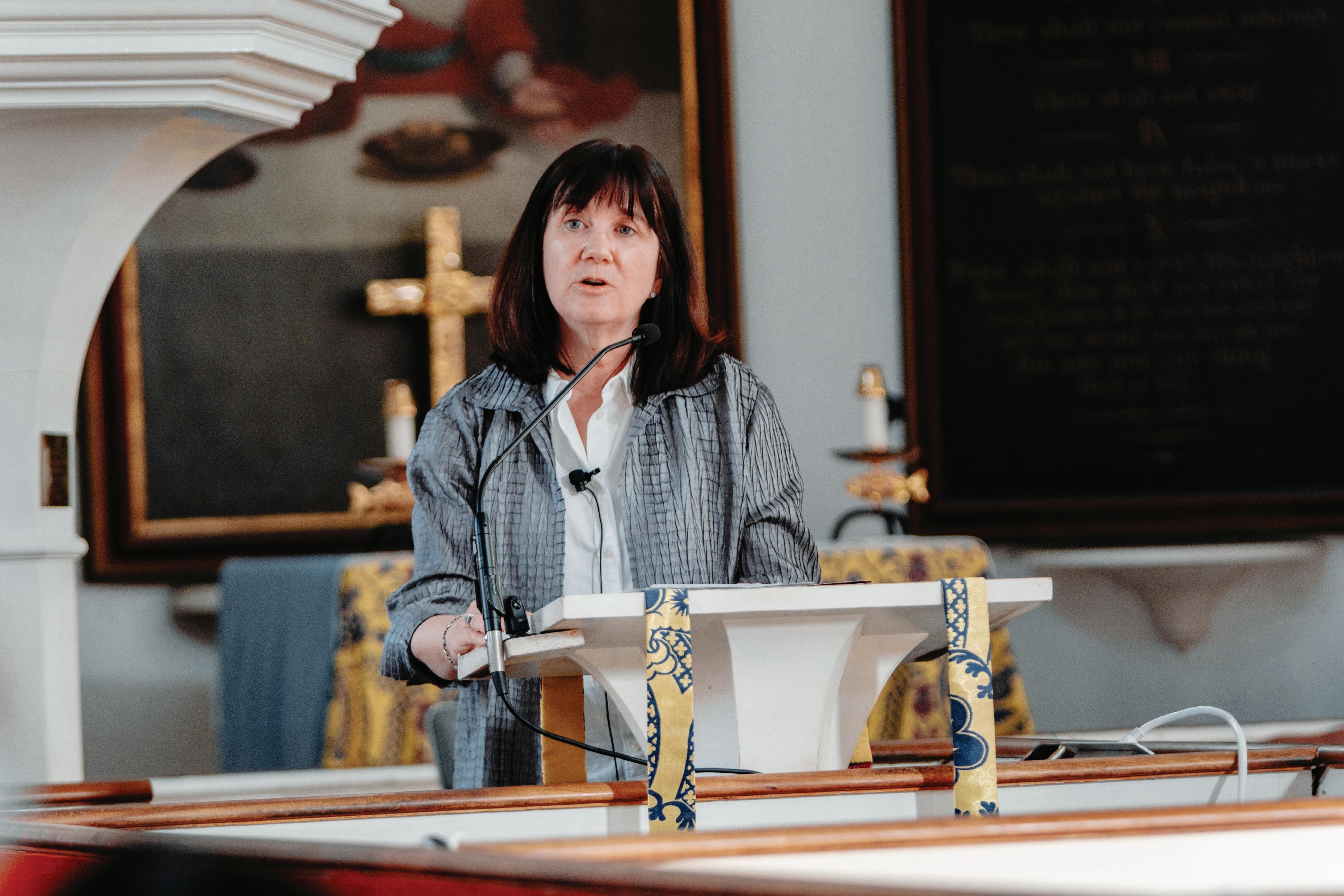
Modern Americans who espouse Christian nationalism stand apart from their predecessors who at least claimed some degree of respect for religious freedom and other values enshrined in the U.S. Constitution, a religion scholar said.
Dr. Catherine Brekus, the Charles Warren Professor of the History of Religion in America at Harvard Divinity School, gave the 2023 Walter B. and Kay W. Shurden Lecture on Religious Liberty and Separation of Church and State. The annual lecture was established in 2004 with a gift to BJC from Drs. Walter B. and Kay W. Shurden of Macon, Georgia.
This year’s lecture was presented at Old North Church in Boston, the site where Paul Revere hung two lanterns to warn of approaching British forces at the beginning of the American Revolutionary War.

“There is a significant difference between the 18th century and the present,” Dr. Brekus said. “The white Christian nationalists who supported the American Revolution were tainted by their racism and their refusal to extend political rights to women, but they defended the principle of democracy, even if it was only partially fulfilled as a positive good.”
In her lecture titled “The Myth of American ‘Chosenness,’” Dr. Brekus traced the development of white Christian nationalism from Puritan leader John Winthrop’s 1630 “city on a hill” sermon to its inspiration of the MAGA movement in the 21st century.
“Today, however, white Christian nationalists are so convinced they have been called to uphold the nation’s special covenant with God that they have been willing to dismantle the legacy of the American Revolution, including the separation of church and state, to preserve their political dominance. Many are no longer committed to the core principles of democracy. White Christian nationalists believe they must protect the nation, which they see as sacred, from the government, which they argue has become corrupt.”
She also illustrated how a grandiose and self-serving interpretation of the book of Exodus has been used to legitimize oppression since Colonial times.
“The British were the Egyptians and Native Americans were the Canaanites. Patriots justified their treatment of the original inhabitants of the land by remembering God’s biblical command
to destroy the people of Canaan,” she said.
By the 1830s, white Southerners were using the same rationale to defend chattel slavery, Dr. Brekus continued. “The Rev. Thornton Stringfellow, for example, a Baptist, reasoned that since God had shown favor to biblical patriarchs like Abraham and Isaac, who had been slave owners, then Southern planters could be confident that God favored them as well.”
The Rev. Stringfellow also proclaimed that slavery was ”full of mercy,” she said. ”If not for slavery, he argued, millions of Africans would never have been exposed to Christianity, and their souls would have been damned. American slavery was supposedly part of God’s providential plan to spread spiritual freedom around the world.”
But it was Protestantism, specifically, that the early Christian nationalists had in mind, Dr. Brekus said. “Most Americans in the 18th century were Protestants, and despite their support of religious freedom, they assumed they would always enjoy a privileged place in the republic. Even the Baptists, avid supporters of the separation of church and state, supported reading the King James Version of the Bible in public schools. In 1844, Robert Baird, a Presbyterian minister, argued that God had delayed the discovery of the new world until the era of the Protestant Reformation because of his pro-
Catherine Brekusvidential plan to transform America into a great Protestant empire.”
That worldview also motivated much of the anti-Catholic and anti-Jewish sentiment and violence of the 19th century, she continued. “Lyman Beecher, one of the most influential ministers in antebellum United States and the father of Harriet Beecher Stowe … suggested that the mass influx of Catholic immigrants, whom he compared to the locusts of Egypt, might be secretly plotting
“Even in its most progressive forms, American Christian nationalism is built on ideas that too often have been used to justify imperialism and xenophobia.”
to seize control of the United States government and to create a Catholic nation ruled by the pope.”
Jews fared little better under that conception, she said. “During the late 19th and early 20th centuries, it was common for Jews to be depicted as covetous, dishonest and un-American,” and industrialist Henry Ford famously warned about an “international cabal of Jews” intent on destroying white Protestant America.
“One of the greatest ironies in American history,” Dr. Brekus added, was that many Jews and Catholics were gradually subsumed under the “Judeo-Christian” concept that emerged in response to rising secularism in the late 19th century. “Despite their struggle for full acceptance in the United States, Catholics and Jews eventually embraced the belief in American ‘chosenness’ as their own.”
And they weren’t alone, with many marginalized groups demanding freedom as a means of fulfilling America’s “chosenness,” she said. “Throughout American history, many who have been deprived of equality, especially enslaved people and women of all races, have demanded greater rights by appealing to the nation’s God-given destiny.”
Dr. Brekus cited enslaved author and poet Phillis Wheatley, who in 1774 chided the hypocrisy of slave-holding whites who complained of slavery-by-taxation under the British. Slaves and Native Americans, she said, were actually the biblical Israelites oppressed by Americans in the role of Egyptian oppressors.
“Yet, despite her anger at Americans’ failure to live up to their own ideals, Wheatley also affirmed that ultimately God had destined the United States to be a beacon of freedom,” Dr. Brekus said. “Like white patriots, Wheatley portrayed the nation as an agent of God, but she insisted that the United States could not fulfill its God-given destiny until it abolished slavery. Later in the 19th century, both white and African American women would make a
similar argument in reference to women’s suffrage.”
The Rev. Dr. Martin Luther King Jr. also appealed to the nation’s ordination to argue for racial justice. “In contrast to the Ku Klux Klan, who argued that God wanted America to be a white nation, King insisted God had chosen America to be a model of racial reconciliation and equality,” Dr. Brekus said. “King’s language reveals that, historically, the belief in American ‘chosenness’ has been widely shared by Americans with competing visions of the nation.”
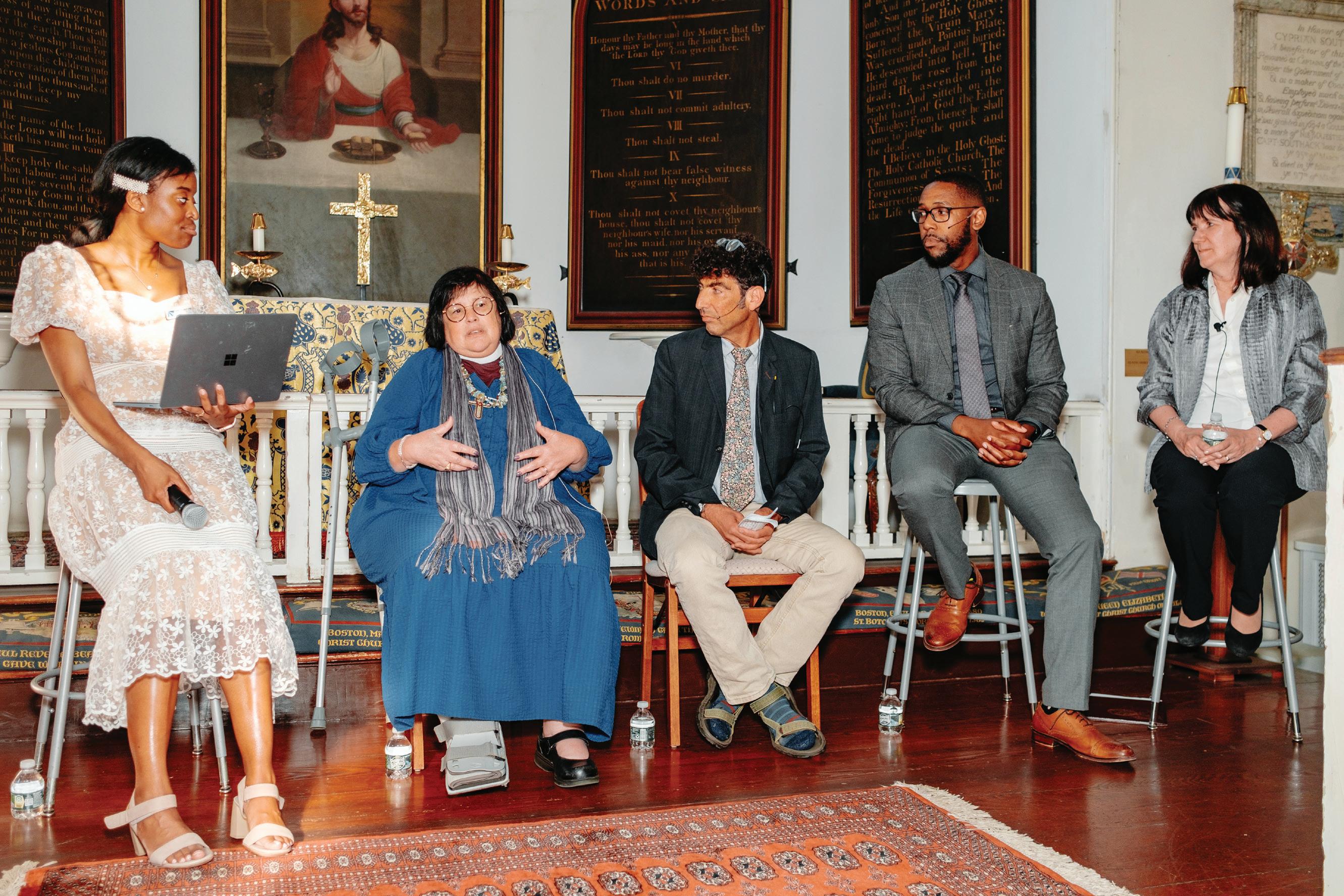
While the concept also has been used by Democratic politicians, such as former President Barack Obama, Hillary Clinton and President Joe Biden, Dr. Brekus said conservatives have been more successful rallying support for their causes around “chosenness” and the threat of God’s punishment initially raised by Winthrop.
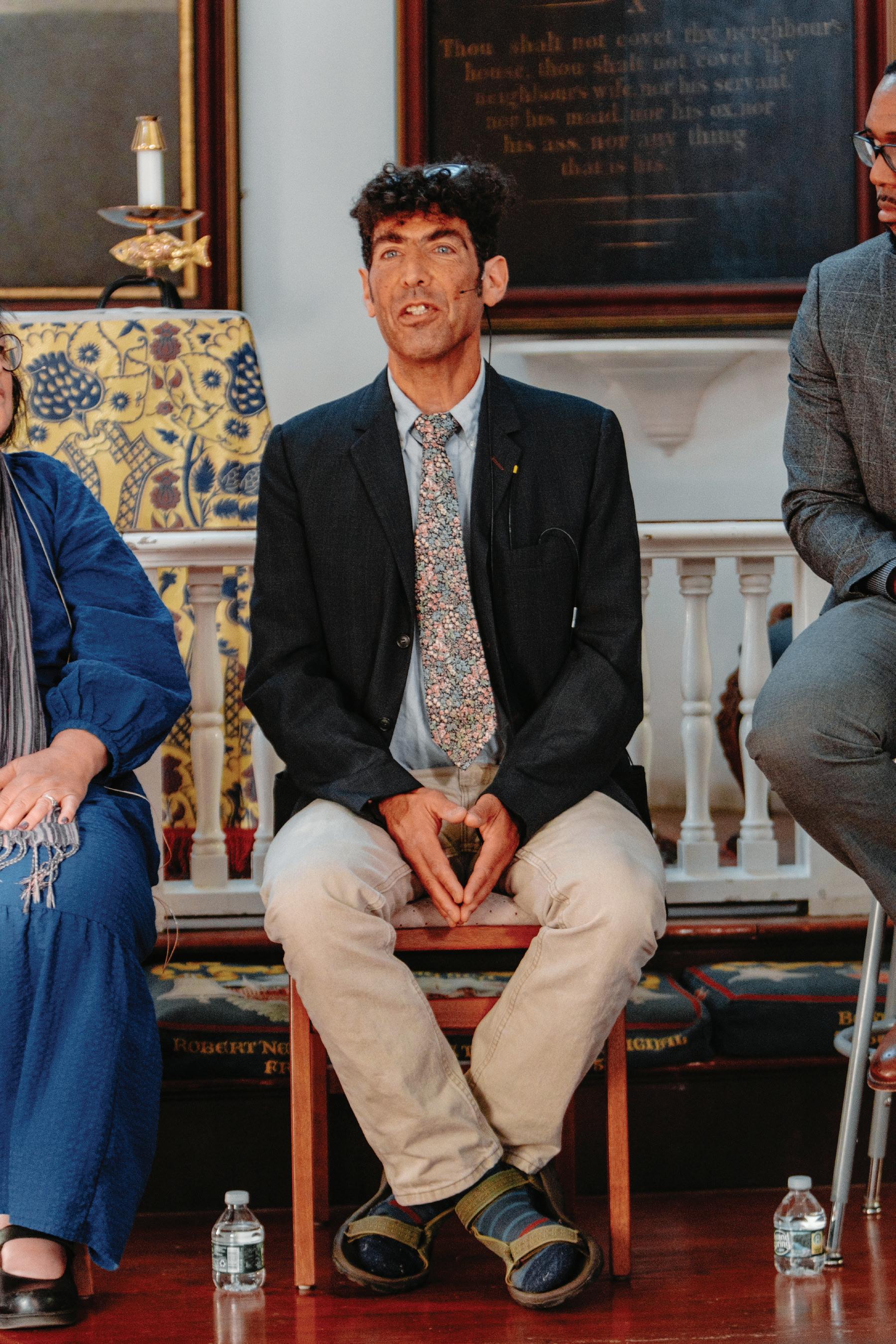
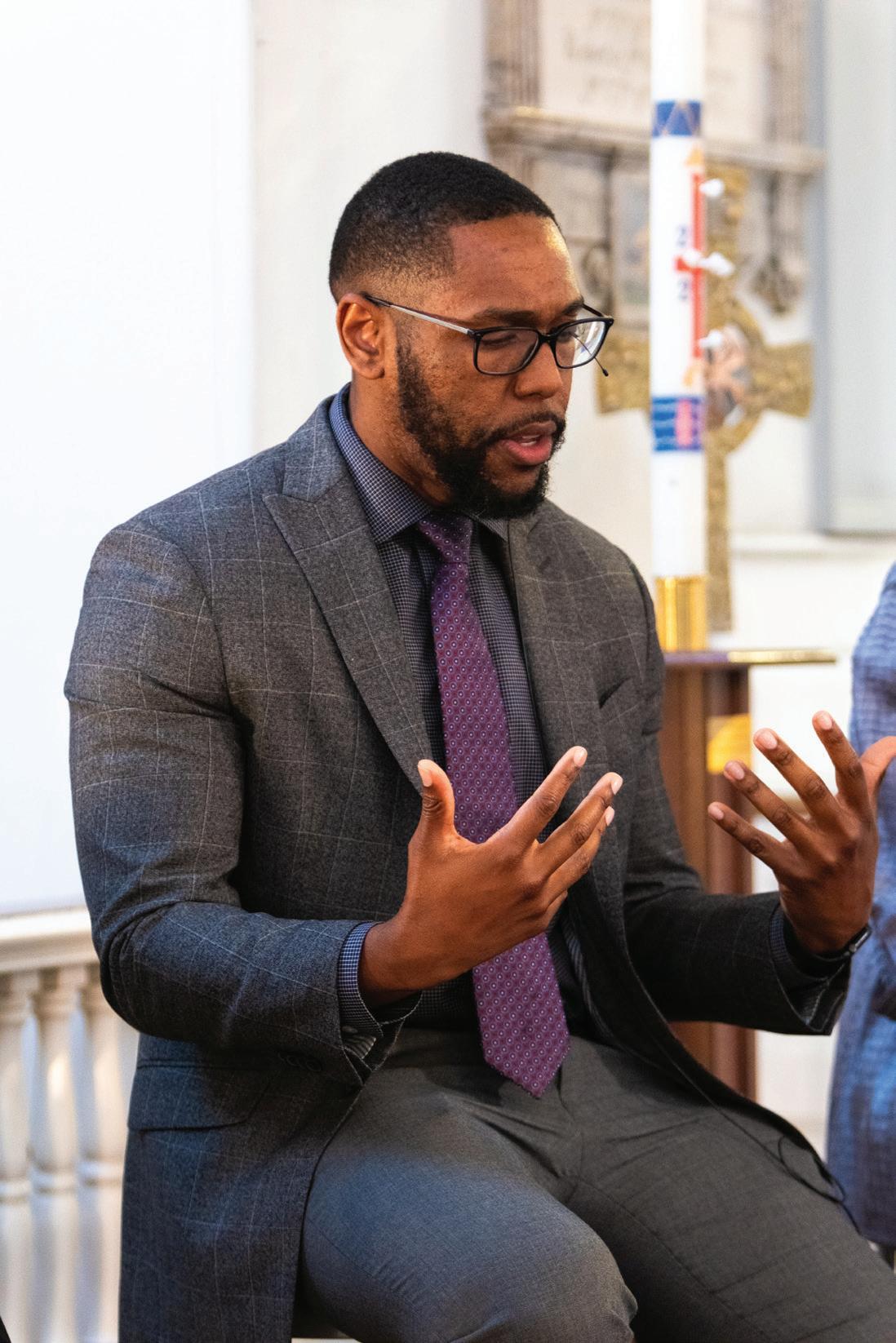
“They have spent the past 40 years claiming God is angry with the nation because of a multitude of sins: secularism, gay rights, feminism and, more recently, critical race theory and the catch-all category of ‘wokeness.’ … This is one of the reasons they have responded so fervently to the slogan ‘Make America Great Again.’”
Demographics have been another driver of Christian nationalism as the U.S. becomes decreasingly white and Christian, she said. “Underlying the anger of white Christian conservatives is a deep sense of loss.”
But the ideology isn’t much healthier when embraced by left-leaning political and religious leaders, Dr. Brekus added. “Even in its most progressive forms, American Christian nationalism is built on ideas that too often have been used to justify imperialism and xenophobia.”
Dr. Brekus concluded by urging people of faith to stand up against white Christian nationalism.
“Those of us who identify as Christian have a particular responsibility to explain to the public why white Christian nationalists do
“My skin is weaponized against me and keeps me from being able to be included within the myth, within the story of America, when the reality is you can’t even have America without my story.”
Rev. Darrell Hamilton
“If Christianity — or whatever religion we’re practicing — is disentangled from power, disentangled from tribalism, then it can begin to mean something in people’s lives.”
Dr. Michael Hoberman
not speak for us,” she said. “I have sometimes feared, and I know I’m not alone in this, that the entire Christian tradition has been sullied by its association with the ugliness we see on our landscape today.”
Following the lecture, a diverse panel of experts discussed their thoughts and personal experiences with the concept of American “chosenness.”
“It’s very hard to hear that phrase without understanding the price that was paid — not only human lives, but land, people taken by disease [and] assumed to be less than,” said the Rt. Rev. Carol Gallagher, a member of the Cherokee nation and assistant bishop of the Episcopal Diocese of Massachusetts. She emphasized how “chosenness” has never applied to all Amerians, as colonists consistently excluded Indigenous people from their conception of who was “chosen.”
The Rev. Darrell Hamilton, administrative pastor at the First Baptist Church in Jamaica Plain, Mass., echoed Bishop Gallagher’s sentiments from the perspective of a Black Christian. “The color of my skin, the mark on my skin means that I am barred from any degree of ‘chosenness,’” he said. “My skin is weaponized against me and keeps me from being able to be included within the myth, within the story of America, when the reality is you can’t even have America without my story,” he said.
Because the Black story is intrinsic to the story of America, there is an irony, the Rev. Hamilton explained, when Black people are excluded from narratives of chosenness. “When you read the story of the exodus, they are in Africa. They are not being exodused from Europe,” he said. “So you are reading the story of African people – our text is the story of African people.”
Dr. Michael Hoberman offered an additional perspective on “chosenness.” A scholar of Jewish American history and a professor at Fitchburg State University, Dr. Hoberman discussed the complicated history of being “chosen.” When it comes to the concept of “Jews as the chosen people,” he said, “to me, it’s always felt like
much more of a burden and a liability than anything else.”
In moderating the conversation, the Rev. Dr. Jaimie Crumley, the research fellow at Old North Illuminated and a member of the BJC Board, asked the panelists how Americans can better understand the severity of the threat of Christian nationalism, a political ideology that chooses one type of religion to be “favored” by the government. Despite their lamentations about the exclusionary and coercive nature of “chosenness,” the panelists maintained a hopeful outlook on humanity’s ability to challenge and transform the myth.
“We have to recognize that Christianity is perceived as power, and if people learn to question that, that would be the first step,” Dr. Hoberman noted. “If Christianity — or whatever religion we’re practicing — is disentangled from power, disentangled from tribalism, then it can begin to mean something in people’s lives.”
Bishop Gallagher affirmed Dr. Hoberman’s statement, discussing how she has prioritized promoting equality and justice within the church, including “educating folks about what it means to really be a Christian and what we both carry in our responsibility but also forwarding the conversation about liberation for all.”
And confronting the myth of American “chosenness” is not solely about Christianity, the Rev. Hamilton noted. He said that it is critical to also ask how Christianity and white supremacy have become so interwoven. In order to help his congregants begin to answer that question, he discussed how he works to “encourage people to be willing to do the self-examination of their own complicity in whiteness and white supremacy.”

To conclude the panel, Dr. Brekus reflected on the historical roots of the idea of “chosenness,” and offered a hopeful hypothetical idea of what would have happened if John Withrop’s vision of people bearing each other’s burdens as their own actually included other people on the new continent. “That is a kind of ‘chosenness’ that I think all of us would admire,” she said.
To watch the event, visit BJConline.org/ShurdenLectures
For years, media narratives have cast religious freedom advocates in an irreconcilable battle with proponents of LGBTQ rights, so it can be hard to believe there’s anyone in the middle working toward mutual respect.
But scholars, advocates and stakeholders have been carrying on a multi-year dialogue on how to legislate that very thing. In December 2022, that dialogue had its biggest moment since 2015 when Utah passed a law simultaneously protecting LGBTQ rights and religious liberty.
In December 2022, the bipartisan passage in Congress of the Respect for Marriage Act was a critical inflection point.
While previous bills hoping to recognize both religious liberty and LGBTQ nondiscrimination, such as the Fairness for All Act, faced criticism from both sides of the aisle, the Respect for Marriage Act garnered praise, including from top LGBTQ rights organizations and some conservative religious groups. The Human Rights Campaign called the Act a “historic victory.” The Church of Jesus Christ of Latter-day Saints called it “historic and commendable.” President Biden remarked at the bill’s signing that it was a “vital step toward equality, toward liberty and justice, not just for some, but for everyone.”
So what does the Act do? As its name suggests, it ensures respect for differing opinions regarding marriage — opposite-sex marriage and same-sex marriage alike. And unlike most laws Congress passes, its text is only three pages long. It begins with Congress’ official motivation in adopting the legislation. It declares that “no union is more profound than marriage,” that “diverse beliefs about the role of gender in marriage are held by reasonable and sincere people based on decent and honorable religious or philosophical premises,” and that “such people and their diverse beliefs are due proper respect.” It also declares that interracial and same-sex couples “joining in marriage deserve to have the dignity, stability and ongoing protection that marriage affords to families and children.”
In a move of solidarity with the LGBTQ community, the law takes the Defense of Marriage Act officially off the books. That law had prohibited federal recognition of same-sex marriages and permitted states to refuse to recognize same-sex marriages, and it was invalidated by the U.S. Supreme Court’s 2013 and 2015 decisions in U.S. v. Windsor and Obergefell v. Hodges.
No doubt motivated by fear that Obergefell’s constitutional right to marry could meet a similar fate as the right to an abortion did last year in Dobbs v. Jackson Women’s Health Organization, the new law then codifies interstate recognition of same-sex marriage, removing the issue from the Supreme Court’s constitutional interpretation. No state may refuse to recognize another state’s marriage of any two individuals “on the basis of sex, race, ethnicity or national origin.”
The Respect for Marriage Act focuses on religious concerns regarding marriage in a section titled “No Impact on Religious Liberty and Conscience.” That section states the act cannot “be
construed to diminish or abrogate a religious liberty or conscience protection” available under the Constitution or federal laws, such as the Religious Freedom Restoration Act. The law also assures religious organizations will not be required to serve, solemnize or celebrate a marriage with which they disagree. Tax-exempt status for organizations with certain views regarding marriage also is safeguarded.
Much of the media coverage about the Respect for Marriage Act focused on how the law would function in an alternate future where the overruling of Obergefell is not just a fear but a reality. Absent the act’s protection, same-sex marriage would, once again, be a state-by-state issue, as it was in the years leading up to the Obergefell decision. States could decide whether to recognize same-sex marriages performed in their state and those performed in other states.
But with this new law, states must recognize same-sex marriages performed in other states, even if the state itself chooses not allow those marriages within its boundaries. In the unlikely event Obergefell is overturned, this could lead to variation across states which, before Obergefell, had statutes or constitutional provisions prohibiting same-sex marriages.
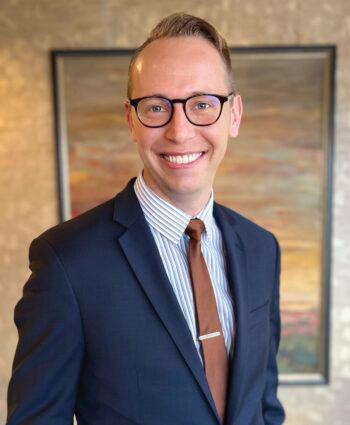
But whether in our own reality or in a post-Obergefell future, the religious liberty protections in the Respect for Marriage Act will remain. It is the first federal law to recognize as decent, honorable and deserving of legal protection the view held by some Americans that marriage should be a one-man-one-woman union and the view of other Americans that marriage may be a union of two individuals of the same sex.
Interestingly, this is another codification of Obergefell, which stated “many who deem same-sex marriage to be wrong reach that conclusion based on decent and honorable religious or philosophical premises,” a view “held in good faith by reasonable and sincere people here and throughout the world.”
As a Latter-day Saint committed to LGBTQ nondiscrimination, it is clear to me the Respect for Marriage Act is more than just messaging. As one scholar said, the act’s “important lesson is that civil rights aren’t like colliding trains, where one civil right has to take precedence over another.”
Other scholars have joined in, calling the act’s “protection of both sides in the conflict between LGBTQ equality and religious freedom” “a worthy goal, consistent with the historic purposes of civil liberties and civil rights” that “reduces human suffering,” “protects against hostile and burdensome regulation” and “reduces resentment and cultural conflict by assuaging people’s existential fears that a hostile majority will attack their most deeply held commitments.”
Let the Respect for Marriage Act be a sign of more to come for religious liberty, LGBTQ nondiscrimination and our country’s commitment to pluralism.
You can make a gift to BJC, a gift designated to the work of the BJC Center for Faith, Justice and Reconciliation or a gift directly to the Christians Against Christian Nationalism campaign. Any gift you make to a BJC-related program can be in honor of or in memory of someone.
Simply send a note with your check or specify who the gift should recognize when you give online at BJConline.org/give, BJConline.org/Center, or ChristiansAgainstChristianNationalism.org
In honor of Jennifer Hawks
By Jane W. McNeilIn honor of Alan Mason
By Lynelle S. MasonIn honor of Carter McNeese
By Joseph T. LewisIn honor of Brent Walker
By Mike M. HartonIn memory of Roy E. Edge
By Cindy L. EdgeIn memory of J. Perry Hannah
By Eunice HannahIn memory of Orba Lee and Peggy
Malone By David and Mary MaloneIn memory of Donald Meier
By Patsy MeierIn honor of
Phelps Tyler Behrendt By Bob and Lynn BehrendtIn honor of Sabrina E. Dent
By Beth McMahon Lynn BrinkleyIn honor of E. Glenn Hinson
By William L. AllenIn honor of Bill Leonard
By Georgia McKeeIn honor of Walter and Kay Shurden
By Julie and Jody LongIn honor of Valentina Valencia
By Anyra R. CanoIn memory of J. Perry
Hannah By Eunice HannahIn memory of James Dunn
By Raymond E. HigginsIn memory of Jo and Harold Hollman
By Jason CokerIn memory of Jo Hollman
By John ClarkIn memory of June McEwen
By Melanie M. DoverIn memory of Mary Stanfield
By LaTonya PennyIn honor of Donan Bennett
By James WallaceIn honor of Shirley Bouma
By Jim BuzierIn honor of Adonai Buddah
By Paul KrosnickIn honor of Fred Detweiler
By Elizabeth BurnettIn honor of Pam Durso
By Wiliam PittsIn honor of Mary Perkins
By Susan KaneIn honor of Dorothy Schleicher
By Kristofer SchleicherIn honor of Bill Stockburger
By Donna StockburgerIn memory of David Ball
By Linda DelfsIn memory of Zina Bennett
By Donna SperryIn memory of Dietrich Bonhoeffer
By Teresa BensonIn memory of Irene Long
By Renie MoretonIn memory of John and Marcia Neubert
By Richard N. MyersIn memory of victims of the Holocaust
By Michele RosenthalIn memory of John Palombo
By Charles HammersmithIn memory of Doyle Sager
By Lisa Shoemaker
In memory of Garry Schenk By Paula
SchenkIn memory of Jerome Srb
By Mary WimsattIn memory of Dot Waltz
By Robin HessIn memory of Clara Yarnelle
By Lanny MaxwellSeason 4 of the Respecting Religion podcast ended with an in-depth discussion of the Supreme Court’s two decisions that impact religious liberty: Groff v. DeJoy and 303 Creative v. Elenis. Amanda Tyler and Holly Hollman reviewed those decisions and their potential impact in the season finale.
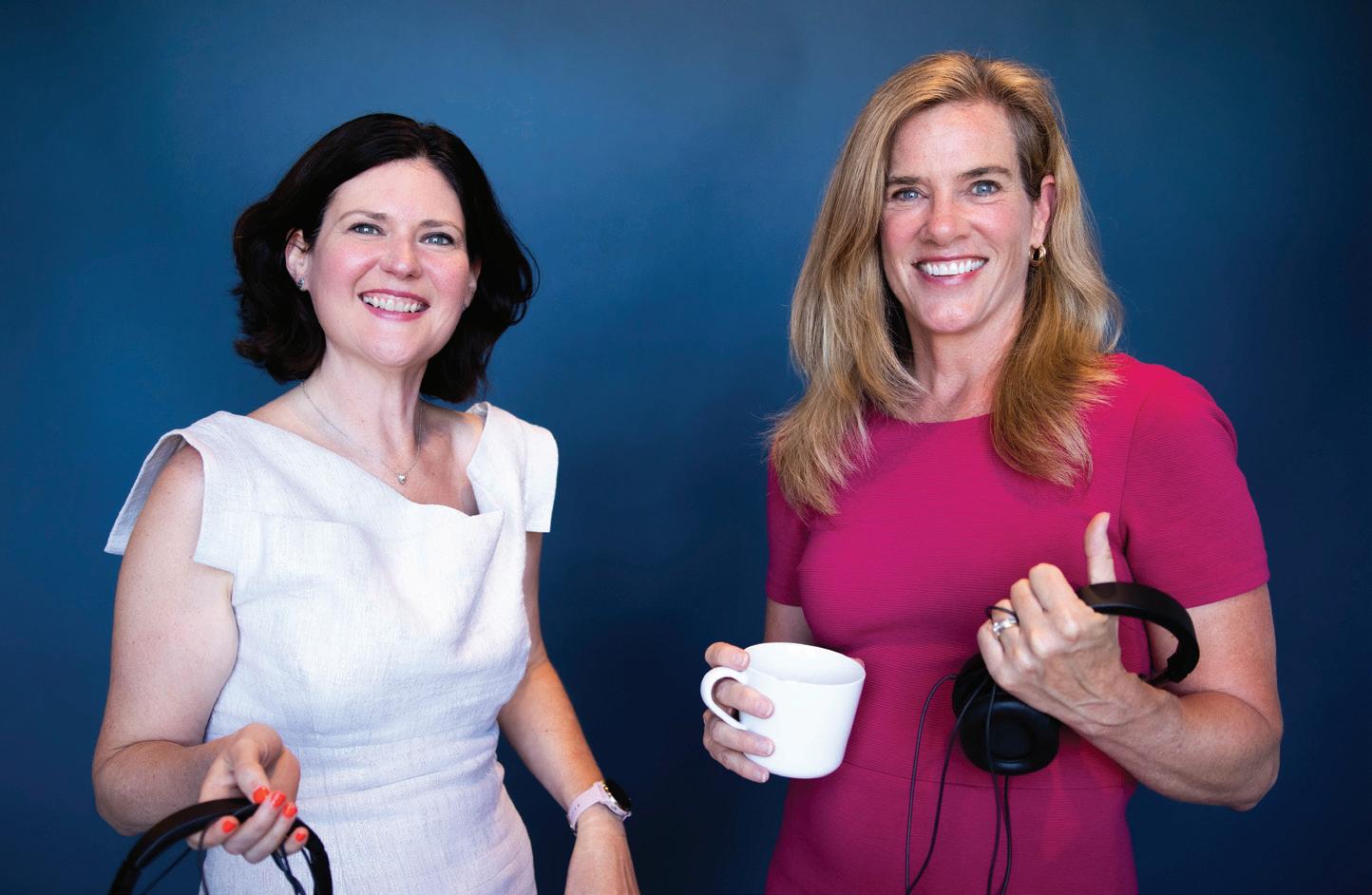
Season 4 spans 26 episodes from October 2022 through July 2023, racking up more than 35,000 downloads from listeners across the country. Now is a great time to catch up before season 5 launches this fall. Respecting Religion is available on all major podcasting providers, and we provide transcripts of each program. Go to RespectingReligion.org for a list. Here are excerpts from a few of our most-downloaded episodes.
Released June 8, 2023
AMANDA: And so I think that having new guidance and then having some teeth for compliance — just to make sure that there’s actually training and education that’s going along with the guidance and on to the ground level — I think, is a good thing.
HOLLY: And that guidance protects students in their religious expression and exercise in a specific way, starting with prayer during noninstructional time. You know, that’s what they’re thinking about. We’re not talking about disrupting the educational process. But students, of course, can pray or read the Bible in their noninstructional time. Religious organizations can come together, like other noncurricular student activity groups. But — this is quoting now — “School officials should neither encourage nor discourage participation in student-run activities based on the activities’ religious character or perspective.”
AMANDA: Right. So you can’t get extra credit for going to the prayer time before or after school, for instance.
HOLLY: That’s right. We really don’t want the teachers intervening and interfering in what is truly student-initiated activity, particularly, I think, in the realm of religious clubs. “Teachers, administrators and other school employees may not encourage or discourage private prayer or other
religious activity.” ... The guidance goes on to say that such religious activity, the kind of private religious activity that a teacher might have during a break time, may not “compel, coerce, persuade or encourage students to join in the employee’s prayer or other religious activity.” ...
I think it’s really fair and really good for religious freedom for schools to think about that and to emphasize and really understand that teachers and students have rights, but teachers are different. And as they exercise whatever personal rights they have to religious expression or exercise, they do so in a way that does not cross this line.
Another thing that I noticed was a change in the law, it says that students may bow their heads and pray to themselves before taking a test. [Laughing.]
AMANDA: Okay. I think a lot of students have already been doing that. [Laughing.] I don’t think they need the Department of Education to give them permission.
HOLLY: [Laughing.] I know. But, I guess those myths are still out there. And we always laugh, and we have the old line: As long as there are tests, there’ll be prayer in schools. And we understand that this was not a problem that had to be fixed. But I appreciate the administration just saying, let’s just say it real clearly.
Released May 18, 2023
[After playing a clip of a pastor calling for “the Holy Ghost Spirit of fire down upon the enemies that we face today”]

HOLLY: It’s really hard to hear that. We understand the variety of the ways that religion is expressed in our society and in different churches. And fortunately, it sounds nothing like any of the Christian churches that I have been a part of and that so many people that I know have been a part of and that reflect so much of the way Christianity operates in our country.
That’s a really disturbing expression of biblical language used for personal political motives and doing so with an underlying threat of violence. What did you see in the room? How were other people responding around you? We could hear some of them.
AMANDA: Well, I felt like they were answering what this religious leader — it’s hard to say that — was asking them to do. I feel for them — I’ve been asked before, How much of this is really a religious cause? How much of this is a political cause? And I’ve said, you know, I think it’s more of a political cause, using religious language for its aims.
And I still think that’s true for the leaders. But for the people in the room, I think it’s a religious cause, but I think it’s a religion of Trump and for Trump.
It’s become so merged, it’s become — so much a part of what their spiritual calling is has become this political calling that it really is a religious cause, so when people — we heard their responses, but there were also raised hands and “thank you, Jesus,” and “I’m here for you, Jesus,” and, you know, all of these things that this is — this is what they think they’re supposed to be doing.
We had a conversation, Holly, I’ll say for our listeners before we came on, you know, should we really play this. And this is fringe. This is extreme. But I think it’s important for people to understand that this is the kind of language that’s happening in these rooms and that they’re organizing in a way that is effective, violently effective — right? — but is effective and that people are galvanizing around this cause, and I think it’s important that we, in the broader culture, are understanding that and are working to provide both a counter-witness but also to be aware of how urgent the threat really is.


Released July 6, 2023
AMANDA: We looked at it, and about a quarter of the majority opinion [in 303 Creative v. Elenis] — six of the 26 pages — are directly addressing why Justice Gorsuch thinks the dissent is wrong. So I think it shows a really divided Court in this case.
HOLLY: A little defensive.
AMANDA: And some defensiveness, too. We do want to start actually with the dissent, because the dissent gives a history lesson on the development and use of public accommodation laws, and this is a case that has to do with a public accommodation law, although reading the majority opinion, you might not recognize that at first reading.
The history of public accommodation laws actually dates back to right after the Civil War and to the Civil Rights Act of 1875, and part of telling the history is telling when the Supreme Court was on the wrong side of history. And in that case, the Supreme Court found that Civil Rights Act of 1875 to be unconstitutional, and once those public accommodation statutes were repealed, the Southern states replaced them with Jim Crow laws. And it was from that period of Jim Crow then that the modern public accommodation laws had to be passed in order to protect against discrimination across a number of different protected categories.
HOLLY: So it’s not surprising that that history was not far from our minds and the minds of the justices as they addressed this claim, which is the first time we could have a constitutional exception to public accommodation laws.
AMANDA: In the case, the Court held, quote, “The First Amendment prohibits Colorado from forcing a website designer to create expressive designs speaking messages with which the designer disagrees” — end quote. And to me, Holly, that sounds like a hall-of-mirrors interpretation of what a public-accommodation-law case came up to the Court as.
HOLLY: So we should give some excerpts from the majority opinion. Justice Gorsuch opens with a statement, noting the importance of public accommodations laws. But then unfortunately he sort of twists things to no longer say that this public accommodation is about getting goods or services but about business owners and the impact on them.

... Faithful America protesters are often joined by leaders associated with groups such as Interfaith Alliance, which convened a briefing on Christian nationalism on Capitol Hill in September, or Christians Against Christian Nationalism, an effort led by Amanda Tyler of the Baptist Joint Committee for Religious Liberty, who recently condemned Christian nationalism in a testimony before Congress.
“Christian nationalism strikes at the heart of the foundational ideas of what religious freedom means and how it’s protected in this country, and that is with the institution of separation of church and state,” Tyler told the House Oversight Subcommittee on Civil Rights and Civil Liberties in December.
Tyler and others have also partnered with groups such as Americans United for Separation of Church and State and the Freedom From Religion Foundation, with the BJC and FFRF producing a joint report on the role Christian nationalism played in the Jan. 6 attack. ...

.... SEIGLER: Tribal activists from Nevada to Idaho to Arizona are asserting mining projects would desecrate their sacred sites on ancestral lands. In an Arizona case, also on appeal before the 9th Circuit here, the San Carlos Apache Tribe and others allege a copper mine would violate the First Amendment, raising the question, can a freedom of religion claim actually stop a big project?
HOLLY HOLLMAN: Historically, the court has recognized that the Constitution protects religions that treat particular physical sites as sacred.
SIEGLER: Attorney Holly Hollman is with the Baptist Joint Committee for Religious Liberty. She says there are legal gray areas when it comes to who gets to claim violations of religious liberty and how broadly.
HOLLMAN: But that doesn’t take away from the idea that people should be aware that this land has particular significance for Native Americans that we don’t normally think about when you think about religious liberty in America as applied to the majority. ...
... There’s already a national ecumenical campaign, Christians Against Christian Nationalism, launched in 2019 by the Baptist Joint Committee and its 15 member networks. The organization’s executive director, Amanda Tyler, has testified before Congress about the links between Christian nationalism and white supremacist threats.
I spoke with the BJC’s Guthrie Graves-Fitzsimmons, a gay, married Baptist from Houston and the author of Just Faith: Reclaiming Progressive Christianity (2020). He said the BJC campaign takes a bigtent, pluralistic approach to constitutional religious freedom, partnering with both faith-based and secular groups, including the Freedom From Religion Foundation. It recently joined Faithful America, a Christian social justice group, in following the Christian nationalist ReAwaken America Tour around the country and working with local Christians at tour stops to provide opposing voices in media coverage. ...
Most Christian leaders and churches believe that part of their mission is to speak out about issues of concern in their communities. But some struggle when confronted with questions about the relationship between personal faith and public policy. What about the separation of church and state?
As a constitutional lawyer and Baptist leader, I’m often asked how religious leaders can best influence policy issues, participate in public debates and respect our country’s commitment to religious freedom for all. These are good questions that deserve careful consideration and call for individual discernment. Advocating for the common good can have a profound impact on one’s community. A few guideposts can alleviate many worries that stand in the way of faithful leadership. ...
ANA ROCHÉ is the executive assistant at BJC. She provides administrative and operational support to the executive director, Amanda Tyler.
Originally from Brooklyn, New York, Roché is a 2022 graduate of Brooklyn College, where she majored in philosophy with a concentration in law. She has a strong passion and interest in Afro-Caribbean philosophy and research, dedicating time to host forums that open conversations on new theories.
Prior to joining the BJC staff, Roché worked in entertainment and intellectual property law. During high school, she completed a legal internship with the Metropolitan Transit Authority in New York City. You can contact her at arocher@BJConline.org.



BJC Executive Director Amanda Tyler is writing a book titled How to End Christian Nationalism, which will be published by Broadleaf Books in November 2024. Broadleaf Books is an imprint of 1517 Media, the official publishing house of the Evangelical Lutheran Church in America.
The book explores the key concepts and history of BJC’s Christians Against Christian Nationalism campaign. It will include stories of how Christians are defending the separation of church and state, and it will share concrete tips about ways to defend faith freedom for all people in local communities. Tyler interviewed diverse leaders across the country to include unique perspectives in the book. We will be sharing much more about the book in future editions of this magazine.



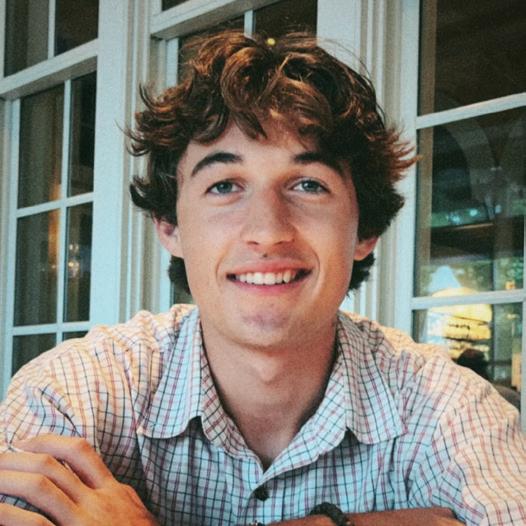
We are excited to announce the winners of BJC’s 2023 Religious Liberty Essay Scholarship Contest. High school juniors and seniors could enter by writing an essay in the form of a letter addressed to their member of Congress about the importance of protecting sacred land.
Our grand prize winner is Madilynn Hickman from Colbert, Washington, for her essay titled “The Sacred Places.” Her winning essay told the powerful story of the Snoqualmie Indian Tribe, a sovereign tribal nation whose sacred places have been desecrated by industrial development.
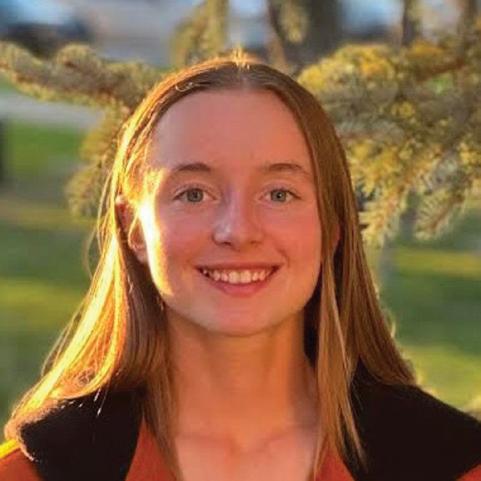
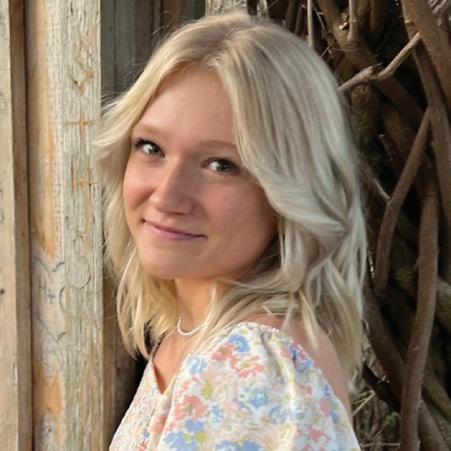
“We have seen what happened to the Snoqualmie Tribe and how an ignorance of cherished religious rights has infringed on their spiritual liberties,” she wrote.
Hickman also urged her representative to preserve and protect the sacred places of all Indigenous people. “If we are to uphold America’s value for personal religion, we cannot allow an entire nation’s sacred places to be plowed over.”
Frances Hudson of Frederick, Colorado, took home the second prize with her essay titled “Religious Freedom: The First Amendment Applies to All.”
Our third prize winner is Viktor James Povozhaev from Willoughby Hills, Ohio, for his essay “Preserving Sacred Land: A Moral Imperative for Protecting the Beliefs of Indigenous Peoples.”
All three of these students received scholarship money to further their education, with scholarship prizes ranging from $2,000 to $500. Details about our next contest will be released in the future.
200 Maryland Ave., N.E. Suite 301
Washington, D.C. 20002
202.544.4226
BJC@BJConline.org
BJConline.org
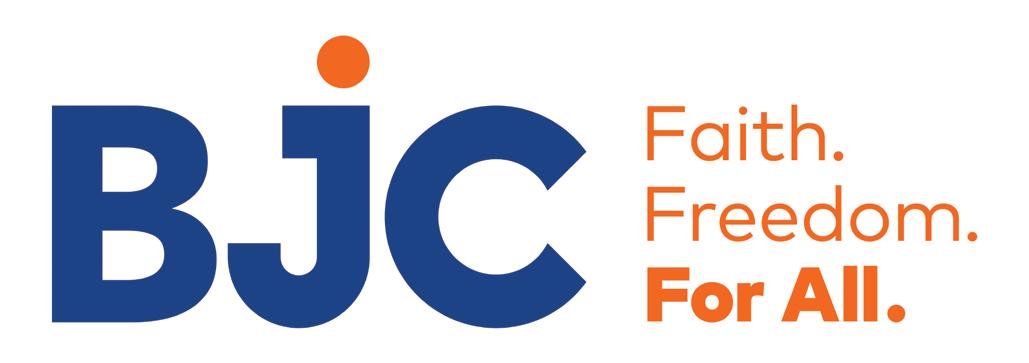
@BJContheHill
BJConline.org/blog Facebook.com/ReligiousLiberty
We are attorneys, Capitol Hill insiders, ministers, mobilizers and scholars. We file briefs in pivotal Supreme Court cases, advocate for and against legislation, testify in Congress and unite with others across faiths to ensure that all Americans have, and will always have, the right to follow their spiritual beliefs.
Alliance of Baptists
American Baptist Churches USA
Baptist General Association of Virginia Baptist General Convention of Texas
Convención Bautista Hispana de Texas (Hispanic Baptist Convention of Texas)
Converge
Cooperative Baptist Fellowship
Cooperative Baptist Fellowship of North Carolina
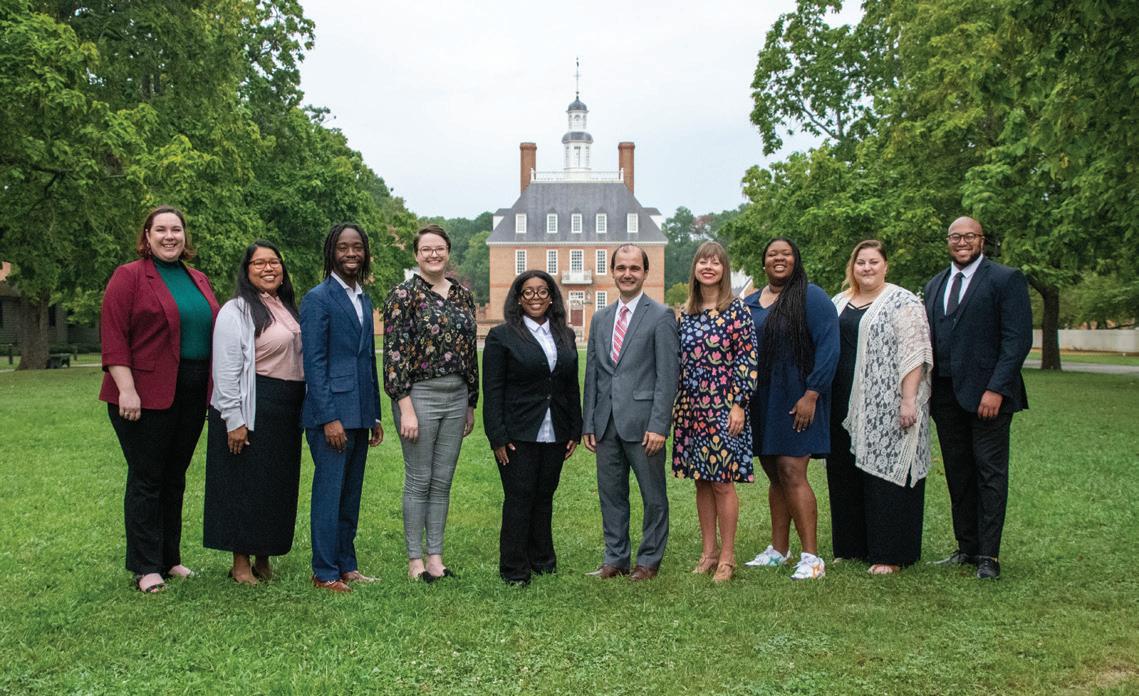
Fellowship Southwest
National Baptist Convention of America
National Baptist Convention USA Inc.
National Missionary Baptist Convention
North American Baptist Conference
Progressive National Baptist Convention Inc.
Religious Liberty Council
